|
Just outside of Charlottesville, Virginia sits Monticello, the stately home of one of the nation’s preeminent Founding Fathers: Thomas Jefferson. Amidst the unique architecture, mountain top views, and complex history, visitors will also find the final resting place of Jefferson. An obelisk marks the location and is inscribed with an epitaph written by Jefferson himself: “Here was buried Thomas Jefferson. Author of the Declaration of Independence of the Statute of Virginia for religious freedom & Father of the University of Virginia.” Jefferson believed these three achievements were the greatest accomplishments of his life and hoped that they would serve “as testimonials that I have lived, I wish most to be remembered.” Conspicuous by its absence is one of Jefferson’s most remarkable achievements. One that serves as the high water mark for the few that have obtained it. I’m referring of course to the fact that Thomas Jefferson served eight years as President of the United States. Jefferson thought so little of his time in the White House that he seemed not to care if others forgot all about it as well. The great irony in this of course is that Thomas Jefferson thought rather highly of his election in 1800, referring to it as the “Revolution of 1800.” After 12 years of Federalist control of the government by Washington and Adams, with the help of Alexander Hamilton, the new federal government, with its taxes, promotion of commerce, and harsh dealing with decent, had in Jefferson’s view, betrayed the spirit of 1776. His ascension to the nation’s highest office would be a continuation of the work begun at Lexington and Concord. And yet, in the end he didn’t think too highly of his time as Chief Executive. This inconsistency, while obvious, should come as no surprise to students of Jefferson. His entire life was a contradiction. He detests cities, yet he reveled in the salons of Paris. He attacks the expansion of government power, yet further expands it once in office. And most notable, he penned the immortal words that “all men are created equal” and lamented the evils of slavery, yet in his lifetime he owned over 600 human beings. Volumes have been written about Jefferson’s complex life. His incredible contribution to the founding of the world’s greatest democracy, juxtaposed against his own moral failings and hypocrisies. These are important legacies that warrant study, examination, and debate. However, for the purposes of this blog entry I will do my best to focus on Jefferson’s time in the White House, his Presidency. With that said, Thomas Jefferson’s ascendency to the Presidency began some ten earlier when he became America’s first Secretary of State. Having served as Minister to France during the years of the Confederation, Jefferson was more than qualified to be the nation’s top diplomat. Jefferson was a valued and trusted member of President Washington’s cabinet. However, early on Jefferson began to realize that his vision for America differed greatly from Washington and, more importantly, the President’s right hand man Secretary of State Alexander Hamilton. From their interpretation of the Constitution, to economic and monetary policy, to the use of federal power, and most importantly regarding foreign policy Jefferson and Hamilton stood at opposite ends of the political spectrum. The two men would become the de facto leaders of the nation’s first two political parties: the Federalists and the Democratic-Republicans. Washington, though he claimed no party, was clearly in the Hamilton camp. He was a Federalist. Jefferson thought it best to resign his post in the cabinet and begin laying the groundwork for a presidential run of his own in 1796. When Washington declined to run for reelection in 1796, the Federalists rallied behind Vice President John Adams, the Democratic-Republicans supported Jefferson. In the end, Adams carried the day. However, in accordance with the original wording of the Constitution, as runner-up Jefferson became Vice President. Over the course of the next four years, Jefferson used his largely ceremonial role to undermine everything the President, his former dear friend, John Adams did. While Adams was busy battling his own party to keep the nation from plunging headlong into a potentially disastrous war with France, Jefferson was busy unifying his new party. When Adams foolishly signed into law the authoritarian Alien and Sedition Acts that made it a crime to publicly criticize the President, Jefferson and his trusted lieutenant James Madison rallied the states to oppose the laws. When 1800 came, Jefferson and Adams would once again square off. This time, the beleaguered Adams had little chance of winning. However, this time there was also the problematic addition of a third candidate, another Democratic-Republican, Aaron Burr, complicating the race. In the end, Jefferson and Burr tied in the electoral vote. The nation had its first electoral crisis. With no presidential candidate receiving a majority of the electoral vote, it was up to the House of Representatives to choose the winner. It was at this time that Jefferson’s old nemesis, Alexander Hamilton, provided an unexpected assist. Hamilton wrote to members of the House urging them to support Jefferson. “Mr. Jefferson, though too revolutionary in his notions, is yet a lover of liberty and will be desirous of something like orderly Government – Mr. Burr loves nothing but himself – thinks of nothing but his own aggrandizement – and will be content with nothing short of permanent power.” Jefferson carried the day and was elected the third President of the United States. Burr, became Vice President. Within a few years, plans were set in motion to amend the Constitution and change the method of choosing a Vice President. On March 4, 1801 Thomas Jefferson walked to the unfinished Capitol for his inauguration. He attempted to strike a unifying cord in his address when he proudly proclaimed “We are all Republicans. We are all Federalists.” However, make no mistake about it. Jefferson saw his election as a Revolution and would have little use for Federalists in his administration. He immediately sat about enacting his Republican agenda for America. He pardoned the Democratic-Republican newspaper editors, “martyrs”, that had been prosecuted under the baneful Alien and Sedition Acts. He eliminated all internal taxes, shrank the size of the Navy, and began to pay down the national debt. In addition to these tangible changes, he also felt it important to make symbolic changes that reflected the Republican nature of the Presidency. After all, the President is not a king. He did away with nineteenth century formalities. Hosting casual dinner parties rather than formal banquets. He would often answer the White House door himself, occasionally in his casual evening attire. Jefferson was making his mark on the Presidency. Soon, as would be the case with every man to hold the office, the political goals of the campaign would come face to face with the realities of Presidential leadership. It was Thomas Jefferson, the man who wished to shrink the navy and had little use for an army, that would be the first American President to lead the nation through a successful overseas military conflict. The Barbary Wars were the result of North African pirates seizing American merchant ships and demanding bribes for the release of prisoners. President Jefferson ordered the Navy to the Mediterranean to confront the pirates and blockade Barbary ports. After several years of limited conflict, and an unlikely alliance with Sweden, the conflict was resolved and American sovereignty was respected. In 1803, Jefferson stumbled into the deal of the century. The port of New Orleans, though owned by France, was crucial to American economic interests west of the Appalachian Mountains. Farmers in rapidly growing areas along the Ohio and Mississippi Rivers would send their products down the river to New Orleans where it could be stored before being picked up by ocean faring ships that could take it to the ports of the eastern seaboard. Fearing the French, who had only recently acquired the territory from Spain, would shut off New Orleans to American merchants, President Jefferson sent James Monroe and Robert Livingston to Paris with an offer to buy New Orleans and the surrounding area from Napoleon. Much to the surprise of the American envoys, Napoleon made a counter offer. Strapped for cash and seeing little value in maintaining a costly presence in North America, Napoleon offered to sell the entire Louisiana Territory, more than 800,000 square miles, to the United States for the bargain price of $15 million. The Americans took the deal and returned home with news of their purchase. Jefferson, though enthusiastic at the prospects of adding so much territory to the United States, was conscious stricken with the purchase. He had long attacked previous Federalist administrations for overstepping constitutional bounds in their pursuit of their goals. Jefferson claimed to be a strict constructionist, meaning that the President and Congress could only exercise those powers specifically granted to them by the Constitution. There was no room for implied powers. Yet, nowhere in the Constitution is the President granted the authority to purchase territory. If Jefferson supported the Louisiana Purchase, he would be betraying his most fundamental of principles. But what a deal! Jefferson signed the treaty and Congress, filled with Democratic-Republicans accepted the deal. With the stroke of a pen and quick vote in Congress, Thomas Jefferson doubled the size of the United States. Shortly after the purchase was made, Jefferson commissioned Meriwether Lewis and William Clark to lead the Corps of Discovery for the purposes of mapping and exploring the new American territory. The Lewis and Clark Expedition would become a great American epic, but more importantly bring back a wealth of scientific and cultural knowledge regarding the people, plants, and animals for western North America. Jefferson’s willingness to betray his principles in making the Louisiana Purchase and eagerness to send the Corps of Discovery reflect his vision for America. Thomas Jefferson, like many of his Democratic-Republican followers, had a unique vision of American liberty. To Jefferson the quintessential American was the yeoman farmer. There was no better expression of American freedom than a small landowner who provided for his family through the fruits of his labor. Though educated and connected to the larger nation civically, he was largely free of what Jefferson viewed as the agents of oppression: a strong federal government, banks, the marketplace, and organized religion. These had been the oppressors during the Revolution and Jefferson had no taste for them in the American experiment. In order for American citizens to live out this view of liberty required, above all else, land to farm. The Louisiana Purchase provided the United States a seemingly endless tract of land to fill with virtuous, freedom-loving, republican farmers. In the pursuit of this noble goal, previous concerns about fidelity to the doctrine of strict constructionism would take a back seat. Of course, Jefferson’s dream for America did not come true. Though he wouldn’t live to see it, the men and women who eventually settled the land he purchased in 1803 would become serfs to banks, world markets, and corporate interests. It was not the agrarian republic he imagined. But in the final analysis, Mr. Jefferson’s purchase has been incredibly beneficial to the United States as a whole. As Jefferson’s first term was nearing an end, he faced a new problem, his Vice President. With the adoption of the Twelfth Amendment altering how Vice Presidents were chosen, Aaron Burr was dropped from the Democratic-Republican ticket. Ever the politician, Burr quickly set his sights on another, no doubt more prestigious office, in the upcoming election. Burr announced his candidacy for Governor of New York in 1804. Federalist leader Alexander Hamilton once again used the power of his pen to publicly denounce Burr as unfit for office. When Burr was defeated, he blamed Hamilton for yet another failed campaign. Burr challenged Hamilton to a duel, which the former Secretary of Treasury accepted. Burr shot and killed Hamilton on July 11, 1804. The Vice President was charged with murder, though the charges were later dropped. One would imagine that sitting Vice President being charged with murder would be the oddest part of the story, and yet the complications go further. After his term ended in early 1805, Burr ventured west into the Louisiana Territory with a small group of armed men. His plans appeared to have been to somehow provoke an armed conflict with Spain which he would then exploit to seize western land that would then break away from the United States. Several years later, when President Jefferson learned of his former Vice President’s odd conspiracy, a warrant was issued for his arrest. This time, the charge was treason. A charge for which he was acquitted due to lack of evidence. With a new running mate, George Clinton of New York, Jefferson was reelected in 1804 in a landslide. His first term had seen the doubling of the United States, a successful military conflict, the reduction of taxes and the national debt, and the addition of a new state, Ohio, to the Union. It was by any measure a successful four years. However, as would be the case with every other president in the years to come, his 2nd term would not go as smoothly as the first. Thomas Jefferson’s second term was consumed with foreign policy. Great Britain and France had been at war for some time and Jefferson had largely managed to keep the United States away from the conflict. Things changed in 1805. Though highly critical of Great Britain (see 1776), Jefferson was smart enough to know that positive economic relations with the British would prove invaluable to the economic prospects of the United States. At the same time, Jefferson loved France. While serving as ambassador to France in the 1780s, he had consulted with revolutionary leaders who were overthrowing the French monarchy. He would urge President Washington to support the French in their war against England in the 1790s. Now as President of a young and fragile country, he was caught between his head and his heart in terms of which nation to support in the war between the two European rivals. Jefferson hoped to remain neutral in the affair and continue trade with both belligerent nations. However, as the war intensified so did the tactics. Both the British and French navies began seizing American merchant vessels bound for their enemies' ports; a clear violation of American sovereignty and neutrality. The British were far more heavy-handed in their dealing with Americans. They seized far more ships and began forcing American sailors into service to the British navy; a practice known as impressment. After initially attempting to cool relations with the British, hostilities intensified as a result of the Chesapeake-Leopard Affair. A British naval vessel attempted to board an American ship. When the Americans refused the British opened fire killing several American sailors. Frustrated with the attack, but unwillingly to be drawn into a war, President Jefferson thought he could use American economic power to lure both France and Great Britain to the negotiating table in order to get them to respect American rights. He was wrong. With the President’s support, Congress passed the Embargo Act of 1807. Essentially, the Act cut off all trade with all foreign nations. In theory, the lack of American goods would prove disastrous for both sides and they’d be eager to reach a peaceful settlement. In reality, neither Britain or France paid much attention to their little brother across the Atlantic. They didn’t need American goods or raw materials. The Embargo did nothing to end the conflict, while at the same time wreaking havoc on the American economy. Trade was the backbone of the American economy, particularly in New York and New England. Rather than punishing London and Paris, Boston and Philadelphia suffered the consequences of Jefferson’s decision. It is rare that the origins of an economic recession can be so easily traced to a single event. However, the genesis of the 1808 recession can be found squarely on Jefferson’s desk. The economy was in shambles as was Jefferson’s second term. As 1808 approached, Jefferson honored the tradition set only 12 years early by George Washington and declined to seek a 3rd term. He was weary. Plagued by headaches and disillusioned with politics, Thomas Jefferson began to loath the presidency and wanted nothing more to do with it.
Jefferson remained active during his retirement. In addition to maintaining correspondence with old colleagues and current political leaders, Jefferson continued his pursuit of creating a virtuous, well-educated citizenry. It was during these years that he accomplished one of the landmark achievements of his life: the founding of the University of Virginia. The Jeffersonian vision for America had education at its core. In founding UVA, the former President ensured thousands of Americans would have a solid foundation in their “pursuit of happiness.” It was also during these final years that Jefferson rekindled a friendship with his former revolutionary brother turned political enemy, John Adams. The two elderly Founding Fathers, having not spoken in years in 12 years, gradually began sending letters to one another. Over the next 14 years, the two corresponded more than 150 times discussing everything from the news of the day to reflecting on their roles in the revolution. The letters serve as a treasure trove of insight into the two greatest minds of the American Revolution. Thomas Jefferson died on July 4, 1826, the 50th Anniversary of the signing of the Declaration of Independence. In a stroke of fate, John Adams passed away on the same day a few hours later. Following his passing, arrangements were made in line with Jefferson’s wishes. He was buried at Monticello, the obelisk he designed and the epitaph he penned were displayed at his resting place. Though Jefferson made no mention of his presidency, the nation was unquestionably shaped by it. He doubled the size of the nation. He brought republican principles to the office of the office of Chief Executive. He was a champion of limited government, but was willing to use the power of the government in pursuit of higher principles. He was flawed, a hypocrite, he made mistakes, but he believed in the American experiment. In short, he was an American.
0 Comments
I didn’t want to write this. Perhaps that’s why it has been more than a year since I last updated my presidential rankings blog. I apologize to my three avid readers. The reason is simple. As a history teacher, most folks (including students) respect your opinion when discussing American history even if they don’t agree with it. They assume, I suppose, that you’re well-versed in the subject, have studied it extensively, and have come to your conclusions in a logical and respectable manner. Yet, when you apply the same methods of analysis to modern politics that you used when studying the past, they automatically pass judgement. If they agree with you, you really know your stuff. If they disagree, you’re a political hack whose perspective shouldn’t be taken seriously. This is why I didn’t want to write this blog entry and why I don’t like teaching about 21st Century American political history. That being said, take everything I’ve written with a grain of salt. If you agree, great. If you don’t, it’s a free country and you’re entitled to your opinion. Here goes… 2004 was a big year for a political nerd like me. It was the first election in which I was legally old enough to vote and I was excited. I was turned off by the Bush Administration. The disastrous war in Iraq that started during my senior year of high school was the first event that really caused me to examine my own political beliefs. I had made the decision that I was going to vote for Senator John Kerry. However, as excited as I was to vote. As enthusiastic as I was with the prospect of making George W. Bush a one term president, I can’t say that I was overly enthusiastic to vote for John Kerry. The Massachusetts Senator was more than qualified. He had served our nation during Vietnam and I found that I agreed with him on many policies. But I didn’t feel any political excitement. Truth be told, I didn’t even support Kerry in the primary. I was hoping General Wesley Clark would win the nomination. Nevertheless, Kerry was the nominee and he had my vote. However, as I sat watching the 2004 Democratic National Convention I felt political excitement for the first time. A State Senator from Illinois came to the podium to deliver the keynote address. The speech he delivered that night would change his political life and set into motion a series of events that would forever change America. Like the vast majority of Americans, I had no idea who Barack Obama was in 2004. Within a few years, everyone in the country would know his name and, likely, have a strong opinion about him. “This guy should run for president.” I thought. As it turns out, millions of other Americans had the same idea.
Barack Hussein Obama was elected President of the United States in November 2008. His election was historic by any measure. The biracial son of a Kenyan father and a white mother from Kansas, Obama’s story is one that could seemingly only happen in America. He managed to defeat the Democratic frontrunner Hillary Clinton during the primary before challenging Senator John McCain in the General Election. It was during the fall campaign that the juggernaut that was the Obama Campaign gained traction. A multiracial coalition of young voters, midwestern moderates, and coastal liberals proved to be too much for the McCain campaign, and many down-ballot Republicans, to overcome. There was a very real sense when Americans went to the polling place in 2008 that they were participating in something historic. After all, Barack Obama is black. Had he been born a little more than 100 years earlier, he would have legally been considered ⅗ of a person and had no legal rights. Now, he was President of the United States. Historic is an understatement. Obama’s election represented a level of racial progress that previous generations could scarce have imagined. America had resoundingly chosen a black man to lead the nation. No one should diminish the significance of such an event. And yet, Obama’s ascent to the nation's highest office exposed the ugly truth that America had not achieved the post-racial society that so many pundits of the time predicted. Racism still exists and, as enterprising politicians soon learned, could be used to rally support for their cause. Obama and his family were attacked because of the church they attended. Ironically, at the same time, the President, a professing Christian, was labeled a secret Muslim hellbent on implementing Sharia law on an unsuspecting nation. He and his wife were depicted in political cartoons as terrorists, black nationalists, and various other hateful caricatures. Right wing media questioned why the Obama’s didn’t have any “white dogs” in the White House. All the while, mainstream conservative commentators proclaimed that the President had a “deep-seated hatred for white people” and played songs such as “Barack the Magic Negro.” This all culminated with the rise of the racist lie that Barack Obama was not born in the United States and therefore was an illegitimate president. This lie was perpetuated by "Celebrity Apprentice" host and one time steak pitchman Donald Trump who used it to launch his political career. Anything that could be used to otherize Barack Obama was used to undermine his presidency. These were not principled policy debates. This was fodder for a quickly shrinking segment of voters who felt threatened by an ever changing America. An America represented by Barack Obama. No other president in American history had to endure attacks of such a vitriolic nature. In spite of this, Obama left office after two convincing elections with an approval rating approaching 60%. No President since Roosevelt had entered the White House with such a challenging economic situation. From the final months of 2008 through the first 3 months of Obama’s presidency in 2009, the nation was averaging more than 700,000 job losses per month! The economy would continue to see negative job numbers until the earliest months of 2010. As it approached the end of his first year in office, the Obama Administration was staring at double digit unemployment and a rapidly contracting GDP. Such dire economic numbers are generally the opening line of political obituaries. Yet for Obama they were merely the first tremulous act in a successful two-term presidency. In the final days of the Bush Administration, during the earliest days of what would come to be known as the Great Recession, the financial sector was on the verge of collapse. The failure of Lehman Brothers, the stock market crash, and a hemorrhaging housing market had many economists worried that we were heading for a 1930s level economic catastrophe. President Bush proposed the hugely controversial Emergency Economic Stabilization Act of 2008 (aka The Bank Bailout) that begrudgingly received bipartisan support, including by then senators Obama and McCain, which may have prevented a second Great Depression, but did little to address the long term impact of the crisis. Those consequences would have to be addressed by the next administration. So how did President Obama try to fight the recession? In February 2009 Obama signed into law the American Recovery and Reinvestment Act. The price tag of $787 billion seems small in comparison to the spending spree we’ve seen in recent years, but at the time it was hugely controversial. Conservatives attacked it as government overreach and liberals attacked it as too limited. The law included government investment in healthcare and infrastructure but also included targeted tax cuts. The struggling automotive industry was assisted through loans and American consumers benefited from the “Cash for Clunkers” program which increased demand. Meanwhile, the Dodd-Frank Act reformed Wall Street regulations to try to prevent future financial crises and the Credit CARD Act sought to ease the debt burden faced by millions and outlaw predatory lending practices. By late 2009, the economy was showing steady signs of improvement. The job market however, was the last to recover. The Obama Administration was saddled with frustratingly high unemployment through much of its first two years in office. However, once the job market began to rebound near the end of 2010, it began a string of 75 straight months of job growth. By the time he left office in January 2017, unemployment was 4.7% below historic averages. In the post-WWII era, Obama trails only Clinton and Reagan in terms of net job creation with more than 11 million jobs added. On the world stage, Obama had mixed results. From the signing of the Paris Climate Accords to the seemingly intractable American involvement in Iraq and Afghanistan. Obama focused heavily on repairing relationships with NATO allies after years of disagreements between the US and Europe during the Bush years. While he no doubt made progress in the area of climate and counter terrorism, he was rightfully criticized for downplaying the threat posed by Russia; going so far as to mock Republican candidate Mitt Romney for voicing concern during a 2012 presidential debate. The Middle East was a focal point of foreign policy during the Bush years, and the Obama Administration would be no different. Early in his presidency, Obama fulfilled a campaign promise by delivering a speech in Cairo, Egypt aimed at addressing the increasingly strained relationship between the United States and the Arab world in the years following 9/11 and the War in Iraq. Middle East policy would be a challenge for Obama just as it had been for many of his predecessors. Obama pursued a policy of direct engagement, not only with our partners in the region, but also with our advisories. This can be seen with his multilateral negotiations with Iran that resulted in the much debated Iran Nuclear Deal. When the Arab Spring erupted resulting in mass protests against authoritarian regimes in the region Obama had to walk a tightrope between being supportive of the protests, while also acknowledging the instability that would inevitably come to the region. Instability that contributed to the disaster in Benghazi, Libya and the increase in violence in Egypt, Iraq, and Syria where ISIS soon began to take hold. Obama’s approach to ISIS was to rely upon international partners, including those in the region, in support of limited military engagement by US forces. A policy, that while slow and frustrating, seems to have been largely successful. However, whatever his failures or successes, Barack Obama’s foreign policy will always be remembered for a renewed focus on al-Qaeda and bringing to justice the mastermind of the September 11th attacks: Osama bin Laden. After an initial international manhunt following 9/11 the hunt of bin Laden had become an afterthought for the Bush administration by 2008. When asked about finding the al-Qaeda leader during the 2008 campaign, then candidate Obama promised to once again make it a priority and suggested that he would be willing to take unprecedented steps to locate bin Laden. Those steps were taken in the Spring of 2011, when the CIA reported that they believed they had located bin Laden in a compound in Pakistan, our ally in the War on Terror. Obama made the controversial decision to send a team of Navy SEALS to the compound to conduct a raid to kill bin Laden and recover his body. The raid was a success, al-Qaeda was weakened, and justice was done. Much like foreign policy in general, Obama’s handling of the so-called War on Terror was a mixed bag of successes, frustrations, and failures. The killing on bin Laden and the weakening of al-Qaeda was no doubt a success. However, the expanded use of drone strikes to target suspected terrorists, and his failure to close the prison camp at Guantanamo Bay, Cuba highlight the complicated nature of Obama’s efforts. However, in the years since leaving office it appears the Obama Administration, like the Bush Administration before it, maintained a vigilant and steady approach to addressing the national security of the United States no doubt making the US less vulnerable to foreign attack than two decades earlier. Barack Obama impacted the judiciary in a significant but limited way. During his first term, Obama appointed two new justices to the Supreme Court Sonia Sotomayer, the first Latina member of the court, and former solicitor general Elena Kagan. However, beyond these two appointments, Obama’s ability to appoint justices in accordance with his constitutional duties would be scuttled by the man who would prove to be his arch-nemesis: Senator Mitch McConnell of Kentucky. In 2010, McConnell stated that making Obama a one-term president was his most important goal. Of course, McConnell failed miserably in this pursuit as Obama was reelected by a strong margin in 2012, however in terms of hurting the Obama agenda, McConnell used every tool in the tool box. The filibuster is a senate rule adopted in the early 1800s, but rarely used until the latter half of the twentieth century, that requires a 60 vote margin in order to pass most legislation in the US Senate. You will not find this rule in the Constitution. For decades the Senate passed a tremendous amount of legislation passed without the threat of a filibuster, and when one was used it required that a senator (or group of senators) take the floor and refuse to yield. As time went on, the filibuster morphed into what it is today, a procedural vote that requires 60 senators to agree before any issue can advance. Mitch McConnell used this to his benefit, at times bringing the Senate to a halt. McConnell, the Senate minority leader, instructed his caucus to stop everything; most importantly judicial appointments. The GOP minority filibustered more judicial appointments in Obama’s first 5 years than the previous 40 years combined. Vacancies on district and appellate courts were left unfilled for months, sometimes years, at a time. It is for this reason that Senate Majority Leader Harry Reid invoked the hyperbolically named “nuclear option” and removed the filibuster for all presidential appointments except for Supreme Court nominees. When McConnell became the Majority Leader in 2015, he doubled down on his obstruction using his new power to prevent even more appointments going so far as to refusing to even hold a confirmation hearing for Obama Supreme Court Nominee Merrick Garland to fill the vacancy created by Justice Antonin Scalia’s death. In doing so, McConnell personally changed the size of the Supreme Court to 8 justices for an entire year. In two years under McConnell’s leadership, the Senate confirmed fewer justices (20) than any other Congress had in more than 50 years. By the time he left office, there were 105 vacancies on the federal bench. Obama nominated judges to fill many of these vacancies while Mitch McConnell refused to allow the Senate to vote on their confirmation. Congressional obstruction and gridlock came to define the Obama years. A new GOP emerged in the post-Bush years. No longer united by conservative values, they were now singularly defined by the opposition to Barack Obama. Not since the earliest days of the Whig Party in the 1830s had a political party been united by nothing more than opposition to a single president. Issues that used to be table stakes for Congress like raising the debt ceiling and confirming secondary level executive branch appointments, had now become political wars of attrition. For the GOP, opposition to Obama was the coin of the realm. Even when the bipartisan “Gang of Eight” put forward an Immigration Bill that easily passed the Senate, the Republican Speaker of the House John Boehnor (who supported the bill) refused to bring it to a vote. It would have passed with bipartisan support, but the extreme right of his party opposed it because it would be signed into law by President Obama. Many of the folks that were swept in office in 2010 and beyond came to Washington with little interest in governing. They came to disrupt, obstruct, and grandstand. A critique shared by their former leader, Speaker John Boehnor: "Most of these guys who poke their heads up and vote 'no' on every compromise claim they're doing it all for 'conservative principles' don't actually give a sh-- about fiscal responsibility. It's not really about the money. It's not about principle. It's about chaos." No doubt, many in the TEA Party movement were genuinely concerned about taxes and the growth of government, but many others had little interest in promoting a governing agenda for America. Their opposition was not based upon deeply held ideological convictions. Their opposition was to Barack Obama the man. A black man that many in their caucus falsely believed was born in Kenya. Fed a daily diet of misinformation from a growing right wing media apparatus that gave a platform to the most extreme views, GOP voters in 2010 and 2014 supported primary candidates that challenged traditional conservative members of Congress that were interested in governing. Over the course of several election cycles, fiscal and culturally conservative Republicans were weeded out in order to make room for performative propagators of outrage and conspiracy. A sad reality that has persisted in the years following Obama’s departure from Washington. The inability of Congress to govern through much of Obama's presidency will always be a dark spot on the history of House and Senate; making a mockery of the Founders' intentions for the First Branch. It was a result of this legislative dysfunction that Obama leaned into executive power. To his critics, Obama's use of executive orders was proof that he was a tyrant. Meanwhile, his liberal allies often lamented that he didn't exercise more executive authority. For the record, Obama issued fewer executive orders than either of his previous two predecessors and in eight years in office issued only 56 more than his successor did in four years. Such executive action can only be properly understood when presented within the context of legislative inaction. After the horrific mass shooting at Sandy Hook Elementary in 2012, President Obama issued 23 wide-ranging, but limited, executive orders aimed at reducing gun violence and enhancing school safety while calling on Congress to do more. In typical Senate fashion, a minority of Senators used the procedure 60 vote threshold to block passage of two bipartisan bills designed to keep deadly weapons out of the hands of individuals determined to hurt other people. Obama's executive orders would be the only federal response to the tragedy. However, some orders were more impactful. When Congress failed to pass the aforementioned bipartisan immigration reform bill. Obama issued a number of executive orders to address the broken immigration system. None more meaningful or beneficial than the Deferred Action on Childhood Arrivals, better known as DACA. The action protected undocumented immigrants who were brought. to the United States as children, from deportation. While it did not provide a pathway for citizenship, it created more opportunities for the Dreamers to work, get an education, and continue to build a life in the only country most had ever known. For all the discussion of executive orders, no president can be considered successful unless they have at least one significant legislative achievement during their time in office. For Barack Obama, that achievement was the Patient Protection and Affordable Care Act, better known as the ACA or “Obamacare.” Since the days of Theodore Roosevelt, Presidents and Congress have debated the best way to provide healthcare to the American people. Some have argued for a single-payer system with government control like those in much of Europe. While others have argued for free market solutions without the needless bureaucracy of government. In the end, the healthcare system created by the United States was one largely run by the private sector. Following WWII, health insurance became a staple of benefit packages offered by employers. The concept of tying one's healthcare to one's employer is as American as apple pie. As the decades passed the healthcare system was gradually regulated and the government began to play a greater but still limited role. Most of this change occurred during President’s Johnson’s “Great Society” reforms. And yet, despite the popularity of programs like Medicare and Medicaid, Americans have always been leery of government regulation of healthcare. Decades of insurance company lobbying and Cold War era fears of socialism made tackling America’s healthcare crisis a political third rail. See early 90’s Hillary Clinton. However, by the turn of the century American were more unhappy with their healthcare coverage than ever before. On average American’s paid more for healthcare than comparable nations and received far worse outcomes. The United States had the best doctors and hospitals in the world and yet they were financially off limits to the majority of Americans. Americans could be denied healthcare due to a preexisting condition, meet lifetime maximums in terms of coverage, and young adults could be kicked off their parents' coverage. The Great Recession exasperated the problem. With healthcare coverage tied to employment, millions of Americans lost their healthcare coverage when they were laid off through no fault of their own. The challenge of reforming healthcare had crippled the most talented of politicians in the decades leading up to Barack Obama’s election. And yet, where others had failed, Obama succeeded.
The legislative healthcare battle that occurred during Obama’s first term demonstrated the President’s pragmatic progressivism. He wanted broad support for the bill not only from progressive Democrats, but from moderates, and willing Republicans as well. In order to achieve this, some ideas were off the table. Far left ideas such as a single-payer system and eventually even the more moderate public option were not included in the final bill. Instead, Obama opted for a free market approach that would keep insurance companies in place and allow them to remain profitable, meanwhile the government would set new standards while also supporting families (and states) for whom healthcare coverage was too burdensome. “Obamacare” was modeled after a plan put in place by the Republican Governor of Massachusetts and 2012 presidential rival Mitt Romney. Obama went so far as to conduct negotiations with congressional GOP leadership on live television. However, in the end not one Republican member of Congress would vote for the final bill. Despite huge majorities in both the House and the Senate, Democratic leadership was forced to use a budget reconciliation strategy to pass the bill, which was signed into law by President Obama on March 23, 2010. Pundits predicted that the controversial new law would spell the end of Obama’s presidency and those of his Congressional allies. No doubt, for many Democratic members of Congress from moderate and conservative leaning districts, it did mean the end of their time in office in November of 2010. But for Obama, it meant a convincing reelection. Despite the disastrous rollout of healthcare.gov, the ACA has endured and has gained in popularity with each passing year. Lifetime maximums and denial due to preexisting conditions are things of the past. Three times the law has been challenged before the Supreme Court and three times it has been upheld. When the Trump administration made repealing Obamacare a signature part of their agenda in 2017, many assumed the law would be destroyed because of the Republican majority in the House and Senate. And yet, in a twist of fate, it was Republican Senator John McCain, Obama’s 2008 opponent, together with Republican Senators Collins and Murkouski that ensured that the law would survive. Before passage of the Affordable Care Act, more than 60 million Americans lack health insurance. In 2021, more than 90% of Americans have healthcare coverage in some form and premiums rose at a slower rate than before passage of the ACA. Barack Obama, knowing the political minefield he was walking into, famously claimed that he was willing to risk his presidency to achieve healthcare reform. Now, 11 years later it is arguably the most lasting part of his legacy. After 8 years of a politically fraught presidency, Barack Obama left the White House. He had presided over nearly 6 straight years of economic growth, a sizable reduction in the number of Americans lacking health insurance, a restoration of American leadership in the world, and a rapidly changing society continuing to grapple with what it means to be an American. In the final analysis, history will remember Barack Obama was a groundbreaking, consequential, effective and successful leader. Ranking presidents is a difficult task. Our country venerates some and demonizes others. With the passing of time, the legacies of some improve as they are reexamined through modern eyes. Conversely, the reputations of others are tarnished as we take a closer look at the opinions they held and policies they pursued which are not in line with modern values. Ranking presidents is hard because they are human beings. Capable of doing good in the world, but also filled with hypocrisies, inconsistencies, and shortcomings all shaped by the time in which they lived. And yet, the student of history must look at the totality of a president's time in office. They must take a full measure of the good and the bad, in order to fairly assess their leadership. Woodrow Wilson presents an interesting challenge. A man whose accomplishments rank among the most noteworthy in American history, but whose personal prejudices will forever mar his presidency. I hope this will be a fair and honest assessment. Woodrow Wilson was an academic. He was born in Virginia in 1856, the son of Joseph Ruggles Wilson, a Presbyterian pastor and professor of theology. Wilson’s family were slaveholders and strong supporters of the Confederacy. As a young boy, he briefly encountered General Robert E. Lee. His southern upbringing would make a lasting impact on him. Not only did it help develop his admiration for the Confederate General, but it also shaped his problematic views regarding race. However, when given the chance, Wilson got out of the South. In 1874, he enrolled at Princeton University to study political science. After graduating he briefly practiced law before enrolling at John Hopkins University to pursue a doctorate, which he earned in 1886. To date, he is the only American President to have a PhD. He began a career as a professor because he enjoyed the prospect of a quiet life of writing and study with the promise of a steady paycheck. And write he did. Throughout his career, Dr. Wilson authored numerous papers critiquing various forms of western democracies, contributed regularly to some of the most respected political science journals of the day, wrote a biography of George Washington, and authored a prominent American history textbook. More about that later. In 1902, Wilson was appointed President of Princeton University. In this role, Wilson was given the opportunity to allow his untapped leadership skills flourish. He gained a reputation as not only an effective and capable administrator, but also a reformer who challenged the status quo. He was an out-of-the-box thinker who had no trouble fundraising for the university. This caught the eye of the New Jersey Democratic Party. Republicans dominated New Jersey politics and the Democrats were willing to take a gamble on an unconventional candidate that offered voters something new. Wilson proved to be the man for the job. Throughout the 1910 campaign, Dr. Wilson proved that his years of studying politics had paid dividends. He burst on the scene as a skilled orator, an independent voice, and a full throated progressive. He railed against the corporate trusts that, for far too long, had maintained a stranglehold on both political parties. He relied upon the support of the powerful Democratic Party bosses, but promised the voters that he would be his own man; independent of the establishment. During a time of progressive change throughout the United States, when prominent leaders of both parties were speaking out on behalf of workers, conservation, and consumer protection, Woodrow Wilson quickly became a leading voice within the movement. Wilson was elected by a sizable margin, bringing an end to an era of Republican dominance in the Garden State. Once in office, he worked with the state legislature to win passage of bills that broke up monopolies, curbed corporate power, and improved working conditions. His success at the state level gained him national notoriety catching the eye of the National Democratic Party. By 1912, Democrats were desperate for a victory. It had been 20 years since a Democrat had been elected President. That man, Grover Cleveland, was the only Democrat that had been elected President in the 47 years since the end of the Civil War. The electoral map simply did not work in favor of the Democrats. If the Democrats hoped to win in 1912, they would need to rally behind a candidate that could energize their traditional base, win over progressive Republicans that were disappointed by President WIlliam Howard Taft, and hope for a miracle. The Democrats found their fresh candidate in Woodrow Wilson. They found their miracle in former Republican President Theodore Roosevelt. Theodore Roosevelt, who left the presidency in 1909, had become frustrated in retirement. He was frustrated with the lack of excitement in his life. He was frustrated with the direction of the country. Most of all, he was frustrated with his former best friend, President WIlliam Howard Taft who he had hand picked as his successor. Many of the progressive policies that Roosevelt had instituted while president were being rolled back under Taft. President Taft had removed several Roosevelt appointees from prominent positions within the administration. Taft, who had a strict legal mind, also broke up numerous monopolies that were in violation of the Sherman Antitrust Act. Many of these monopolies had been deemed “good trusts” by Roosevelt and he had allowed them to remain in operation during his administration. Teddy took this as a personal offense and vowed to replace Taft as the Republican nominee in 1912. In doing so, he hoped to reignite the progressive wing of the Republican Party. A party that was slowly drifting toward more conservative positions. Twelve states held Republican primaries for the first time in history. Roosevelt won 9 of the 12 contests. However, the vast majority of states held no such primary to send delegates to the convention, opting instead to allow the state party to choose delegates without the input of voters. At the 1912 Republican National Convention, which was dominated by establishment Republican delegates, the conservatives won. Taft was renominated. Roosevelt’s loyalists were livid. They left the convention and established a new political party which they named the Progressive Party and quickly nominated Theodore Roosevelt as their standard bearer. The Republican Party was hopelessly divided. Half stood with the conservative leaning incumbent, President William Howard Taft. The other half rallied around former President Theodore Roosevelt and his far-reaching progressive agenda known as the “New Nationalism”. The divide in the GOP, opened the door for WIlson. In November 1912, despite winning less than 42% of the popular vote, Governor Wilson won a plurality in enough states to win the Electoral College decisively, thus becoming the first Democrat in two decades to reach the nation’s highest office. Not only did Roosevelt’s actions allow for the Democrat Wilson to win election, the progressive voices he took with him from the Republican party would never return to the GOP. Upon entering office in the Spring of 1913, President Wilson set to work winning passage of a number of bills that would make up his “New Freedom” agenda. In order to do this, Wilson believed that the government must act to tear down the “triple wall of privilege” - the tariff, the banks, and the trusts. Wilson believed that these three obstacles were used by the wealthy industrialists to cripple competition, oppress small farmers, weaken small business and labor, all while consolidating their economic and political dominance over America. Within months, Wilson won passage of the Underwood-Simmons Act which reduced the federal tariff that was hurting small farmers at the expense of powerful industrialists. Tariffs provided a large portion of revenue that funded the federal government. Reducing the tariff was sure to cause a hole in the federal budget. Fortunately for Wilson, weeks before taking office the Sixteenth Amendment to the U.S. Constitution, which allowed Congress to institute an income tax. As a result, Wilson was able to work with Congress to shift the tax burden off of the working class (the tariff) and toward the wealthy captains of industry via the income tax. Next, Wilson set out to reform the banking system. The American monetary and banking system had been a mess since Andrew Jackson killed the Bank of the United States in the 1830s. Credit was inaccessible to many small farmers and businesses. This coupled with the instability of the American dollar led to numerous economic panics over the past 70 years. Unlike many Western nations at the time, America lacked a national bank. It lacked a single entity to issue currency, safeguard government deposits, set interest rates, and otherwise bring stability to the financial markets. Seeking the middle ground between public and private control of the nation’s financial system, Wilson oversaw the creation of the Federal Reserve System. The new national banking system was largely independent of the federal government. Although the board of governors are appointed by the President of the United States, they serve 14 year terms guaranteeing that no individual administration or congressional majority can exert undue pressure over their decision making. The twelve regional banks oversee the creation of privately owned banks, which in turn hold stock in the federal reserve banks and help to elect the board of directors for those regional banks. Although the nation has still experienced recessions and depressions in the years since it’s creation, the Federal Reserve has done a good job of maintaining the stability of the American dollar and helping to alleviate the worst effects of any economic downturn.
By 1914, President Wilson had proven himself to be one of the most effective administrators in American history. His record of legislative achievement rivals any president before or since his time in office. In one term, he had firmly cemented himself as one of the true champions of the Progressive Era. However, every person has their flaws, inconsistencies, and hypocrites. Woodrow Wilson is no different. While he may very well have been a progressive president, there was one area in which Wilson was not only not progressive, he was in fact rolling back the clock on progress. That area was race. Woodrow Wilson, was a racist. The federal government, having been led by Northern Republican presidents since the days of Reconstruction, was one of the more integrated parts of American society in the early 1900s. Woodrow Wilson, however, believed in segregation and his administration oversaw the implementation of a plan to expand segregation within the civil service. The President’s feeling was that separate work facilities would prevent “friction” between the races. Furthermore, black civil servants were routinely fired and replaced with whites. Such racism shouldn’t be surprising upon further examination. Wilson was a southerner by birth. He admired the South and identified closely with the “Lost Cause” mythology that attempted to rewrite history and portray the Confederates, not as treasonist defenders of slavery, but rather as defenders of states’ rights and their native soil. This was the late-nineteenth, early-twentieth century movement that led to hundreds of confederate statues and monuments being erected throughout the country. As for rewriting history, Wilson, himself the author of an American history textbook, painted a flattering picture of Confederacy, downplayed the horrific actions of the KKK, and portrayed black Americans as an inferior race. Some of his quotes were even used in the infamous film “Birth of Nation” which glorified the KKK as defenders of the South. A film that was screened at the White House. For all Wilson did to create a more fair and equitable society for white Americans, he did the opposite for black Americans. While his views certainly were backward compared to previous progressive presidents such as Taft and Roosevelt, the sad truth is that (according to Wilson biographer John Milton Cooper) Wilson’s views on race probably were far more in line with the average northern white American than we like to admit. In the summer of 1914, the guns of war rang out across Europe. The Great War, as it was known at the time, consumed the western world. American newspapers reported on the carnage daily and American readers were horrified by the reports of trench warfare, deadly new weapons like machine guns and poison gas, and the suffering of millions. While many Americans, a great many of whom were recent immigrants from Europe, sympathized with those suffering across the Atlantic, one thing was abundantly clear: Americans wanted nothing to do with Europe’s war. Wilson was dedicated to neutrality. He had no desire to be drawn into the conflict and would spend the better part of three years taking steps to ensure that American boys were not sent to die on European battlefields. It was this sentiment that propelled Wilson to reelection in 1916 running on the slogan “He Kept Us Out of War”. Spoiler Alert: Less than one month after his second inauguration, he asked Congress for a declaration of war. So why did America go to war against the Central Powers in 1917. The answer is a complicated one. From the beginning of the war a American public opinion sympathized with the British and to a lesser extent their allies France and Russia. Americans shared a common form of government, language, culture, religion, and history with Great Britain. It also is worth noting that the United States had far closer economic ties to Britain and France than it did Germany and American banks had made large loans to the British. This is not to say that there weren’t strong feelings on the other side as well. Millions of Americans were of German descent and still had family living in the country at the time of the war. Many German Americans urged caution and neutrality. Meanwhile, Irish Americans were dismayed at the idea that America might in any way lend a hand to Great Britain. However, British propaganda was an effective tool in the United States, often portraying the Germans as butchers. Real world events seemed to support this narrative as well. In 1915, a German U-boat sank the British passenger ship RMS Lusitania killing more than 1,000 passengers including more than 100 Americans. Anti-German sentiment began to rise. In 1917 as the situation in Europe deteriorated, Germany began a campaign of unrestricted submarine warfare, sinking any and all vessels headed for Britain, passenger and military ships alike. Soon thereafter, the discovery of the Zimmerman telegram further changed public opinion. A coded message from German foreign minister Arthur Zimmerman to the German ambassador in Mexico was intercepted by the British. The Germans, worried that unrestricted submarine warfare might bring America into the war, planned to encourage Mexico to attack the United States in order to prevent the Americans from joining the side of the Allies. In exchange the Germans promised to help the Mexicans recover the territory they had lost to the United States following the Mexican American War in 1848. Americans were angered by the communica and were even more outraged when German U-boats sunk several American merchant ships. Meanwhile, Britain and France braced for a more concentrated attack from the Central Powers. Their unlikely ally Russia was on the verge of defeat and soon would be out of the war. Germany could then focus all of its attention on the western front. On April 2, 1917, Wilson went to Congress and asked for a declaration of war against Germany. In his most famous speech, the idealistic Wilson presented the United States as a peace loving nation that had no choice but to become the defender of democracy throughout the world. “The world must be made safe for democracy. Its peace must be planted upon the tested foundations of political liberty. We have no selfish ends to serve. We desire no conquest, no dominion. We seek no indemnities for ourselves, no material compensation for the sacrifices we shall freely make.” Congress obliged and declared war on the German Empire four days later. Despite the soaring rhetoric, support for the war was far from universal. Six Senators and 50 members of the House of Representatives voted against the declaration including Congresswoman Janette Rankin of Montana. Among other reasons, Rankin saw the hypocrisy in supporting a war to defend democracy when millions of women throughout America were still denied the right to vote. Rankin was fortunate enough to live in Montana, a state that did extend the franchise. But most women did not enjoy the same freedom. A few years later, spurred on by protests during the war, President Wilson would slowly lend his support for universal suffrage for women. In 1920, the dreams of generations of suffragettes came true when the Nineteenth Amendment to the United States Constitution was ratified. As for the war, Wilson now had to sell it to a leery American public. The War Industries Board was created to oversee the creation of a wartime economy. Future president Herbert Hoover was selected to run The Food Administration. American output increased and America was able to feed itself, its soldiers, and its allies during the war. Hoover’s work proved invaluable. As Napoleon once claimed “an army marches on its stomach.” The Allies stomachs were full, while the enemy starved.
Despite the patriotic fervor and growing public support for the war, the Wilson administration turned a blind eye to the injustices happening within the country during the First World War. German Americans were the target of discrimination and harassment. Some German immigrants were tarred and feathered, others beaten, some lost their jobs. Orchestras stopped playing German composers and sauerkraut was dubbed “liberty cabbage.” As black Americans left the Jim Crow south in search of better jobs in the booming industrial north, beginning the so-called “Great Migration”, the northern cities were far from the land of milk and honey many imagined. While there was no Jim Crow in the north, racism and resentment persisted. Violent race riots broke out in the cities of St. Louis, Detroit, and most notably Chicago. The Wilson Administration did little to quell the unrest. While little may have been done to stop the civil unrest, the Wilson Administration had no qualms about stiefly civil liberties. The Espionage Act of 1917 and Sedition Act of 1918 gave the federal government the authority to prosecute those who spoke out against the war. Socialists, anti-war “radicals”, and others were arrested and imprisoned. The Supreme Court even upheld the laws as constitutional in the case Schenck v. United States when it claimed that some limitations of first amendment freedoms were permissible. As for the war, America needed an army. It is important for students of history to understand that the United States has not alway been a world superpower with a large powerful standing army. Those are products of World War II and the Cold War. In 1917, the army and navy were small and inexperienced. Congress institution a draft and within months four million men had enlisted. Additionally, women were allowed to join the navy and marines in non combat roles for the first time in American history. African Americans served in large numbers in the army, but did so in segregated units. The new recruits were given a few months of training and shipped “Over There” to join the fight. The American Expeditionary Force under the leadership of General John J. Pershing arrived in Europe without a moment to spare. While inexperienced, the American army offered something that gave the Allies the upperhand: an endless supply of new troops. After years of war, Germany could not continue against the British, French, and their new unscathed ally from across the Atlantic. On the eleventh hour, of the eleventh day, of the eleventh month of 1918, the Germans laid down the arms. An armistice was signed and World War I came to an end. It was now time for peace. And from the perspective of the victorious British and French, vengeance.
The imperialist Britain and France wasted little time divvying up the territorial spoils of war, taking colonies for themselves from the defeated German, Austrian, and Ottoman Empires. At every turn Wilson butted heads with the allied leaders over their desire for more territory. At the end of the conference Wilson was able to wrangle few concessions from the victors. Most of his Fourteen Points were ignored. However, the League of Nations, Wilson’s brainchild, was included in the treaty. In spite of all of the other shortcomings of the ill-fated Treaty of Versailles, the creation of the League of Nations would be enough to justify the American President’s support. As for the conquered Germans, they were forced to accept the treaty with no input. The Germans had to accept full responsibility for the war and pay reparations. The treaty destroyed the German economy, humiliated it’s people, and would serve as fuel for the rise of Adolt Hilter little more than a decade later. Wilson however, came home with his head held high. The treaty had been signed and the League of Nations was going to be created. A new world order would be established based upon international law and cooperation. Or so he thought. In order for the treaty to be recognized by the United States, it required ratification by the Senate. A Senate that was controlled by the Republicans. The Republican leaders, who were already no fans of the Democratic President, were particularly offended that Wilson had not taken a single Republican member of Congress with him on his trip to Europe. They had been shut out of the negotiations. Now that the treaty was in their chamber, they were going to have their say. The powerful Republican leader Henry Cabot Lodge led the opposition. He made sure that the “world’s most deliberative body” would be deliberative indeed. He held hearings, offered amendments, insisted on more and more debate. The goal was to waterdown the treaty so it would be more favorable to the GOP who were growing more and more isolationist. The President was in no mood for negotiation. Wilson’s hard won prize, the League of Nations, was the greatest point of contention. Many Americans, and certainly the Republican Party, did not want to commit the United States to an organization that might once again draw the country into another European war. Unwilling to compromise with the Senate opposition, the President embarked on a whistlestop tour throughout the country in hopes of winning public support for the treaty. In September of 1919, after giving an impassioned speech in Pueblo, CO Wilson collapsed. After more than a year of leading a war effort, months of negotiations in Europe, and a bitter political fight in Washington, the President’s body could take no more. Days later he suffered a debilitating stroke. With half of his body paralyzed and partially blind, Woodrow Wilson’s presidency was effectively over. For months Wilson was hidden away in the White House. His health was failing him, he saw no one, and he did little to lead the country. The debate over the treaty went on in the Senate. Various versions of the treaty with amendments were offered but no version satisfied enough Senators or the President. The treaty failed. When Wilson learned of the treaty's defeat he remarked “They have shamed us in the eyes of the world.” Having not ratified the treaty, the United States did not join the League of Nations. Without the presence of the United States, whose economy, infrastructure, and population had not been devastated by the war, the League of Nations lacked leadership. It would go on to be impotent organization wholly unable to deal with the gathering storms of the 1920s and 30s. Woodrow Wilson left office in March 1921. For the last year of his presidency, Wilson, having never fully recovered from his stroke, was physically unable to lead. With no constitutional provision to remove him, the country operated with little more than a figurehead throughout 1920. However, within the White House there was, in a way, a new person in charge. Wilson’s wife Edith, whom he had married during his first term, became a kind of presidential gatekeeper. She decided who got to see the president, she reported his wishes to members of the administration, and she determined what information the president would receive on a daily basis. She was, for lack of a better term, a sort of acting president. It was an extraordinary moment at the end of an extraordinary presidential term.
In 1920, America was in a conservative mood. Tired of international involvement, tired of progressive change, Americans voted for Republican Warren G. Harding who pledged a “return to normalcy.” The Wilsonian vision of an activist government and international cooperation was over. Wilson and Edith remained in Washington for the remainder of his life. He marked the 5 year anniversary of the end of World War I by delivering a radio address still holding out hope that one day the United States would once again engage with the world and join the League of Nations. It was not to be. Two months later, Wilson was dead. His body was laid to rest in the Washington National Cathedral. Woodrow Wilson’s legacy is a complicated one. His record of legislative achievement is impressive by any president’s standards. His administration expanded protections for workers, leveled the economic playing field, and stabilized the nations currency. He, however reluctantly, lent his voice to the cause of women’s suffrage and so the ratification of the Nineteenth Amendment. He successfully led the United States through the First World War. In doing so, he not only helped bring an end to the greatest crisis the western world had ever known, but he also elevated the United States to a position of international leadership. Though the Treaty of Versailles proved to be a disaster for Europe, had the United States ratified it and joined the League of Nations, perhaps the history of the twentieth century would have looked far different. And yet, in sprite of these many domestic and international achievements, Wilson’s shameful record on race will forever cloud his legacy.
On Wednesday February 5, 2020, Senator Mitt Romney of Utah etched his name into future history books. By voting to convict President Donald Trump of the “high crime” of Abuse of Power, Romney became the only United States Senator in the history of the republic to vote to remove a president of his own party from office. As a result, he will endure the full wrath of Trump, his propaganda apparatus at Fox News, and millions of Trump’s followers. Some have said that Romney’s political career is over. Perhaps, it is. But if it is coming to an end, it would be a shame to allow this moment in history to pass without doing the most possible good for the country while he is still in a position to have an impact . By casting a vote of “guilty”, Mitt Romney demonstrated a quality seemingly absent from Washington: leadership. In 2012, Mitt Romney sought to lead the country and came up a bit short. Much has changed in eight years and in 2020, it is time once again for Mitt Romney to answer the call to lead the country. It’s time for Mitt Romney to run for President of the United States.
First, we must state the obvious, Mitt Romney can not run as a Republican. Donald Trump is the leader of the Republican Party and he will be the nominee in 2020. For Romney to challenge Trump in the primary would be a fool's errand and a waste of resources. For Romney to seek the Libertarian nomination would be disingenuous; he’s not a Libertarian. No, Mitt Romney must run as an Independent conservative candidate. Romney believes in low taxes, deregulation, free trade, and small government. In regards to social issues, he is pro-life and pro-gun, with a sincere religious faith. In short, he is what the Republican Party used to be and many conservatives still are. If a non-MAGA version of conservatism still exists in this country, as I believe it does, Romney’s best bet is to run as an Independent conservative alternative to Trump.
Secondly, there is the issue of viability. No Third Party or Independent candidate has ever won the presidency. However, that is not the point. When Romney cast his vote with the Democrats on Wednesday, he was voting to remove President Trump from office. He clearly believes that the President is unfit for office and must be removed. Following Trump’s acquittal in the Senate, the only method left for removal is the ballot box. Romney’s name on a ballot would no doubt siphon off several million would-be Trump voters across the country. This would increase the likelihood that Trump is removed from office by the voters. Trump no longer occupying the White House would be the result Romney pushed for when he cast his vote on February 5th. Can a minor party candidate have such an impact on a Republican running for re-election? You needn’t look any further than one-term Republican Presidents William Howard Taft and George Bush.
Finally, we must face facts. If Senator Mitt Romney runs for President of the United States as an Independent conservative candidate he...CAN WIN! Yes, he can! There are two reasons for this: math and the Constitution. President Trump doesn’t care much for math (see six bankrupt Trump properties) and he has never had any respect for the Constitution. However, there is one part of the Constitution that Trump loves and the Republican Party will defend until the end: the Electoral College. Mitt Romney can use the Electoral College to deny Trump a second term and potentially win the White House despite coming in a likely third in the popular vote. By winning as little as one traditionally red state, Romney could conceivably prevent either party from winning a majority of the electoral vote (270) thereby sending the election to the House of Representatives as outlined in the Constitution. The House may choose whichever of the top three candidates they wish. This has happened before during the Election of 1824. Could Romney win a single state’s electoral votes? Yes, definitely. His name ID alone would garner him enough media attention to make him be taken seriously and all but guarantee him a spot in the presidential debates. Furthermore, Mitt Romney is uniquely suited to defeat Trump in one state: Utah. Not only is Romney the Senator from Utah, he is a beloved figure in the state. When he ran for president in 2012 he won the state with more than 72% of the vote. By contrast, Trump won deep red Utah by receiving less than 46% of the vote. There is no reason to believe that Mitt Romney could not win Utah. The Electoral Map could look much like the one below with no candidate winning a majority and Romney emerging as the compromise candidate in the House.
If Mitt Romney were to run for President, it would only make sense that he would appear on the ballot in a handful of traditionally red states where he could conceivably win electoral votes and where a successful campaign could be run with limited resources. States like Utah, Idaho, Montana, and Oklahoma would make sense. If resources allow, he could expand his campaign to larger states. If he ran in states such as these there are only 3 outcomes:
I realize the improbability of such an endeavor. However, Senator Romney took a stand that he can not possibly step away from now. In the eyes of Trump loyalist and the Right Wing media he has committed the cardinal sin: he showed character. He took an oath before God and showed fidelity to our Constitution. This excludes him from ever again being welcome in Donald Trump’s Republican Party. This does not exclude him from standing up for the millions of conservative and moderate voters across the country without a political home. If he chose a running mate such as Rep. Justin Amash, who was kicked out of the GOP for defending the Constitution, Romney would make himself an even more attractive conservative alternative to Trump. With the backing of organizations like The Lincoln Project and the potential endorsements of former Republican leaders like John Kasich, Jeb Bush, and Jeff Flake, Mitt Romney would have a shot. As a Democrat living in a red state where no Democratic presidential candidate stands a realistic chance of winning, I stand ready to support Mitt Romney. I don’t think I'm alone. I did not vote for Mitt Romney in 2012. I have significant disagreements with many of the policies he supports. However, 2020 isn’t about the traditional conservative progressive divide. It is about removing from office a man that poses an existential threat to our Constitution and republic. With his vote on Wednesday, Mitt Romney cast his lot with history and history will be kind. Now it's time for Mitt Romney to lead. “Romney For America” Scott Harris, Executive Director of the James Monroe Museum, likes to compare former president James Monroe to the fictional character Forrest Gump. Much like the titular character portrayed by Tom Hanks in the 1994 film, James Monroe seemed to have a knack for being, almost serendipitously around significant historical events throughout his life. As a young soldier in the American Revolution, Monroe was with Washington as he famously crossed the Delaware River. He is portrayed, inaccurately, as holding the American flag in Washington's boat in the famous painting by Emanuel Leutez, Washington Crossing the Delaware. He later can be seen with a bandaged arm in John Trumbull's iconic The Capture of the Hessians at Trenton, After the war, he joined the Continental Congress. During the debate over ratification of the Constitution, Monroe stood with anti-federalists, but was willing to support the Constitution if it was amended to include a Bill of Rights. In the end, his argument carried the day. Early in the new republic, Monroe served as a Senator from Virginia. It was during this time that he, a staunch Democratic-Republican clashed with the leader of the Federalists, Alexander Hamilton. Fans of the Broadway hit Hamilton will be interested to know that, although he isn't a character in the musical, it was Monroe that was tasked with investigating accusations of corruption that would lead to the discovery of the Hamilton-Reynolds Affair immortalized in the songs "We Know" and "The Reynolds Pamphlet". After a few years in the Senate, he was appointed by President Washington to be his ambassador to France. It was at this time that he witnessed the dysfunction and chaos of the French Revolution. His time in France would be the first step in a long and distinguished career as a diplomat. After briefly serving as the Governor of Virginia, Monroe once again went on to serve his nation abroad. President Thomas Jefferson dispatched Monroe to France to settle a growing dispute between France and the United States over access to the Mississippi River. It was at this time that James Monroe would personally negotiate the Louisiana Purchase, which doubled the size of the United States. The next year, Monroe was present to witness the coronation of Napoleon Bonaparte as Emperor of France. During the presidency of James Madison, Monroe served as both Secretary of State and Secretary of War at the same time. In 1816, Monroe was the obvious choice to be the Democratic-Republican nominee for president. He won the Election of 1816 in landslide making him the 4th and final member of the so-called Virginia Dynasty that dominated the first 30 years of presidential politics.
By the time he reached New England, once the hotbed of the Federalist Party, Monroe, a Democratic-Republican, was drawing bigger and bigger crowds. The Federalist Party was quickly fading away and with it the staunch political battles that defined the early republic. In describing Monroe's visit and the sense of patriotic nationalism that had replaced the old political divisions, a Boston newspaper proclaimed that the United States was now experiencing an "Era of Good Feelings." The name stuck and came to define Monroe's presidency. James Monroe was an effective, though not a handson, President. He surrounded himself with some of the best political minds of the era and his cabinet rivals that of any president. John Quincy Adams at State, William Crawford at Treasury, John C. Calhoun at War, and William Wirt at Treasury, represented a diversity of ideas, experience, and regional interests. These men were also all political rivals. Monroe was able to effectively manage a cabinet full of strong personalities and even stronger political ambitions to do the nation's business. It makes perfect sense that Monroe wouldn't be the most active and involved leader. As mentioned earlier, during the debate over ratification of the Constitution, Monroe stood with the anti-federalists who opposed the creation of the new government and with it it the creation of the presidency. Monroe, like many Democratic-Republicans, had real fear about the centralization of power in the federal government. While many politicians who express such concerns, abandon their principles once they are the one in power, Monroe seems to be consistent in his beliefs.
When Missouri applied for statehood, Northern Congressman would only agree to allow its admission if slavery was not allowed to survive in the territory. They supported an amendment submitted by James Tallmadge of New York that would called for the gradual emancipation of the slaves currently in the territory. Southern lawmakers cried foul. At the time of the debate, there were 11 free states and 11 slave states. Monroe, an inactive president, allowed for Congress to settle the debate rather than throwing himself into the fray. In the end, a deal was brokered that temporarily settled the issue by kicking the can down the road for future generations to deal with. Missouri was added as a slave state. Maine, which previously was a disconnected northern county of Massachusetts, entered the union as a free state. Finally, the southern border of Missouri was henceforth to be the northern border of slavery. The institution would be banned in any future state that joined the union from the territory acquired as part of the Louisiana Purchase north of Missouri. The Missouri Compromise proved that, while the partisan disagreements of the early republic had indeed fallen by the wayside during the Era of Good Feelings, they were quickly being replaced by divisions even more alarming: sectionalism. There were other issues that threatened to undermine the good feelings of the Monroe presidency. Like every generation to come, Americans in the early 1800s had a confounding problem: Florida. Florida was, at least in name, a possession of Spain. However, the Spanish exercised little control over the swamp covered peninsula. Seminole Indians, often times with the encouragement of British privateers, raided American settlements in Georgia. Monroe dispatched General Andrew Jackson to invade Florida to deal with the Seminole threat. While in Florida, Jackson exceeded his orders, arrested British citizens and hanged them, before seizing the poorly defended Spanish fort at Pensacola. Jackson's reckless actions had created a international incident between the United States, a powerful Native American tribe, and two European powers. Fortunately, Monroe's outstanding Secretary of State, John Quincy Adams, diffused the situation and convinced the Spanish that it would be in their best interest to sell Florida to the United States and establish a defined border between Spanish colonies and the United States south of the Louisiana territory. American policy toward European powers regarding territory in the New World would go on to be the defining characteristic of the Monroe legacy. During Monroe's first term, numerous former Spanish colonies throughout Central and South America gained their independence. Much to the dismay of European powers, the President quickly recognized the legitimacy of the new governments of Latin America. In 1823, midway through the President's second term in office, he delivered his annual message to Congress. Like every president of the era, the message was a written and delivered to Congress, far different from the primetime speech we know today with all of its pomp and circumstance. The message included a brief statement written by Monroe's Secretary of State, John Qunicy Adams. "The occasion has been judged proper for asserting, as a principle in which the rights and interests of the United States are involved, that the American continents, by the free and independent condition which they have assumed and maintain, are henceforth not to be considered as subjects for future colonization by any European powers." Essentially, the statement claimed that it was in the best interest of the United States to see that all independent nations in the Americas remained sovereign. Furthermore, if European powers tried to control or oppress the nations of Central and South America, their actions would be viewed as having an "unfriendly disposition toward the United States." The statement was met with mixed reviews throughout Europe and the Americas, but for all practical purposes the United States was claiming that the Western Hemisphere was off limits to European involvement and it would take measures to ensure that other world powers stayed out of its backyard. It wouldn't be until the 1850s, long after Monroe and most of his administration had passed away, that the term "Monroe Doctrine" was coined. Over the years, the doctrine would be added to and modified. Beginning in the 1890s and continuing until modern times, the United States has used economic, political, and at times military power, to maintain order and stability in the Western Hemisphere. The doctrine was particularly popular during the age of imperialism in which various administrations used it to more or less do what they wanted in Latin America. It is unlikely that Monroe or his cabinet could have imagined the influence a simple written statement issued in 1823 would have on American foreign policy for generations to come.
In 1824, Monroe honored the tradition established by George Washington and elected not to seek a third term as president. As he stepped aside, men of great ambition rose up to take his place; many of them from his own cabinet. Four members of the Monroe administration initially sought the presidency in 1824: John Q. Adams, William Crawford, John C. Calhoun, and Smith Thompson. Though Calhoun and Thompson, would eventually drop out, they were replaced in the race by two far more formidable candidates: Speaker of the House Henry Clay and General Andrew Jackson. Why were there so many candidates? Because, after all, this was the Era of Good Feelings and there was only one political party. The general election was tantamount to one of today's primary campaigns. 1824 was different from prior presidential contests. Unlike previous generations of American civic leaders, these new candidates were politicians, through and through. It was election of 1824 that would prove that the Era of Good Feelings was, in fact, over.
James Monroe left office in March 1825 after welcoming President John Quincy Adams to the White House. He retired to his home in Virginia. At the time, Congress didn't allocate funds to pay staff for the President. Monroe, like other presidents of the era, paid for most of the White House's expenses out of his own pocket, amassing tremendous debt. This caused Monroe to sell away much of his property after his time in office. Eventually, in poor health and financially insolvent, Monroe moved to New York City to live with his daughter and her family. Fittingly, the former president passed away on July 4, 1831 joining John Adams and Thomas Jefferson as the 3rd president to die on the anniversary of America's independence. James Monroe was the last of the founding generation to serve as President of the United States. As a young man he had fought alongside Washington to win America's independence. Wounded in battle, with a bullet lodged in his arm, he literally carried a piece of the revolution with him for the rest of his life. A skilled legislator, diplomat, and cabinet secretary, Monroe, like others of his generation, served their nation in whatever capacity they were asked. Though they were men of great ambition, prone to errors and missteps, they were far different from the professional politicians that would replace them on the national scene. James Monroe, like those presidents before him, was a statesman. A caretaker of the republic, content to lead from a position of quiet strength. Such leadership is rare in today's America, but desperately needed. An article was published in 1964, which argued that L. Frank Baum's classic, The Wizard of Oz, which was published in 1900, was in reality an allegory for American politics in the 1890s. In particular, the characters in the story were inspired by the people and events surrounding the Election of 1896 and the titular character was inspired by none other than President William McKinley. In 1893, the United States entered, what was at the time, the worst economic depression in the nation's history. Unemployment, homelessness, and dire want ran rampant. Nearly everyone suffered, but farmers were among the hardest hit. Unable to pay their mortgages, taken advantage of by railroads and eastern bankers, at the mercy of drought and heat, feeling unrepresented by a House and Senate tilted in favor of the urban centers, and unable to gain access to capital, farmers and other rural Americans organized into a new political movement known as populism. Long ignored by the two major political parties, populists finally found their champion in 1896 in the Democratic nominee for president William Jennings Bryan. At only 37 years old, Bryan was energetic, exciting, and full of righteous indignation against the money powers that controlled Washington at the expense of the common man. If there had been Twitter in 1890s, Bryan's followers may very well have been the Bernie Bros of the Gilded Age. Bryan and the Democrats argued for the free coinage of silver to increase the money supply, cause inflation, and provide relief to those in debt at the expense of the eastern banks that controlled the supply of gold. Big Business fought back by supporting Republican nominee Governor William McKinley of Ohio. So in 1896, the average American was searching for their way home wearing (in Baum's story) silver slippers by traveling a golden road to the capital city. In the midst of the political discourse there were the honorable farmers, who lacked a brain. There was heavy industry, that lacked a heart. A political lion in Bryan, who possessed a ferocious roar, but actually posed little threat. Out of the west came a wicked villain that could ultimately be defeated by water. In the capital lived a great and powerful wizard who was all things to all people, but ultimately was nothing but a normal man. Of course, in the end, William McKinley won the election of 1896. His campaign was fueled by big money, a favorable press, and a team of dedicated professionals that created the model for the modern presidential campaign. William Jennings Bryan crisscrossed the nation on a historical whistle-stop tour delivering fiery speeches to thousands of anxious supporters. By contrast, William McKinley, sat on his front porch. Literally. Reporters, influential politicians, and interest groups arrived by the trainload to hear short speeches by the Governor of Ohio. Those that attended the front porch speeches then dispersed the campaign message to millions of newspaper readers, union members, and political organizers. McKinley's team had a campaign headquarters in Chicago that raised an astonishing $3 million dollars and then used it to publish millions and millions of pieces of literature to spread throughout the country. Bryan, on the other hand, was known to pass around a hat at events to take small dollar donations. In total, the Democratic candidate raised less than $500,000. McKinley won, populism was defeated, and an era of Republican domination began.
Often times, presidents don't have much say in the issues that define their presidencies. Rather, it is the circumstances, economic and social, that are thrust upon them that forever define their legacies. For William McKinley, his presidency will always be remembered for war and the the rise of the United States of America as an imperial power. In the late 1800s, the great powers of Europe were busy acquiring territories throughout the world. In Africa, Asia, the Middle East, and the Pacific, European powers were competing for control of natural resources, trade routes, and new markets. They gave little concern for the native inhabitants of the lands they conquered, justifying their land grab through Social Darwinism, the distortion of evolutionary theory in an effort to allow for the dominance of "civilized" nations over "uncivilized" ones. In other words, they believed white people were destined to rule the world, for the benefit of white nations and those they controlled. By the 1890s, western imperialism had reached its zenith. The United States had largely been left out of the equation and influential leaders in Washington feared that America would be unable to compete in the world economically if it didn't follow the model set forth by the European powers. One of the reasons that the United States did not enthusiastically engage in overseas empire building as early as the Europeans was that, unlike the European powers, the U.S. had an entire continent to dominate. While Britain, France, and Germany were carving up Africa and subjugating the people there, the American government was busy doing the same to Native Americans in the west. In short, the United States didn't need new resources and new markets, because the North American continent already offered everything they wanted beyond the western frontier. However, by 1890, the frontier was closed, all Native American tribes had been defeated, all North American territory had been claimed, and American began to look outward. There isn't much evidence to suggest that William McKinley was truly an imperialist at heart. In his inaugural address he proclaimed that "We want no wars of conquest. We must avoid the temptation of territorial aggression." Measured as he may have been during a time of international imperialism, there were others in Washington and even within his own administration that had an appetite for expansion and hungered for war. Individuals like Senator Henry Cabot Lodge and the Assistant Secretary of Navy Theodore Roosevelt saw chaos in the world and believed the United States had a moral responsibility to restore order. McKinley, was less than convinced. However, soon international events 90 miles off the coast Florida would make America's role in the world the center of the McKinley agenda.
For years, Americans had an economic interest in Cuba. Prior to the Civil War, southern leaders attempted to purchase Cuba. After all, it already had hundreds of plantations and a subservient labor system. Though America never purchased Cuba and the Civil War killed the plantation system, the vast resources of cotton, sugar cane, and tobacco still tempted American investors. Cuba also had military value for the United States. A naval base in the Caribbean would be a tremendous benefit to America's security. By 1890s, a small but vocal minority of Cuban immigrants were holding rallies and bringing the nation's attention to the abuses of the Spanish government in Cuba. Newspaper men were quick to take notice. Media giants such as Joseph Pulitzer and William Randolph Hearst, who wielded tremendous influence over public opinion, saw an opportunity and began dispatching reporters and publishing stories about the brutality of the Spanish regime. The headlines were a boon for the newspaper industry and the public began to call for American intervention. President McKinley demonstrated caution addressing the Cuba issue, unwillingly to easily give into the calls for military intervention. Many Americans saw parallels between Cuba's struggle to break free from colonial control and America's own revolutionary past. Many in the business community hoped for a peaceful solution to the crisis, worrying that the ongoing instability would threaten American economic interests on the island and trade throughout the Caribbean. Then of course, there were the imperialists in Washington, anxious to exploit the revolt as an excuse to seize territory from a weaker European power and grant the U.S. access to new markets. McKinley's response was measured, sending diplomats to Spain in hopes of negotiating a peace between the warring parties. If Spain would grant the Cubans their long sought independence, it could potentially bring stability to the region without firing a shot. Furthermore, with Spain no longer in the picture, U.S. companies could more freely invest in Cuba. The Spanish were not interested in negotiating, the unrest continued, and the drums of war began to grow in strength.
In January 1898, responding to a request from an American diplomat in Havana, McKinley ordered the USS Maine to Cuba to protect American interests there. On February 15, the Maine exploded while in Havana harbor. 266 American sailors were killed. The newspapers claimed the explosion had been the result of a Spanish mine. The public demanded action to address the alleged Spanish treachery. Spain denied any involvement in the incident. Nearly 80 years later, an investigation concluded that the Spanish were telling the truth, that the explosion had been caused by an internal fire in the coal bunker. Of course, by then it was too late. In 1898, the cry went out "Remember the Maine! To hell with Spain!" McKinley remained resistant to military action, however by April public sentiment was squarely on the side of war. On April 11, 1898 McKinley turned the issue over to Congress seeking their approval to send troops to Cuba. The resolution that passed, while not an official declaration of war, made it clear to Spain that it would face consequences if it did not give into American demands to withdrawal from Cuba and grant the island its independence. To satisfy the anti-imperialist factions in Congress, the resolution also included the Teller Amendment, which stated that the United States would not control Cuba after the Spanish were removed. Spain, of course, did not give into American demands and threatened war. By April 21, all pretext was removed and the United States was at war with a European power for the first time since the War of 1812.
The Spanish forces in Cuba were no match for the Americans. However, the invasion of Cuba was a logistical nightmare for the Americans. Soldiers had to compete with sweltering heat, foul drinking water, rotting rations, and a lack of supplies. It didn't help that a number of senior officers were relics of the Civil War, whose fight days had long since passed them by. As they made landfall in Cuba, many cavalry units lost numerous horses due to drowning. The segregated American army led to intense racial tensions, especially when African American soldiers found that they were treated far worse by the white commanders than the Cuban rebels of African descent. And of the course, the greatest enemy the Americans faced was disease. Over the course of the short war, fewer than 400 Americans were killed on the battlefield. At the same time, more than 2,000 died of disease. None of this mattered to Roosevelt. His exploits in Cuba at the Battle of Kettle Hill bordered somewhere between bravery and recklessness. His leadership of the Rough Riders made him a hero to his men and, thanks to the well executed PR campaign that followed, made him a national political figure. American forces dominated the Spanish in Cuba. They also launched an invasion of Puerto Rico to dislodge the Spanish from that colony as well. With the Spanish fleet and army defeated, and a scourge of yellow fever wreaking havoc on both sides, an armistice was signed in mid-August. The peace treaty that was signed later granted Cuba its independence and surrendered the Spanish colonies of Puerto Rico, Guam, and the Philippines to the United States. In less than a year's time, the United States had become an imperial power. The Spanish American War was, in the mind of the American public, neat and tidy. It was short, one-sided, cost relatively little in blood and treasure, and the United States was the clear winner. "The Splendid Little War" as some called it was popular and set an unreal expectation in the mind of many Americans as to what to expect in a war. To be sure, there were plenty of Americans who questioned the United States' imperial ambition. Politicians, religious leaders, professors, business leaders, and public figures such as Mark Twain organized the Anti-Imperialist League to opposed the acquisition of territory under the American flag. Some opposed imperialism because they found it immoral, others because it seemed to repudiate America's colonial past and undermine the ideas of democracy and self government. Still others argued that maintaining such an empire would bankrupt the country. The opposition was loud, well organized, but ultimately unsuccessful. The Spanish American War had made a winner out of America, and everyone likes a winner.
With the Election of 1900 approaching, Republican leaders saw an opportunity. If the GOP could nominate Theodore Roosevelt as the VP nominee, they would be able to capitalize on his popularity and charisma, while at the same time removing him from power in New York. McKinley ally Mark Hanna, the famed Republican political strategist and politician, was less than convinced that the VP slot was harmless. "Don't any of you realize there's only one life between that madman at the Presidency!" Hanna told associates. The Vice Presidency was viewed as little more than a ceremonial office where political careers go to die. Unlike today, presidential candidates in the 1800s did not personally select a running mate to serve as their potential VP. McKinley insisted that it was up to the delegates at the party convention to select a nominee for vice president, not him. Although, it is unlikely any nominee would have been chosen without his blessing. At the convention in June of 1900, McKinley was unanimously renominated. Roosevelt was nominated on the first ballot to serve as the Republican vice presidential nominee. There was one notable delegate to the convention that voted against Roosevelt's nomination: Theodore Roosevelt himself. He had no interest in the job. Once nominated however, he threw himself into vicariously campaigning for McKinley. He traveled the country holding rallies and matching McKinley's Round 2 opponent William Jennings Bryan, speech for fiery speech. When the votes were counted, McKinley had won in a landslide.
As the years passed, the enigmatic Czolgosz became extremely interested in America's numerous socialist organizations. It wasn't long before he moved on and his interest turned to the small but growing anarchists movement. When he would attend anarchists meetings, he was so inquisitive about the movement that the anarchists themselves became concerned about him, assuming he was some sort of spy. In June of 1900, Italian King Umberto I was murdered by an anarchist who would claimed that he was doing it for the benefit of the oppressed common man. The act of violence inspired Leon Czolgosz to become a hero for the anarchist cause himself. He made the decision to kill President McKinley.
In September 1901, just six months into his second term, McKinley travelled to the Pan-American Exposition in Buffalo, NY. Czolgosz traveled to Buffalo as well, keeping a close eye on the President's every movement. On September 6, McKinley went to the Temple of Music to make a public appearance and shake hands with well wishers. Czolgosz joined the line of excited festival goers. As he approached the President, Czolgosz concealed a revolver beneath a cloth that was wrapped around his hand as if it were bandaged. As the President extended his hand to greet Czolgosz, two shots rang out. Czolgosz shot McKinley in the stomach at point blank range. The assassin was immediately apprehended and the President was hurried away to receive medical attention. Vice President Roosevelt was hiking in the Adirondacks at the time and received word from a messenger on horseback that he needed to go to Buffalo immediately. McKinley would succumb to his wounds a few days later. The nation mourned his death in a way not seen since the murder of Abraham Lincoln 36 years earlier. William McKinley's presidency came to an end on September 14, 1901. His successor Theodore Roosevelt, would go on to usher in a new era of American Presidents and American leadership in the world. As a precedent setting, mold breaking, reformer, Theodore Roosevelt would go on to become an American icon and one of the greatest Presidents the nation has ever had. The size of his legacy seems to dwarf that of the man he was selected to serve beside, William McKinley. However, McKinley should be remembered for the success that he was. He was a wartime president, but he didn't desire war. He oversaw the growth of the American empire, with all of it's problems and contradictions, but he wasn't truly an imperialist. He was big business Republican, but he had a genuine concern for the plight of the working man. In the end, whether as a teenager bravely defending the Union and opposing the slavery, or as an effective Congressman and Governor, to his time as President of the United States, William McKinley served his country well. The 1992 presidential election was the first in my lifetime that I can remember. I vividly recall trying to convince my 2nd grade classmates to cast a vote for Bill Clinton in our Weekly Reader student election because "I heard that he said he's going to put more toys in toy stores if he becomes president." I'm not sure where I came up with that particular lie, but it seemed reasonable enough. In truth, I probably just thought the idea of having a new president was neat. Although, I doubt I really understood what a president actually was. Later, I remember taking time out of our music class to watch his first inauguration in January of 1993. That is when I became aware of politics and of Bill Clinton. However, his rise to the presidency began some 30 years earlier. In 1963, a 16 year old William Jefferson Clinton found himself standing in the White House Rose Garden, a representative of the American Legion Boys Nation, preparing to meet President John F. Kennedy. The encounter was brief but impactful. Later that year, he found himself mesmerized by the words of Martin Luther King Jr.'s "I Have a Dream Speech". Being inspired by great men was nothing new for young Bill. At the age of 11, his Sunday School teacher took him to a BIlly Graham Crusade. Clinton was so moved by Graham's message and by his insistence that his crusade by fully integrated in a segregated state, that he began sending small amounts of his allowance to Graham's organization. By the end of 1963, young Bill Clinton, long inspired by great men in public service, decided that he wanted to become one. His natural charisma and overwhelming ambition gave him an advantage afforded to very few. The Presidency, not simply public service, became Bill Clinton's ultimate goal. However, the some of the character traits that made him a rare political talent, also proved to be some of his greatest stumbling blocks. Bill Clinton was born William Jefferson Blythe III in 1946 in Hope, AR. His parents marriage was controversial because his father had married his mother before his divorce to his previous wife was finalized. Bill never met his father because he died in a car accident shortly before Bill's birth. For several years, Bill was raised by his grandparents while his mother moved away to study nursing. When she returned home, she married the man that would become Bill's stepfather Roger Clinton Sr. The entire family moved to Hot Springs, AR where Clinton owned a car dealership. Eventually, Bill would take his stepfather's surname, but their relationship was very strained as his stepfather was an alcoholic and abusive toward his mother. Later in life, shortly before Roger's death, the two repaired their relationship. Clinton was a gifted student. His academic prowess opened many doors for him in life including earning a scholarship to Georgetown University. While there he had his first taste of politics. Later he would earn a Rhodes Scholarship which allowed him to study at Oxford University in England. After a year of studies at Oxford, Clinton return to the United States to study law at Yale University. At Yale, Clinton shared the classroom with students that would go on to be some of the most influential political figures of the late 20th century: future Secretary of Labor Robert Reich, Supreme Court Justice Clarence Thomas, and future Secretary of State, Senator, and First Lady of the United States Hillary Rodham Clinton.
In 1978, at only 32 years of age, Bill Clinton was elected Governor of Arkansas. His administration focused on education reform. However, a rocky term led to his defeat in 1980 after only two years. In 1982, Clinton completed the first of what would be many political comebacks, winning a second term as governor. Clinton would hold the office for 10 years. This time around, Hillary would be a very active and public part of his administration. Hillary was named the chair of the Arkansas Educational Standards Committee at a time when the Clinton administration was seeking to reform Arkansas struggling education system. When Clinton's reform package passed, it was viewed as a major achievement and solidified Hillary as an effective, capable, and valuable partner for Bill. Throughout the 1980s, Clinton was viewed as a rising star within Democratic politics. This was at a time when the national Democratic Party was in desperate need of rebranding. After passing on a presidential run in 1988, the ever ambitious Clinton was ready to enter the national arena in 1992. Success in 1992 was anything but a forgone conclusion for Bill Clinton. Other Democratic politicians including California Governor Jerry Brown were leading him in the polls. The Republican President George Bush, fresh off an overwhelming successful military effort in Iraq, was well-liked even as the economy began to struggle. Perhaps most importantly, Clinton's personal life and character were coming under fire. Reports surfaced in early 1992 of an extramarital affair that Clinton had with Gennifer Flowers while governor of Arkansas. The news was devastating to Clinton as he began to fall in the polls. However, as would often prove to be the case, Hillary Clinton stepped up. BIll and Hillary sat for an televised interview with 60 Minutes in which the two addressed the allegations and Hillary offered strong support for her husband. The interview had its desired effect as Clinton began to rise in the polls, earning Clinton the moniker "The Comeback Kid". In June of '92, Clinton had secured the Democratic nomination for President. Clinton may have weathered the storm of marital infidelity accusations during the Democratic Primary, but his sexual peccadilloes would prove to be his greatest liability throughout the remainder of his public life.
Another such example happened in the summer of 1993, when Clinton won passage of a budget bill that cut taxes for low income families while raising taxes on the super wealthy. Such actions helped to lay the foundation for the balanced budgets, budget surpluses, and strong economic growth that defined the 1990s. On the judicial front, in 1993 and 1994, Clinton appointed two justices to the United States Supreme Court. Ruth Bader Ginsberg and Stephen Breyer have been the foundation of liberal wing of the Court for the better part of 30 years. Ginsberg in particular, has achieved an iconic level of stature rarely seen in American politics, particularly among unelected officials. During his first term, Clinton also signed into law the Brady Bill which mandated background checks and waiting periods for most firearm purchases throughout the country. The Brady Bill was the kind of common sense gun safety legislation that would be unthinkable in the NRA funded feckless Congresses that have ruled Washington for much of the past 20 years. Despite his many successes, Clinton had a number of high profile failures, embarrassments, and scandals that plagued his first term as president. On the legislative front, Clinton set his sights on the white whale of progressive politics: healthcare reform. Since the days of Theodore Roosevelt, progressives had sought to address the inequities within the American healthcare system. There had been some significant achievements throughout the years, but by the early 1990s new problems were developing. Most notably, skyrocketing healthcare costs. In 1993, President Clinton announced his plans for reforming the American healthcare system. To lead the effort, Clinton selected his one of his most valuable advisors to serve as the chair of the taskforce responsible for developing the plan: First Lady Hillary Clinton. The goal was to achieve universal coverage for all Americans by ensuring that everyone was enrolled in a health insurance plan. Most plans would be provided through private employers, but the federal government would play a large role in providing funding to low income families by assisting individual states. As is often the case with healthcare legislation, the individual provisions to the bill were rather popular with voters. However, the Clinton Administration, for whom the game of politics was a strength, failed to sell the plan to the public. A barrage of attacks and lobbying efforts by insurance and pharmaceutical companies bombarded Congress and the airways. Despite having Democratic majorities in Congress, Clinton's high profile health care overhaul went down in flames. It was the most significant legislative defeat of the young presidency and a very public failure for Hillary Clinton as well. Clinton was also dogged by scandals and investigations. For a man who had already had high profile accusations of marital infidelity, his political opponents and the rapidly growing 24 hour news networks had an appetite for more and more scandals. Sadly, more often that not, Clinton gave them ammunition. From Whitewater, "Travelgate," and "Troopergate", to a sexual harassment lawsuit brought by a woman named Paula Jones, Bill Clinton seemed to have a knack for putting himself in situations and taking actions that were at best shady and at worst unethical and borderline criminal. Such controversies would haunt his presidency and contribute to the Republican Resurgence of 1994.
Now that the Republicans controlled Congress, they pledged a bold conservative agenda that they called the "Contract with America." The House GOP was led by the new Speaker of the House, Newt Gingrich. In Gingrich, Clinton now had a nemesis, someone that he could paint as standing between middle class America and the policies he hoped to pass. In short, without Democratic control of Congress, all of the nation's attention was no longer on Clinton. now Gingrich and his GOP majority would be under public scrutiny. Clinton wisely made a move toward the political center, seeking to work with Congress to do the people's business. Clinton was positioning himself to be viewed as the responsible, moderate, adult in the room in the face of unwavering Republican obstruction. This strategy would service him well. There are several areas in which Clinton, acting as a moderate, worked with Republicans to pass legislation that served him well politically even if they have come to hurt his legacy with the left wing of the Democratic Party in subsequent years. One such area was gay rights. In the early 1990s, gay and lesbian Americans were banned for serving in the military. As a candidate, Clinton supported lifting the ban. However, once in the White House, Clinton, relying on public opinion as his guide, chose a third way that upset both the right and left. Clinton instituted a policy known as "Don't Ask, Don't Tell." In short, the controversial policy allowed for gay and lesbian Americans to serve in the military so long as they kept their sexuality a secret. The GOP was angered because they felt that under no circumstances should gays and lesbians be allowed to serve in the armed forces. The left was upset because they believed Clinton didn't go far enough. They argued, accurately, that as commander-in-chief, Clinton could have ended the ban by executive order much in the same way that President Truman used his pen to integrate the military in the 1940s. In the end, regardless of anyone's personal beliefs about the ethics of the issue, Clinton's third way was far more in line with the general public than either of the positions taken by the far right and left. Public opinion polls at the time showed that only 44% of American supported lifting the ban, while more than 60% supported a position more in line with "Don't Ask, Don't Tell." Over the next 15 years, public opinion shifted dramatically and the ban was lifted, therefore ending the Clinton era policy. The issue of LGBT rights wouldn't go away with "Don't Ask, Don't Tell." In 1995, members of the Republican majority in Congress introduced legislation known as the Defense of Marriage Act, better known as DOMA, which proposed to allow individual states to ignore the marriage status of same-sex couples who were originally married in a different state. The act stood on dubious legal grounds at best, essentially ignoring the Full Faith and Credit clause of Article IV of the Constitution, but nevertheless passed both chambers of Congress with a veto proof majority. There was little Clinton could do. He called the bill "unnecessary and divisive" but quietly signed it into law nevertheless. Many, particularly on the left, look back at this act as a stain on Clinton's progressive legacy. While this position is understandable, one must also consider the politics of the day. Same-sex marriage was not supported by anywhere near a majority of Americans. Clinton argued that, had he vetoed the bill, it would have only been symbolic and easily overturned by Congress. The GOP, he argued, would then run on the issue in 1996 and, if successful, perhaps push for something more significant such as a constitutional amendment outlawing same-sex unions. To Clinton, DOMA was the third way. Years later, as public opinion changed, a then ex-president Bill Clinton called for the repeal of the law. Ultimately, the Supreme Court found that the law was, and always had been, unconstitutional. There are other areas, where Clinton's willingness to work with Republicans served him well, despite not aging well in the eyes of many liberals. There is probably no greater issue than the Violent Control and Law Enforcement Act of 1994, better known as the Crime BIll. If one spends any time following the circus that is the 2020 Democratic Primary race, they are sure to hear many references to the Crime Bill and the long term consequences of the law; most notably the mass incarceration of African American men. It is still politically relevant today because it was supported by 2016 Democratic nominee Hillary Clinton when her husband signed it into law. Two of the leading Democrats in the field, Joe Biden and Bernie Sanders, also voted in favor of the bill. Reacting to an increase in violent crime, Democrats and Republicans came together to pass the largest law enforcement act in American history. The bill had some positive provisions including a ban on assault weapons and the Violence Against Women Act. However, its "three strikes" provision and reliance on mandatory minimum sentencing led to an huge increase in the prison population throughout the country that disproportionately impacted communities of color. Many on the left have also criticized Clinton for his support of the Personal Responsibility and Work Opportunity Act of 1996. The Republican Congress had made welfare reform a signature part of their "Contract with America" that helped sweep them into office in 1994. Clinton signed the law that replaced the older, perhaps outdated, welfare system by granting more flexibility to states, instituting work requirements, and limiting the amount of time an individual could receive welfare benefits. Critics on the left argued that the act did nothing to address poverty, often pushing recipients toward low paying service jobs that did nothing to help them move up the economic ladder. However, by working with Republicans and acting as the moderate that he was, Clinton prevented the Republicans from successfully labeling him as a big government economic and social liberal. The strategy worked as he was overwhelming reelected in 1996. President Clinton soared to reelection in 1996, winning more than 70% of the electoral vote and besting his Republican opponent by nearly 9 points in the popular vote. Why such a resounding victory? There are several reasons. First, a number of high profile, perhaps more exciting, potential GOP candidates declined to run. This included Gen. Colin Powell, Texas Governor George W. Bush, and Senator John McCain. The GOP was left with a slate of uninspiring candidates to choose from, eventually settling on conservative stalwart, former presidential candidate, Senate Majority Leader Bob Dole of Kansas. Dole, a WWII veteran and long time Senator, was well respected, but at 73 years old was past his political prime especially when compared to the youthful, energetic Clinton. I remember my father remarking that he was concerned that Dole wouldn't survive 4 years in the White House had he been elected. Similar concerns by other voters probably caused quite a few to cast votes for Reform Party candidate Ross Perot rather than Dole. For what it's worth, Bob Dole is still alive and well in 2019 at the age of 95. A second factor contributing to Clinton's reelection was his history of moderation. Painting Democrats as radical liberals and socialists is one of the oldest and most effective tools in the GOP's toolbox. With Clinton, however, the accusations simply didn't stick. Clinton had worked with the GOP on a host of social and economic issues convincing voters that he was a reasonable, middle of the road, administrator. During the budget negotiations of 1995, which led to a government shutdown, Clinton was able to effectively portray the Republican majority in Congress as the radicals in their attempt to make large cuts to education and Medicare. Clinton's approval rating began to rise as a result of the shutdown, while the Congressional Republicans took the majority of the blame for the crisis. However, the major reason for Clinton's reelection was the economy. It is said that voters vote with the pocketbooks. In 1996, most Americans felt that their pocketbooks were a bit heavier than in years past. Clinton was elected in 1992 following a recession by focusing on "the economy, stupid." In 1996, it was the economy that did the trick again. This time, Clinton wasn't promising how he would fix the economy, he was taking credit for the booming economy. The stock market was doing well, unemployment was low, and so was inflation. All of these numbers were great, but most importantly, the benefits of the booming economy were being felt by a wide swath of the electorate. Most notably the middle class, the backbone of the Clinton coalition, were seeing their incomes rise. Over the course of the Clinton presidency, the median household income rose by roughly 15%. In short, the economy seemed to be working for everyone, not just the rich. Does Clinton deserve credit for the booming economy? For that matter, does any president deserve the credit or blame for the health of the economy? The answer is complicated. In truth, all probably receive too much credit when economic times are good and too much blame when things turn south. As for Clinton, there certainly were steps that he took that contributed to the positive economic numbers. The tax plan he and the Democratic Congress passed which cut taxes for lower income workers while making modest increases for the wealthiest of Americans, put the federal government on a sure financial footing which lead to a balanced budget and eventually a budget surplus. Such fiscal responsibility increased the confidence of investors and the business world. The North American Free Trade Agreement (NAFTA) signed by Clinton early in his administration lead to overall economic growth for the nation, even if its negative impact would be disproportionately felt years later by textile and manufacturing communities suffering from job outsourcing. However, Clinton also happened to be the beneficiary of economic forces outside of his control. The internet was in its infancy and was growing by leaps and bounds throughout the '90s. New "dot com" businesses, as they were known, were springing up left and right. It seemed as if millionaires were being created overnight. The ripple effect throughout the economy was significant. In short, Bill Clinton just so happened to be president at the right time. When the "dot com" bubble would burst years later, Clinton was on his way out of office.
During the 1995 government shutdown, most of the paid White House staff was sent home. This allowed an unpaid intern named Monica Lewinsky to get unusually close to the President. It was during this time that Clinton and Lewinsky engaged in a consensual, but ultimately inappropriate, affair. The affair demeaned the office of the presidency, was morally wrong, and was an egregious violation of ethics regarding relationships between those in power and their subordinates. There was no excuse. If this affair had happened in 2019, I am confident that political leaders of both parties would, rightly, call for Clinton to resign. However, it didn't happen in 2019. It occured over the course of nearly two years between 1995 and 1997 and became caught up in the partisan circus that would come to define the final two years of Clinton's time in office. In truth, no one would have known about the affair had it not been for an unrelated wide ranging investigation into Clinton regarding a sexual harassment lawsuit filed by Paula Jones years earlier and Clinton's financial dealings while governor of Arkansas. However, during the discovering phase of the investigation, Independent Counsel Ken Starr learned about the affair. Clinton originally, famously, denied the relationship. But when evidence surfaced proving otherwise, Clinton came clean. In a prime time address to the nation, Clinton admitted that there had, in fact, been a relationship with Lewinsky that was "inappropriate" and "wrong." He admitted that he had been dishonest. He admitted that he was solely responsible for his actions and had mislead many people, including the First Lady Hillary Clinton. A funny happens throughout American history when politicians admit wrongdoing. The American people become rather forgiving. Polls showed that, while most Americans profoundly disagreed with what the President had done, they were also ready to move on.
Having been rejected at the ballot box, the Republicans in Congress played their final hand in December of 1998. Voting along party lines, the House impeached Bill Clinton for perjury and obstruction of justice. The trial then moved to the Senate which would required a vote of guilty by a 2/3 majority to convict the President and remove him from office. Congressman Lindsey Graham of South Carolina led the prosecution, arguing to Senators that impeachment wasn't about punishing criminal acts, it was about "cleansing the office." It was "about is about restoring honor and integrity to the office." In the end, Graham would be partly correct. It wasn't about punishment, but it wasn't about restoring honor to the presidency either. It was about partisanship plain and simple. After several weeks of Republican prosecution by House members before the Senate, a vote was called. Several Republicans joined with Democrats to cast a "not guilty" vote acquitting the president. A bipartisan majority of Senators and the American people felt that the President lying about his sex life, although inexcusable and unethical, did not meet the standard of "high crimes and misdemeanors" required by the Constitution in order to remove an elected official from office. Bill Clinton would quietly remain in office for the next two years. The nation moved on, the economy continued to expand, his presidency had been saved, but his legacy had forever been tarnished. If a bipartisan group of Senators acquitted Clinton, then how can one claim that his impeachment was little more than a partisan circus? With the luxury of time, we can see what has become of Washington in the years since Bill Clinton left office. It is impossible to fairly analyze the Clinton scandals and impeachment, without examining the alleged crimes of the current occupant of the White House. Many of the same Republicans who pursued impeachment charges against the President for his deception regarding the Lewinsky affair are still in Congress today. Lindsey Graham, the man who led the prosecution of Clinton, is now a Senator from South Carolina. Mitch McConnell, Mike Crapo, Mike Enzi, Chuck Grassley, and until recently Orrin Hatch and Jon Kyl, are still serving in the U.S. Senate. These men, all voted to convict Bill Clinton on both articles of impeachment. These men claimed that Bill Clinton's affair with Lewinsky wasn't just immoral and worthy of condemnation, it was in fact criminal. They claimed that Clinton's improper behavior was so egregious that the Constitution required that they remove him from office. And yet, over the course of the past 3 years, they have looked the other way when more than a dozen women have made credible claims accusing President Donald Trump, a member of their own Republican Party, of sexual harassment and assault. When they received the Mueller Report outlining 10 instances in which President Donald Trump obstructed justice, they dismissed it. They have demonstrated over the past three years, that their actions to remove Clinton from office were not based in principle or fidelity to the Constitution, they were about political power. In many ways, the Clinton presidency was the beginning of the hyper-partisan political world in which we, unfortunately, currently find ourselves. Bill Clinton left office in 2001 still a polarizing figure. He enjoyed approval ratings in the mid 60s. Though many Americans disapproved of his behavior, they largely were able to seperate that from his role as President of the United States. He presided over the greatest period of economic expansion in American history at a time when there was a relative level of peace in the world. The 1990s have been called by some the "last great decade". Americans felt confident in their country, confident in the economy, and confident that the United States had emerged from the Cold War the unquestioned leader of the free world. It was an exciting time in which the world was changing as we approached the dawn of a new millenium. The Clinton Presidency, both the bad and the good, seemed to fit rather well in a culture that was moving toward a new century.
In the years since leaving office, Bill Clinton has stayed very active. After some major health scares in his early post-presidency years, Clinton was back in the arena. He partnered with former political rival George Bush to raise money for the victims of natural disasters. In doing so, he and Bush formed a close personal friendship. The Clinton Foundation has been active in addressing education, environmental, economic, and healthcare challenges throughout the world. And of course, Clinton has stayed politically active in support of his wife, Hillary Clinton. The same year that Hillary Clinton was preparing to end her tenure as First Lady of the United States, she was elected to represent the state of New York in the United States Senate. She then went on to serve as Secretary of State under President Barack Obama. In 2016, Hillary Clinton became the first woman to receive the nomination of a major party in her run for President of the United States. During this time, Bill Clinton once again was able to exercise his substantial stump speech skills becoming a valuable campaign surrogate for his wife. She would go on to receive substantially more votes than the eventual winner who was awarded the presidency by the Electoral College. William Jefferson Clinton's presidency is difficult to assess. He signed into law a significant amount of meaningful and valuable legislation. He also lent his support to a number of laws that, overtime, have come to be seen as problematic at best. At times, his skill as an orator, political messenger, and consensus builder helped the country address some difficult challenges. At other times, his personal behavior made citizens grimince with discomfort. For most presidents, rightly or wrongly, the economy is the measuring stick by which they are assessed. During the 1990s, the nation's economy was as strong as it has ever been at any time in the history of the republic. For this, Clinton deserves some measure of credit. During the Clinton years, the United States was at relative peace with the world. The Cold War was over and the War of Terror, with its many complexities, had yet to begin. Under Clinton's leadership, the United States sat squarely and assuredly in its role as the undisputed economic, military, and political leader of the free world. Yet, despite these many successes, Bill Clinton was never ever to achieve the presidential greatness which his unique talent seemed to have equipped him. For Clinton, it wasn't an unforeseen economic or international crisis beyond his control that stood between him and the rarefied air of great presidents. Rather, it was the many unfortunate personal choices he made that tarnished his reputation and provided ample fodder for his enemies. In the final assessment, Bill Clinton was an effective, talented, capable President of the United States. And yet, one can't help but think that his presidency is a story of unfulfilled potential. Aside from John Adams, no presidential candidate had a more established and impressive resume before being elected to the nation's highest office than George Herbert Walker Bush. As a decorated veteran, successful businessman, legislator, bureaucrat, diplomat, political leader, and Vice President of the United States, the elder Bush lived a life of steady, reliable service to his country. His vast experience prior to his time in the White House led to a presidency that was measured, moderate, and, despite only lasting a single term, ultimately successful. George Bush's life of service began in 1942 not long after the Japanese attack on Pearl Harbor. He enlisted in the Navy and became a pilot. Bush participated in multiple engagements in the Pacific during the Second World War. In September 1943, while on a bombing mission, Bush's aircraft was shot out of the sky by Japanese defenses. Bush managed to eject and parachute into the sea where he was later rescued by an American submarine several hours later. Bush remained in the Navy until the end of the war when he was honorably discharged.
When it became clear that President Nixon had engaged in a criminal cover-up and had abused his power as President of the United States, Bush did something unthinkable in today's Republican Party: he placed the good of the country (and the long term health of a party) above dedication to the president. In the summer of 1974, George Bush, on behalf of the Republican Party, formally asked Nixon to resign. After his tenure as a legislator and the leader of a political party, Bush would go on to become bureaucrat. President Gerald Ford appointed him director of the CIA in 1976. He would remain in this role for two years before briefly returning to the private sector. In 1979, George Bush wanted back in the game and decided to seek the 1980 Republican nomination for President. The crowded field featured a who's who of 1970s GOP politics, however few of the competitors possessed the breadth of experience of George Bush. Unfortunately for the moderate, cautious, establishment Bush, his campaign ran into a political phenomenon in the form of California Governor Ronald Reagan. The former movie actor turned politician was tough-talking, inspirational, and railed against the bigness of a federal government that spend much of the past decade in disarray. Despite some early primary success, Bush couldn't keep up with the momentum of Ronald Reagan who would go on to win the nomination and the presidency.
Numerous administration officials were indicted and later convicted for crimes associated with the scandal, the most famous of which was future Fox News host and NRA President Oliver North, although his charges were later dismissed. Later, during his own presidency, George Bush would pardon 5 of the former Reagan administration officials convicted as a result of Iran-Contra, bringing to an end the most scandalous and controversial aspect of Bush's time in public service. Speaking of his presidency, Bush ran to succeed Reagan in 1988. This time around, Bush campaigned further to the right than he had in the past, particularly on social issues. A conservative Christian himself, Bush tried to appeal to the growing evangelical vote within the Republican ranks. Perhaps this was a necessary move considering that one of his opponents in the primary was televangelist Pat Robertson. Bush won the primary and would go on to face Massachusetts Governor Michael Dukakis in the general election. Bush's 1988 presidential campaign is remembered for two things: a campaign promise and a controversial ad. Bush made the phrase "Read my lips: no new taxes" the centerpiece of his campaign, promising to maintain the Reaganomic policies of his popular predecessor. The campaign promise was popular, energized the Reagan coalition, and made Bush appear to be a decisive leader. It would also prove to contribute to his undoing in 1992. Bush's controversial campaign ad centered around an individual named Willie Horton a convicted murderer who was temporarily released from a Massachusetts prison as part of a weekend furlough program while Dukakis was governor. Rather than reporting back to prison, Horton ran and months later, while evading capture, assaulted a man, raped his fiance, and stole their vehicle. The Willie Horton ad was meant depict Michael Dukakis as weak on crime for supporting "weekend passes" for violent criminals. To many in the black community however, the ad wasn't about criminal justice, it was about playing on racial stereotypes and designed to scare white voters. According to political science-professor Claire Jean Kim "the insinuation is, if your elect Gov. Dukakis as president, we're going to have black rapists running amok in the country." The ad was effective. And, intentional or not, set the stage for decades of disgraceful campaign ads using racial dog whistles to stoke fear, anger, and resentment within the white electorate. On January 20, 1989, George Herbert Walker Bush was sworn in as the 41st President of the United States. With his victory the previous November, Bush had become the first sitting Vice President to win the presidency since Martin Van Buren in 1836. With the election behind him, Bush faced looming economic problems, a Democrat majority in Congress, and a number of international crises that would come to define his presidency. From the closing days of the Second World War until the late 1980s, the United States had been engaged in a Cold War against the Soviet Union. As a result of the Cold War, the United States and Soviet Union had come perilously close to nuclear war on multiple occasions. In West Berlin and the Korean peninsula, the two superpowers had risked igniting a third world war. In Vietnam, Cuba, Afghanistan, Africa, and the Middle East, the two rivals engaged in a battle for influence in the world. The Soviet Union was America's great enemy in the 20th Century. However, by 1989, major changes were happening in the Soviet Union and its many satellite states in Eastern Europe. Suffering from the economic ruin of communism and under the leadership of a reformer like Mikahil Gorbachev, the Soviet Union was failing. One by one, the communist regimes Eastern European nations were overthrown by citizens seeking a better life. In 1989, borders once closed between democratic and communist nations in Europe were opened creating holes in the Iron Curtain. In the past, the Soviet Union would have sent in tanks to quell the uprising, however overcome with troubles at home, Gorbachev did not act. In the ultimate sign of a changing times, the Berlin Wall fell in November of 1989. With communism falling by the wayside in Europe, Bush made the decision to engage with strategic partners and with the Soviet Union to ensure a smooth and peaceful transition toward democracy for the region. In the coming months, the various republics that made of the vast Soviet state would also declare their independence. In December 1991, the Soviet Union officially dissolved. With the defeat of the Soviet Union, the Cold War had officially come to an end. President Bush was criticized for maintaining a less than jubilant mood. Many American politicians wanted to spike the football and celebrate the end of the defining conflict of the latter half of the 20th Century. Bush, ever the internationalist, knew better. Rather than bragging about the moral, military, and economic superiority of the United States, the president worked the phones. The collapse of the Soviet Union, could spell economic disaster for the region if not handled properly. There was concern about a potential Civil War that might break out in Russia further destabilizing the region. Stockpiles of weapons, including the nuclear material, were now located throughout various sovereign nations with new unproven governments. The potential for such weapons to fall in the hands of terrorist organizations or stateless actors was a real threat. In the coming months, Bush worked with his counterparts in Europe and the new Russian Federation to effectively manage the crisis. In the end, the Cold War ended with a whimper instead of a bang. Although most of the credit belongs to the brave men and women within the Soviet Union who struggled to bring an end to communism in Europe, the world was lucky to have a internationalist in the White House. The United States was the only superpower in the world. The international burden of such stature is great and George Bush, with his vast international experience, was uniquely suited lead the nation, and the free world, through such a tremendous period of change.
While all of these things were true, there were more pragmatic reasons to for the United States to be concerned about the invasion of Kuwait. Iraq's occupation of Kuwait threatened to destabilize the region and prevent western countries from having access to the vast oil reserves of the Middle East. The United States, and its allies, would go to war to protect those oil reserves. However, once again, Bush demonstrated his diplomatic skill. Rather that going into Kuwait with guns ablaze, the Bush Administration, spent months assembling an international coalition to address the crisis. Bush worked through the United Nations, with our NATO allies, and with Muslim partners in the region. In total, Bush had formed a coalition of 34 countries committed to expelling Iraq from Kuwait. Although, the overwhelming number of troops came from the United States, many countries, including Arab partners, contributed soldiers to the cause. After four weeks of aerial bombardment, the ground war began. Within hours, the Iraqi army was in full retreat. By the end of February 1991, the war was over. Iraq had been expelled from Kuwait. Bush made the controversial decision to leave Saddam Hussein in power. He understood that in order to remove Saddam, American soldiers would have had to invade Iraq and occupy Baghdad. Such a move would have cost the United States the support of its allies and partners and made the U.S. responsible for a costly and deadly regime change. Years later, the disastrous invasion and occupation of Iraq in 2003 ordered by President George W. Bush, revealed the wisdom of his father's decision in 1991.
One example of Bush's willingness to compromise was in the budget negotiations with Congress. Following years of Reaganomics, the federal government faced record deficits. While many in the Republican Party demanded deep cuts to federal programs, hoping to cut their way out of the financial hole that had been created, Bush compromised with Democrats and allowed for an increase in taxes for high income earners. For a man who made "no new taxes" the centerpiece of his campaign, this was a stark reversal. The move was unpopular with conservatives, but no doubt helped lead to the financial strength that supported the economic expansion and federal surpluses of the 1990s. Such moderation was falling out of favor with the GOP.
At the same time, the U.S. economy was falling into recession. While the overall economy was retracting unemployment rate began to steadily and stubbornly grow. For all of President Bush's international success, there was a growing feeling that he was ill equipped to deal with the kitchen table issues facing everyday Americans. This opened the door for the Democrats. The dynamic, smooth talking Governor of Arkansas Bill Clinton won the nomination of the Democratic Party in 1992. Clinton focused on economic struggles of middle class Americans in an attempt to win back the kind of voters that had abandoned the party in the 1980s. His campaign correctly argued that the 1992 election was about one issue: "It's the economy, stupid." Next to Clinton, President Bush looked old, cold, and out of touch. Perhaps, Bush would have been able to defeat Clinton had it not been for an outsider who played the role of spoiler. Texas billionaire Ross Perot entered the race in 1992 running as an Independent focused on deficits and economic growth. Perot would go on to win 18.9% of the vote, the best showing for a third party candidate since Teddy Roosevelt in 1912. The three way race helped to pave the way for Clinton to win overwhelmingly in the Electoral College despite winning only 43% of the popular vote. George Bush left office in 1993 stinging from his unlikely defeat, but ready to embark on a post presidential career of public service. In 2004, Bush and Clinton put away past differences and traveled to Asia to help raise money for the victims of the Indian Ocean tsunami that had killed tens of thousands. The trip would be a turning point for Bush and Clinton as the ex-presidents went on to become partners and close friends. The two would join forces again to raise money to aid the victims of Hurricane Katrina in 2005. In 2009, a U.S. Naval aircraft carrier was commissioned as the USS George H W. Bush in his honor. In 2011, he was awarded the nation's highest civilian honor, Presidential Medal of Freedom by President Barack Obama. In the end, George Herbert Walker Bush proved to be a capable, principled, leader who led the United States and the western world through a tremendous period of international transition. More statesman than politician, his life of public service was of tremendous benefit to the United States, even if he was unable to rally the American public to his domestic agenda. He was perfectly suited for the diplomatic and military challenges of his day, just as he was a victim of the economic circumstances of his presidency. When he died in 2018, he was eulogized as a true patriot by Republicans and Democrats alike. George Bush was one of the last of the so-called "Greatest Generation" that spent their youth fighting fascism before going on to build the United States into the superpower it would become. It was a generation more dedicated to principle than to politics. More dedicated to country than to party. George Bush would be out of place in the modern political world and would have no place in the Republican Party of 2019. He was a moderate, an internationalist, a man of genuine faith and principles. He and his generation might be all but gone, but there is still much to learn from their example of public service. When evaluating a presidency, there are many factors that one must consider. Was the country in a better place economically, diplomatically, and socially after 4 years of leadership? Did life improve for the average American? How did the president respond in times of crisis? Did he demonstrate moral leadership? Did he look out for the interest of all Americans or just those that supported him at the ballot box? These are all important questions and I've asked myself all of them as I've assembled this list. However, some would argue that the most basic question when evaluating a person's job performance is "Did they do what they said they were going to do?" If using this standard, there are few presidents who can surpass James Knox Polk. James K. Polk was a protege of Andrew Jackson. Like Old Hickory, he was a from Tennessee; which was considered the "west" during much of his life. Fittingly, he was an advocate of what would become known as Jacksonian Democracy: the aggressive expansion of voting rights for the average white man and an emphasis of policies that benefited the economic interests of those same white men. It goes without saying that such an agenda often times stood in conflict to the interests of many other groups such as women, slaves, Native Americans, and Mexicans. Polk had a long and distinguished career. He entered politics as a member of the Tennessee state legislature before being elected to Congress. As a legislator he excelled and was elected Speaker of the House of Representatives. To date, he is the only former Speaker of the House to ever be elected President of the United States. He returned to Tennessee and served one term as governor.
Polk announced that his agenda consisted of several ambitious goals: settling the border dispute with Great Britain over the Oregon Territory, lowering the federal tariff, the establishment of an independent treasury to replace the Bank of the United States, purchasing California from Mexico, and annexing the Republic of Texas. In only four years, Polk achieved everything he set out to accomplish. The Republic of Texas was an independent nation populated by American immigrants. Texas gained its independence from Mexico in 1836. It initially hoped to join the United States, but Presidents Jackson and Van Buren objected out of fear that adding another southern state would reignite the debate over slavery (they were right), leaving Texas to remain an sovereign nation for 9 years. Polk, a die-hard expansionist, was elected partly on his support of annexation. He considered it a gift when, before he was even sworn into office, the outgoing president John Tyler, pushed a joint resolution through Congress supporting the annexation of Texas. All that was left was for the people of Texas to ratify the annexation bill before President Polk signed the paperwork. In less than a year, with very little effort, President Polk accomplished something that had confounded presidents for the better part of a decade. Texas, was now a state. However, there was disagreement surrounding the southern border of the Lonestar State. This debate would become critical in the years to come. Next on the agenda were fiscal and economic issues. Polk's political hero Andrew Jackson had killed the Bank of the United States in the 1830s. Since that time, the nation's finances were a mess. Without a national bank, funds were kept in various state banks. The Democrats and Whigs disagreed about how best to move forward leading to no permanent solution. With a new Democratic majority in Congress, Polk was able to win passage of bill creating an Independent Treasury to manage taxpayer dollars, bringing much needed stability to the economy. Following this victory of fiscal policy, the president now focused on economic policy. In a close vote, Polk was able to get Congress to pass a law reducing a federal tariff leading to improved trade relation with Great Britain.
In the end, cooler heads prevailed. The United States and Great Britain negotiated a compromise, dividing the territory along the 49th parallel, establishing a peaceful border between the United States and Canada that remains to this day. It was on America's southern border where Polk would take his most impactful and controversial steps. Mexico was much larger in 1846 than it is today. Northern Mexico consisted of the huge area that now makes up New Mexico, Arizona, Utah, Nevada, California, as well as portions of Texas, Colorado and Wyoming. The Mexican government exercised very little control over the territory but viewed it as rather valuable. Furthermore, they insisted that the southern border of the United States ended at the Nueces River rather than the Rio Grande. For several years, the United States had its eye on acquiring the Mexican territory of California. Its fertile soil and massive coastline would be of incredible economic benefit to any nation. In 1846, Polk offered to buy California from Mexico and urged them to accept the Rio Grande River as the southern border of the United States. Mexico refused. This put Polk in a predicament. The United States wanted something from a sovereign nation and that nation refused to give it up. This didn't leave many options. Certainly, the US would not go to war simply to capture territory. To do so would be anathema to our founding principles. The United States would only go to war to protect American interests. In short, the US would only go to war out of self-defense. How then could the US go to war in order to acquire territory in the name of self-defense? Polk had a plan.
Northern Whigs were more measured in their response. A young Congressman from Illinois named Abraham Lincoln demanded to know where exactly was the "American soil" Polk claimed was the site of the attack. Former President John Q. Adams, then a member of the House of Representatives was unconvinced. He and other northerners understood that such a conflict would lead to a land grab that would reignite the debate over slavery. In the end, despite some opposition in Congress, the war hawks carried the day and the United States declared war on Mexico. The Mexican-American War was a one-sided affair. The United States, while certainly not the world power that it is today, still vastly overpowered the Mexican army. While Zachary Taylor's forces penetrated deep into Mexican territory, eventually occupying Mexico City, other American forces invaded California. Despite some early struggles, the American army dominated the Mexicans and in 1848, the Treaty of Guadalupe Hidalgo was signed officially ending the war. Mexico ceded much of its northern territory to the United States and the US paid a mere $15 million to Mexico as compensation. In 1848, at the end of a single term as America's Chief Executive, President Polk had accomplished every goal he had outlined during his candidacy. The United States was in a more secure place financially than before he took office. The northern and southern borders of the country had been codified by international treaties. With victory in the Mexican War, Polk had acquired enough territory to make the United States a continental nation. America now spread from sea to shining sea. With his goals met, his work complete, and in poor health, Polk honored a campaign pledge and declined to run for a second term as president. Without a standard bearer, the Democrats struggled to rally around a candidate in 1848 opening the door for the Whigs to nominate an outsider as their candidate. Zachary Taylor, the hero of Mexican War, was elected President in 1848. Polk left office disappointed with the outcome of the election but ready to step out of the spotlight. Sadly, the ex-president did not have long to enjoy retirement. A tour of the south left him exhausted and most likely suffering from cholera. Shortly after settling in a new home in Tennessee, Polk's health continued to fail and he died; a mere 3 months after leaving office.
One of the harshest critics of the Mexican-American War was by a future president who served as a officer in the conflict: Ulysses S. Grant. As a young soldier, Grant struggled with the justification of the war. He knew that the United States had provoked Mexicans into a conflict so that it could justify taking a land from a weaker neighbor. He would write in his memoir:
“For myself, I was bitterly opposed to the measure [Mexican-American War], and to this day regard the war, which resulted, as one of the most unjust ever waged by a stronger against a weaker nation. It was an instance of a republic following the bad example of European monarchies, in not considering justice in their desire to acquire additional territory." The territory acquired caused many problems for the people who called it home. Hundreds of thousands of Mexicans and Native Americans living in the region now faced an uncertain future in the face of a land hungry American government. For Native Americans, that future would be a tragic one. Just as significantly, the acquisition of so much territory did exactly what previous presidents had feared, it reopened the debate about slavery. Northern members of Congress attempted to ban slavery in the newly acquired Mexican Cession via the Wilmot Proviso, but their efforts were unsuccessful. The debate about how the United States would populated its new territory exposed deep divisions within the country. Northern states, once fairly neutral on the issue of slavery were now electing leaders who identified slavery for what it was: a sin. The disease of slavery could not be allowed to spread to new territory. Meanwhile, the planter aristocracy of the South and the millions of non-slaveholding whites they represented had an almost religious devotion to what they called their "peculiar institution." Their culture, wealth, and their power was hopelessly intertwined with slavery and they knew that if they didn't actively work to spread it, they would risk losing all of those things. Both North and South wanted to settle the west in their own image. The debate that followed would lead to the greatest conflict the nation had ever seen. President Grant summed it up nicely when he wrote: “The Southern rebellion was largely the outgrowth of the Mexican war. Nations, like individuals, are punished for their transgressions. We got our punishment in the most sanguinary and expensive war of modern times.” James Madison is the shortest man to ever be elected President of the United States. A thin man standing 5 feet 4 inches tall, the 4th President wasn't an imposing figure. However, his legacy vastly overshadows many of the other men to hold the office of Chief Executive. Much like John Adams, James Madison's time in the White House was not his most lasting contribution to the nation. Madison is known as the Father of the Constitution. He was arguably the most significant delegate at the Constitutional Convention of 1787. His "Virginia Plan" became the framework, with significant changes, for our Constitution. After the convention he joined with Alexander Hamilton and John Jay to write the Federalist Papers, a thorough and detailed defense of the Constitution that proved critical in the fight for ratification. Madison's thoughts on government are now required reading for Advanced Placement Government students and political science majors throughout the country. After ratification, Madison was elected the House of Representatives and proved to be an extremely influential member of the 1st Congress (1789 - 1791). It was during this time that he became a key adviser to President Washington and, most notably, the primary author of the amendments that would come to be known as the Bill of Rights. James Madison would remain in Congress through the remainder of Washington's presidency. In 1797, Madison left Congress, but did not leave politics. Together with Thomas Jefferson, Madison formed and became a leader of the new Democratic-Republican Party. Advocating for a strict constructionist view of the Constitution, limited federal power, and positive relations with the French, Madison helped to undermine John Adams' administration and bring an end to Federalist rule. When Thomas Jefferson was elected President in 1800, he brought his trusted adviser Madison to Washington with him. Madison would serve as Secretary of State during the new era of Democratic-Republican rule and face the many foreign policy challenges of the Jefferson Administration. When Jefferson left office after two terms, Madison was the logical choice for the Democratic-Republicans. Madison's time in the White House will forever be defined by conflict. He entered office with two confounding problems: the war between Napoleonic France and Great Britain, as well as the increasing hostilities between white settlers and Native American tribes of the Midwest. Throughout the first decade of the 1800s white encroachment into the Old Northwest, present day Ohio, Indiana, Illinois, and Wisconsin, was steady and violent. The white settlers staked their claim to land based upon treaties secured by the Washington administration following the Battle of Fallen Timbers (1794) which ceded vast tracts of land to the United States. Unfortunately for the United States, many Indian tribes refused to recognize the legitimacy of such treaties because they were signed by tribal leaders that did not have a right to speak for all Indians.
Had Tecumseh been successful, it would have drastically changed the course of the Madison presidency and the history of the United States. We will never know if a unified Native American front could have ultimately stopped the flow of white settlers into their lands, however with the support of more tribes, particularly in the south, perhaps Tecumseh could have forced Madison to the negotiating table and won more favorable treatment by the United States government. However, the confederacy ultimately fell apart when Tecumseh left his Indiana stronghold "Prophetstown" in search of more allies. Leadership fell to his brother, who foolishly ordered the warriors in Prophetstown to attack an American military detachment led by future president, General William Henry Harrison. The warriors, despite having caught the Americans by surprise, exhausted their ammunition against the well-armed Americans and suffered a devastating defeat. The Battle of Tippecanoe, as it was known, proved to be a mortal wound to the confederacy from which it never recovered. The defeat of Tecumseh's confederacy would not bring an end to Madison's foreign policy problems. Many Americans, particularly those in the western states of Kentucky and Tennessee blamed the British, in Canada, for inciting violence against white settlers by Native Americans such as Tecumseh's confederacy. Had it not been for British weapons and supplies, the Indians never would have possessed the capability to oppose the Americans. Now, with the defeat of Tecumseh, westerners wanted to rid North America of the root cause of Indian violence: The British. If Great Britain could be dislodged from their colonial possessions in Canada, Americans would be free to seize all territory in North America east of the Mississippi River; including Canada itself. Such thinking was misguided at best. Americans had an additional reason to resent their former colonial mother country: impressment. Impressment is the act of forcing men unwillingly into military service. Life in the British military, particularly the navy, was miserable. History books spend a lot of time talking about the power of the British military, but not much time discussing the day-to-day realities of military life. British soldiers and sailors spent years away from home working for little money, eating little food, and living in shameful conditions. Throughout years of seemingly endless war with the French, many sailors gave up, and at the first possible chance while in port, deserted their posts. Equipped with all the skills necessary for a life at sea, many found work aboard American merchant vessels. Already angry that the U.S. wanted to trade with her enemy, France, the British navy began seizing American merchant ships at sea. Once they had stopped a ship, the British would then force the sailors on board into military service for the British. Some of these sailors were British deserters, other were Americans. Angry at Great Britain for supporting Indians who opposed white settlement, infuriated by the disrespect being shown to the United States on the high seas, and filled with an over-inflated sense of self-confidence, influential members of Congress howled for war. A group of Congressmen, including famed Kentuckian Henry Clay, formed a faction known as the War Hawks and pressured President Madison to support war with Great Britain. In June of 1812, the United States Congress, for the first time in history, and with a less than overwhelming majority, passed a declaration of war against a foreign power. Madison supported the effort and the War of 1812 began. One area of the nation that was not at all happy about the war was New England. In the streets of Boston, the conflict was known simply as "Mr. Madison's War." The economy of the northeast was depended upon foreign trade. If New England merchants could not trade with Britain due to the outbreak of war, it could mean financial ruin for an entire region. Furthermore, New England was the last stronghold of Alexander Hamilton's Federalist Party. Opposition to the war was so strong that a group of Federalist leaders held a convention in Hartford to discuss how to best react the war. The issue of secession was briefly, if not seriously, discussed. The delegates came up with a list of moderate proposals designed to prevent the outbreak of future wars based upon the wishes of one party or region of the nation. News of convention was attacked in the press as treasonous. The conservative, pro-trade, pro-British Federalists would soon to come to be viewed as traitors for their opposition to the war. What Aaron Burr's bullet had been it's founder, the War of 1812 would prove to be to the Federalist Party; a mortal wound. Federalist criticism of the war was not unwarranted. The British army was the best in the world, the American army was little more than a militia. The British navy consisted of hundreds of well armed ships, the American navy had a few dozen. As they had during the Revolution, the British relied upon Native American allies, unlike the Revolution, the United States couldn't look to France for guns, ships, and money. The war proved to be unwinnable. Fortunately for the United States, Great Britain was far too preoccupied battling Napoleon in Europe to devote significant resources to the American theater. One of the primary American war aims was seize territory in Canada from the British an dislodge Great Britain from the continent. On multiple occasions, American forces attempted to invade Canada. Each time they were repelled and sent limping back across the boarder. On the high seas, the American navy proved to be no match for the British. The British blockade brought international trade to a halt. The war was not going well. In what as probably the most crucial moment of the war, British forces invaded the Maryland and began their march toward Washington D.C. After easily defeating an American militia at the Battle of Bladensburg, nothing stood between the British and the nation's capital. The government officials and ordinary citizens alike quickly fled without a moment to spare. President Madison was forced to flee the White House. Just before the British arrived, First Lady Dolley Madison famously ordered the White House staff to save the portrait of George Washington (below) to save it from being destroyed. President Madison briefly attempted to take command of a artillery battery, but soon had to retreat, making him the only sitting president to face enemy fire.
As mentioned earlier, the British never devoted all of their resources to fighting in North America because they were so focused on defeating Napoleon in Europe. In 1814, Napoleon abdicated the throne of France and was, temporarily, exiled to the island of Elba. With the French threat subdued, the British became focused on reestablishing conservative control in Europe. The British government, their European allies, and the British taxpayers had tired of war. The defeat of Napoleon brought an end to impressment of American ships and sailors hoping to trade with European countries. By 1814, both sides were tired of fighting and there was no strategic end in sight. Britain's European allies encouraged it to seek an end to the war so it could focus on rebuilding post-Napoleon Europe. Peace negotiations began in the late summer of 1814. Finally, a series of late victories improved American morale and public opinion of the war. In fact, the most famous battle of the war, which was also the most one-sided American victory, came after the peace treaty had been signed in Europe. The Battle of New Orleans, though unnecessary and having no impact on the outcome of the war, ended the war on a high note. It was like a 6-6 football team convincingly winning a bowl game over a historic powerhouse. The United States did not win the War of 1812. It accomplished none of it's goals. It was beaten on land and on sea. Its capital was burned. No territory changed hands. The British maintained their presence in Canada. The Treaty of Ghent, which formally ended the war, was little more than an agreement to stop fighting. However, the Americans felt like they won the war. Like Rocky Balboa, Americans felt like they stood up to the best in the world. They didn't leave with the title, but they left with their heads held high. They went the distance. What the war did unintentionally accomplish was to create a sense of nationalism within the young United States. Still far from truly united, the eighteen states of America began to share some sense of commonality in their identity as Americans. As a result of the British blockade, an infant manufacturing industry developed in an overwhelmingly agrarian nation. Politicians like Henry Clay began to propose legislation that would unite the country economically through the establishment of banks and the building of national roads and canals. American authors replaced British authors on American book shelves. American artists began to celebrate the natural beauty of the continent. American history became an area of study that was seen as valuable. Perhaps the most lasting patriotic reminder of the War of 1812 was a poem written by Francis Scott Key during the assault of Fort McHenry: The Star-Spangled Banner.
Perhaps that is because Madison's legacy overshadows any shortcomings his presidency might have had. No, the War of 182 was not a success. However, the sense of pride and patriotism that it created has endured for generations. Though he was far from the greatest executive the country has ever had, the branches of government he helped to create in drafting the Constitution, have given us the framework in which we can settle our political differences in way that has allow our republic to endure unrest, depression, and even civil war. Madison's legacy is with us every time we exercise our freedom to speak our mind, attend a religious service, or demand due process in our justice system. His thoughts on government still guide our students and scholars alike. James Madison was a short man. But his contributions to American civic life tower over those of nearly all of those that have come since.
|
Derek Trent AshcraftA place to discuss, among other things, politics, culture, food, faith, and nonsense. Archives
December 2021
Categories |
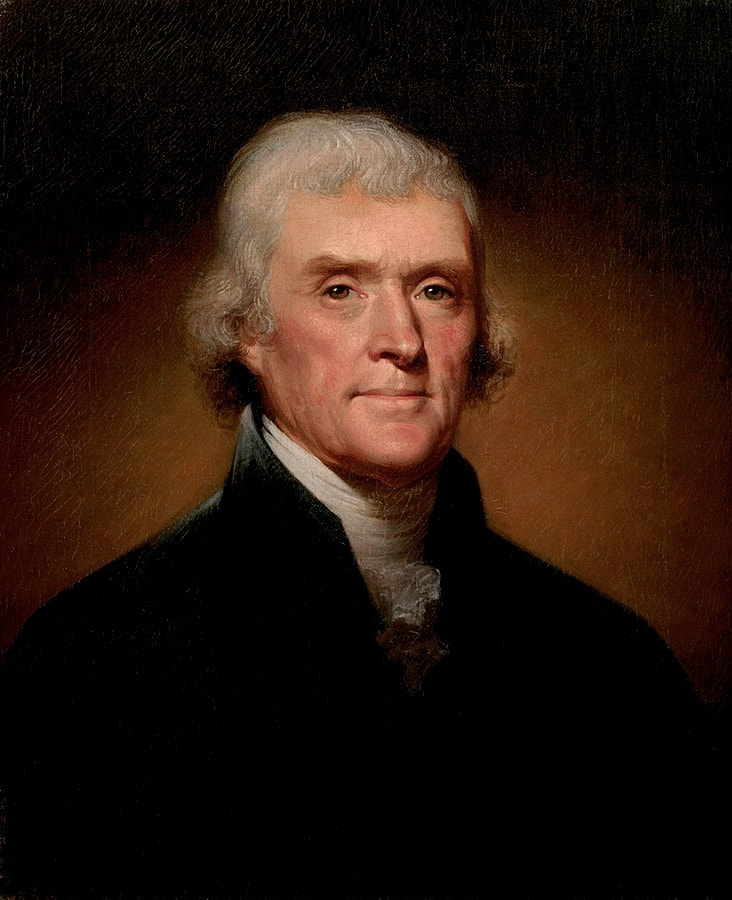
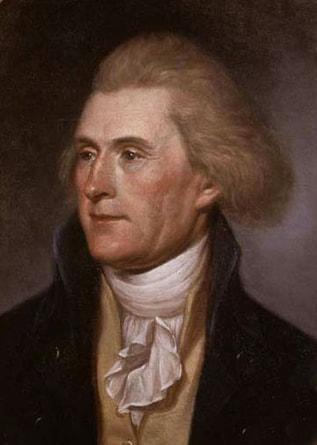
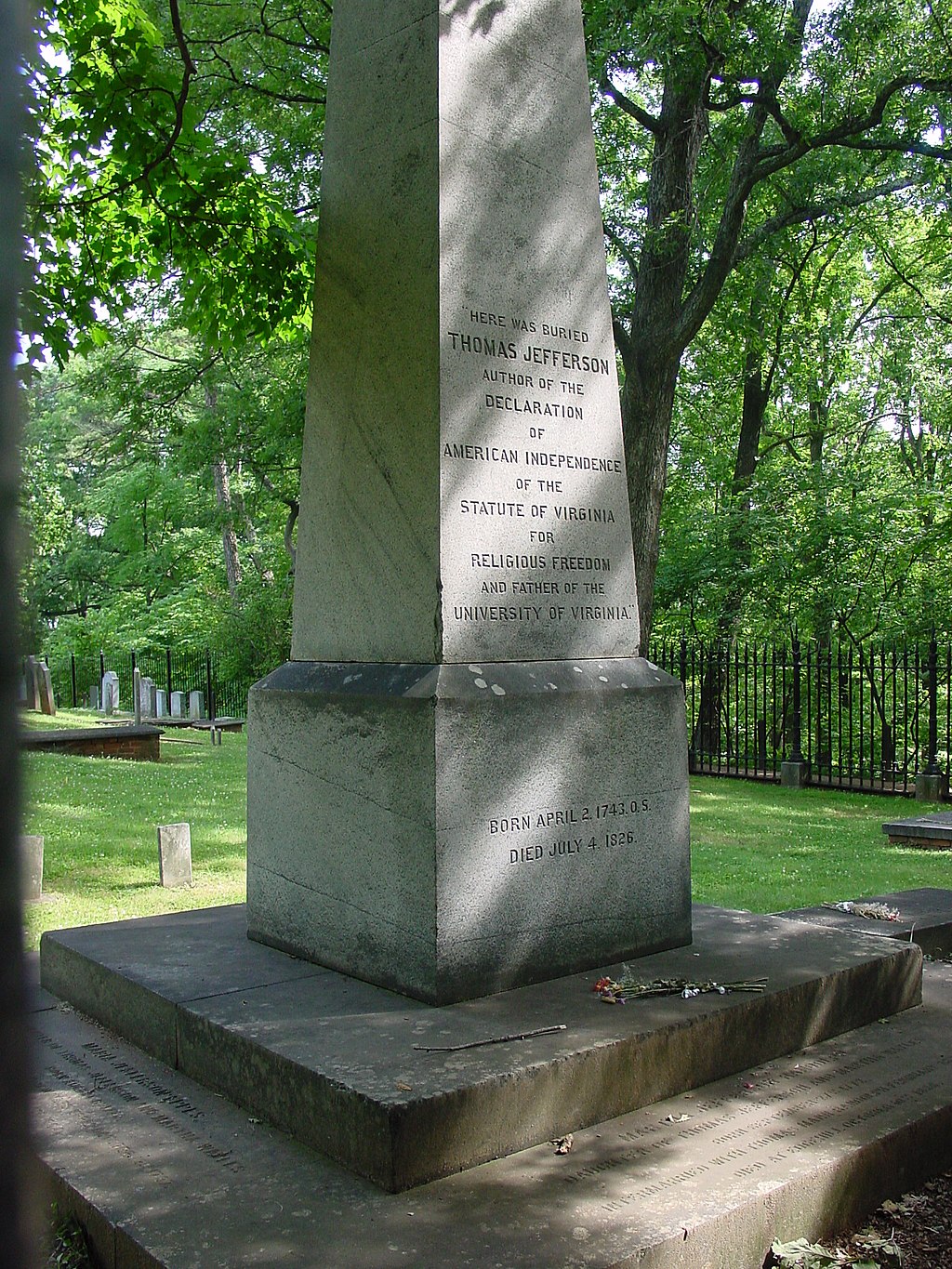
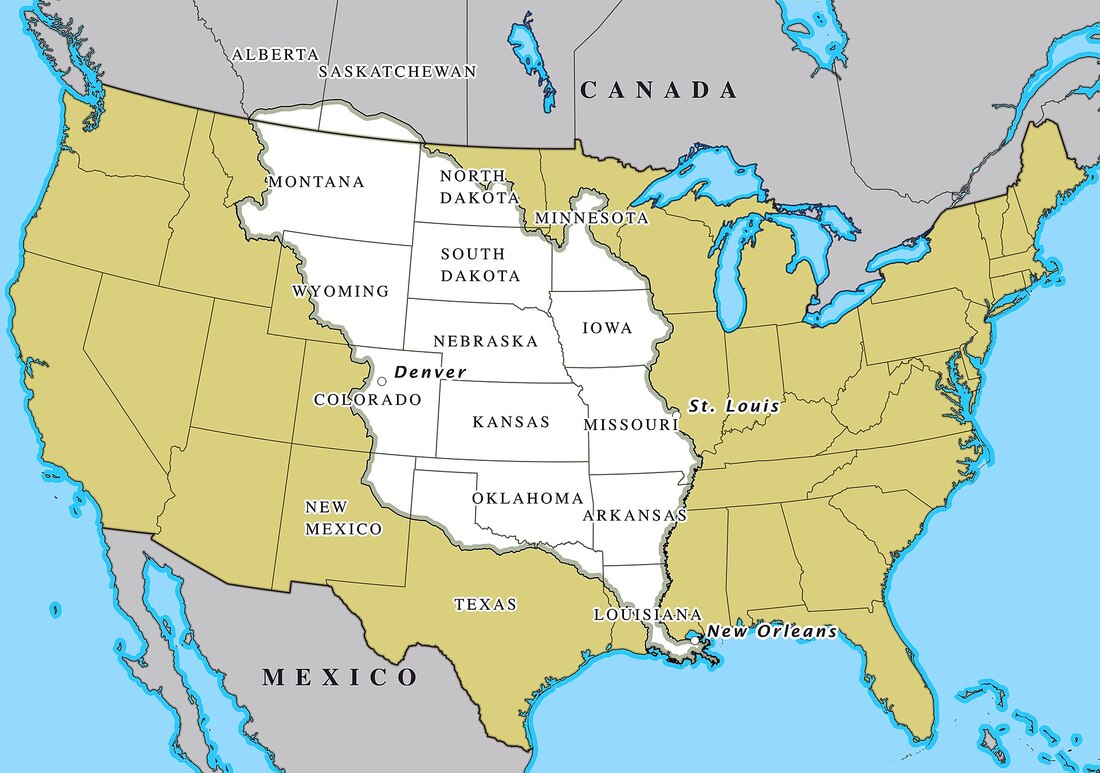
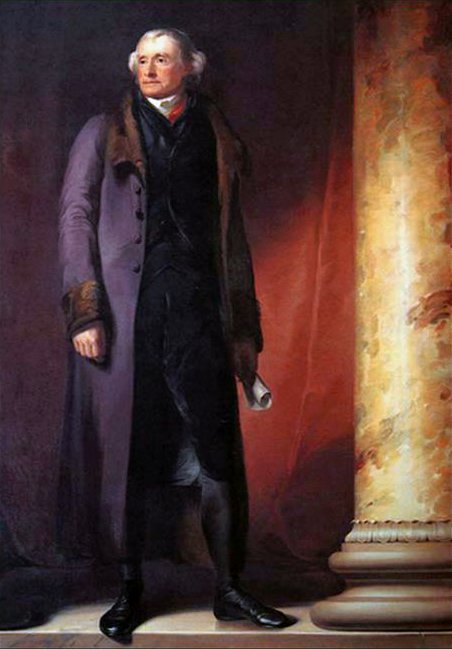
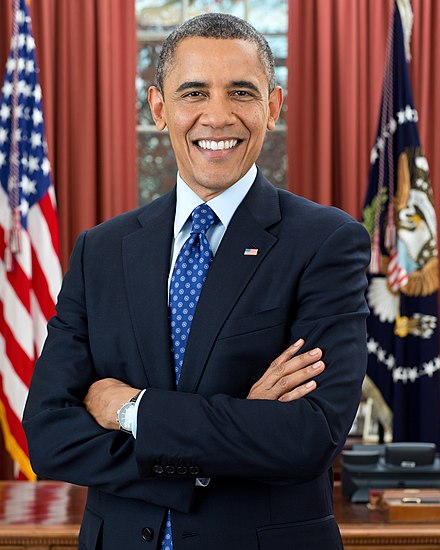
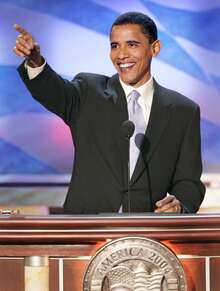
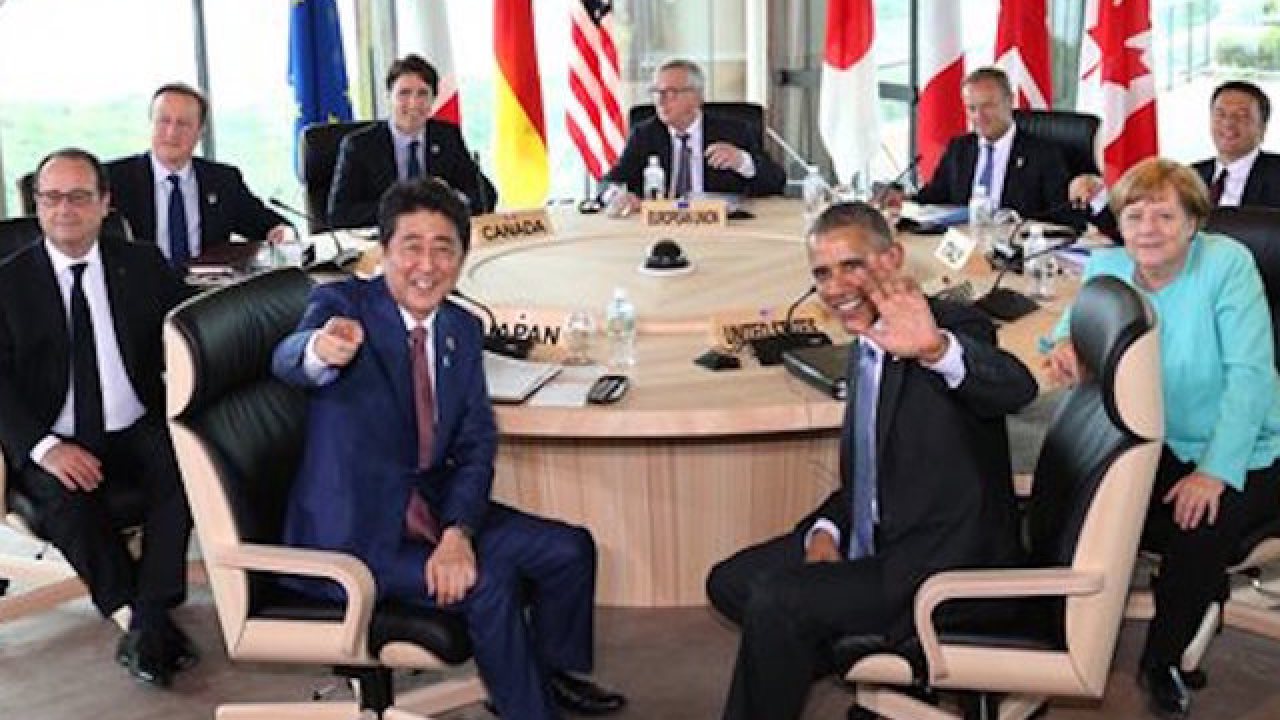
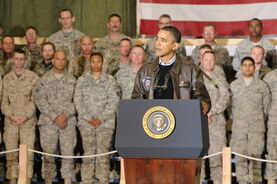
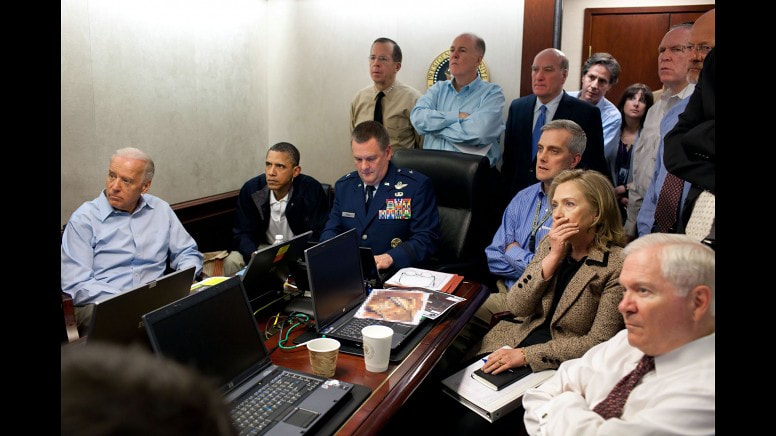
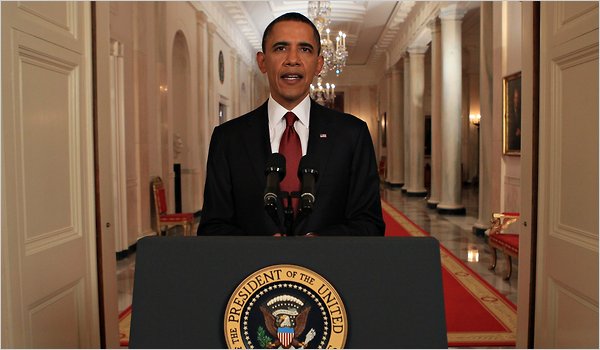
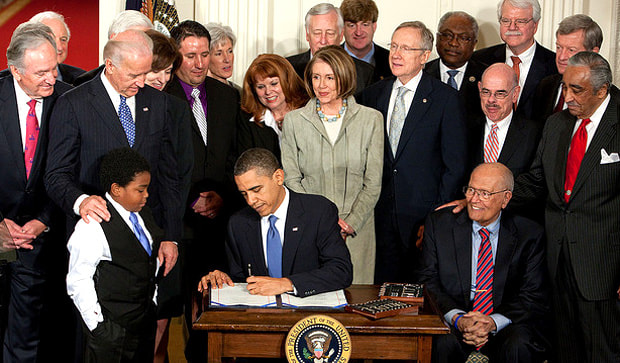
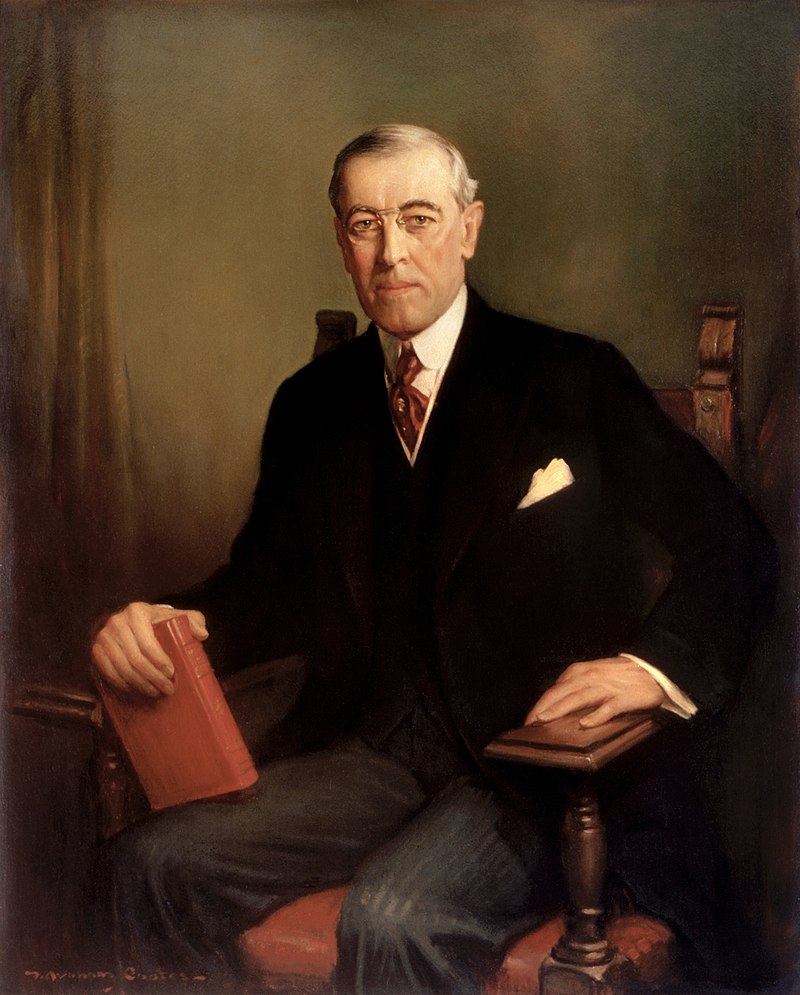
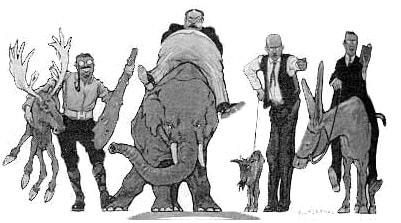
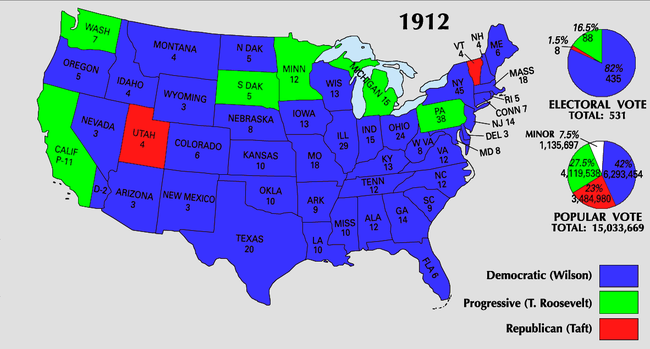
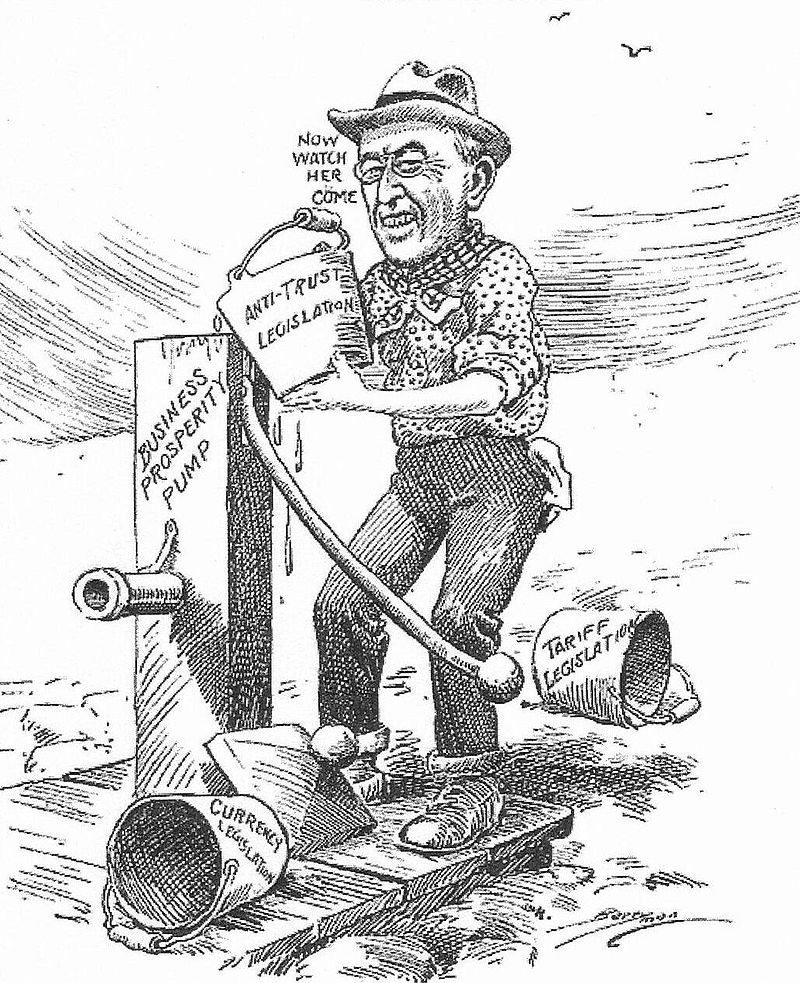
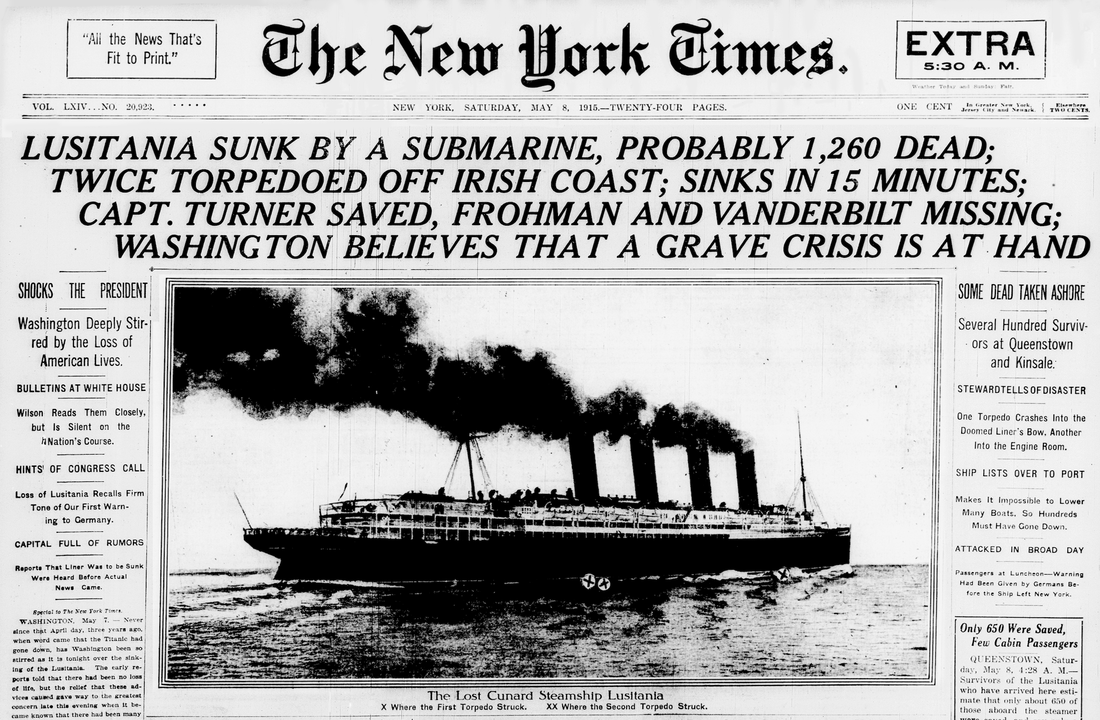
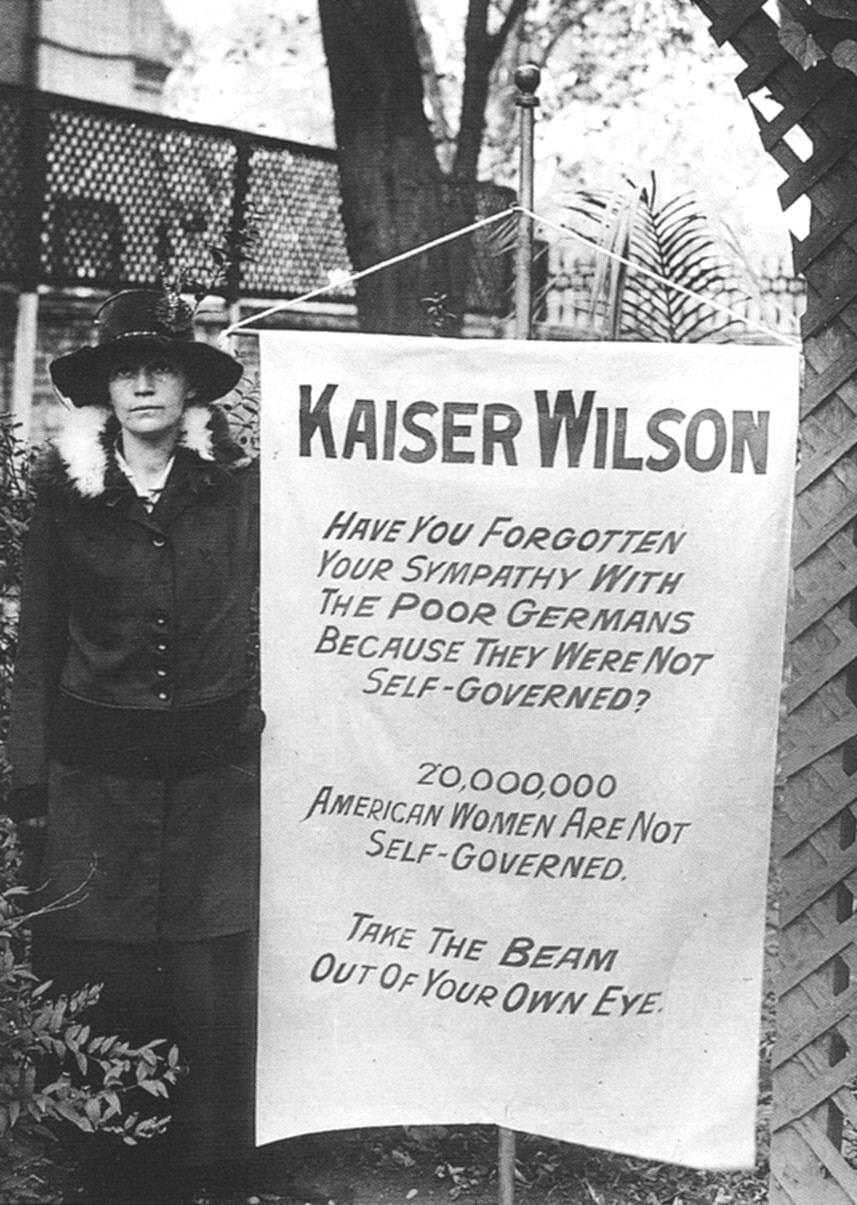
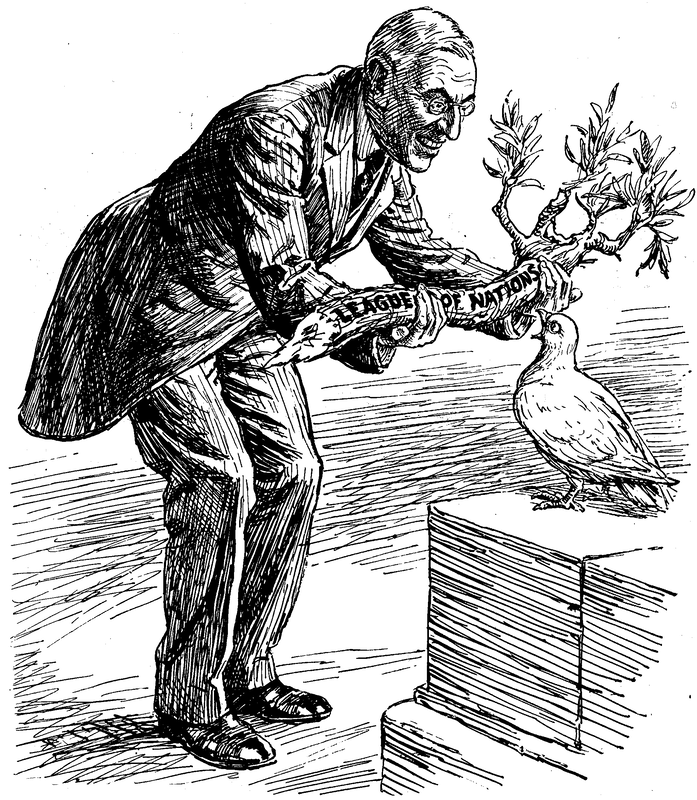
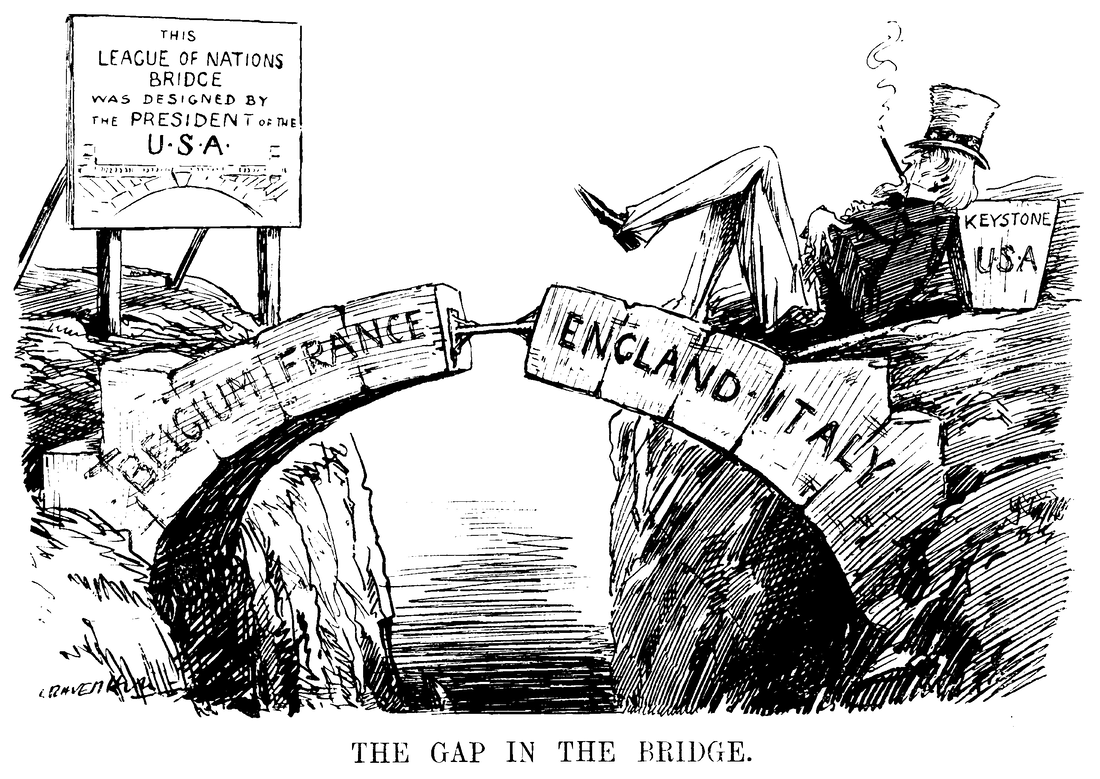
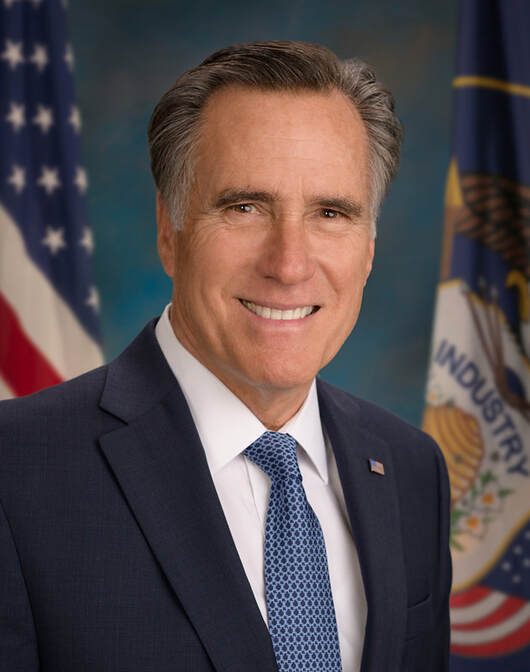
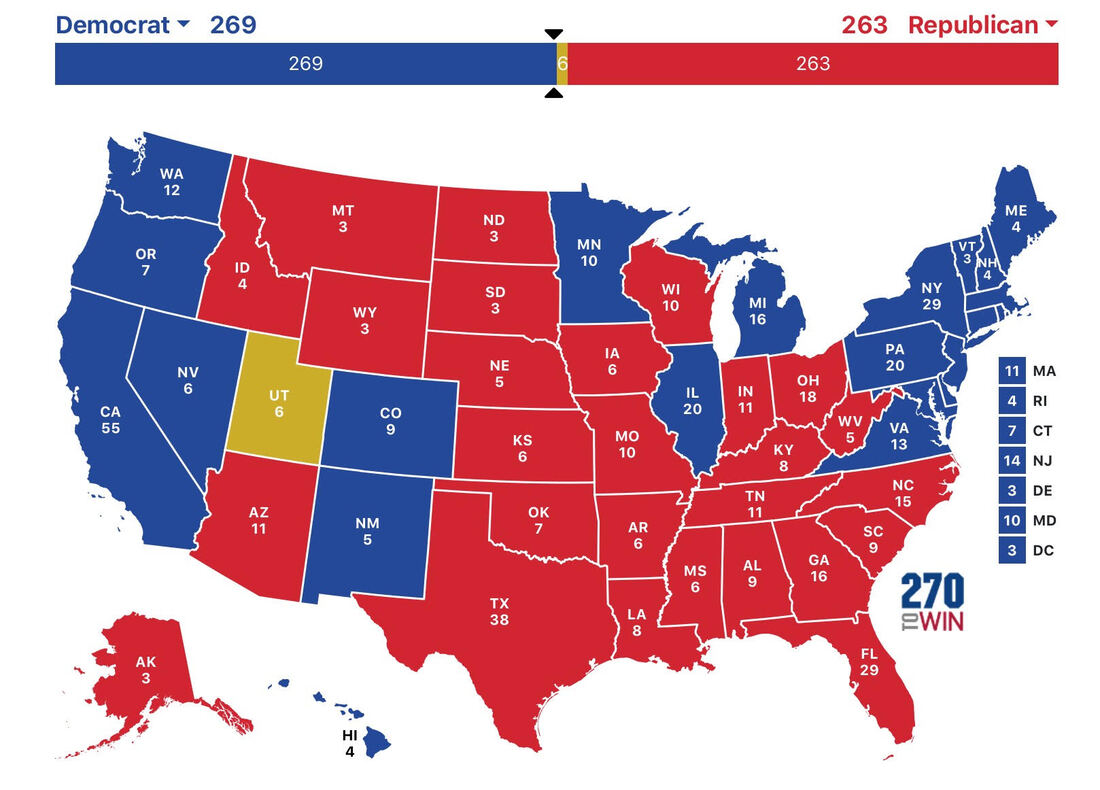
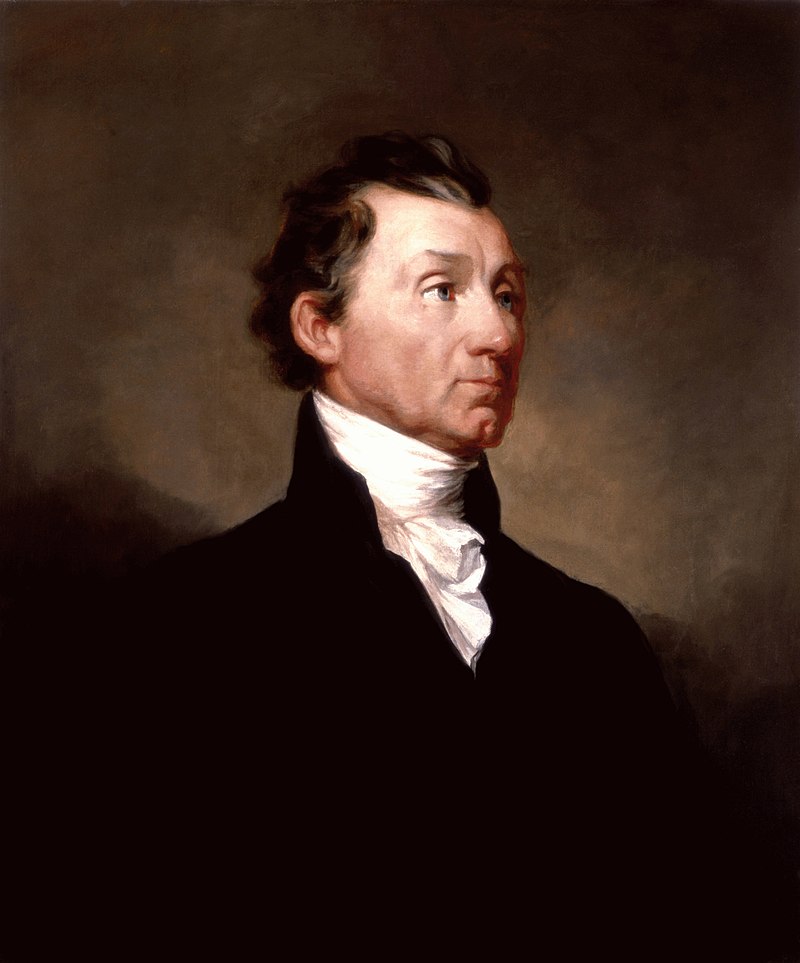
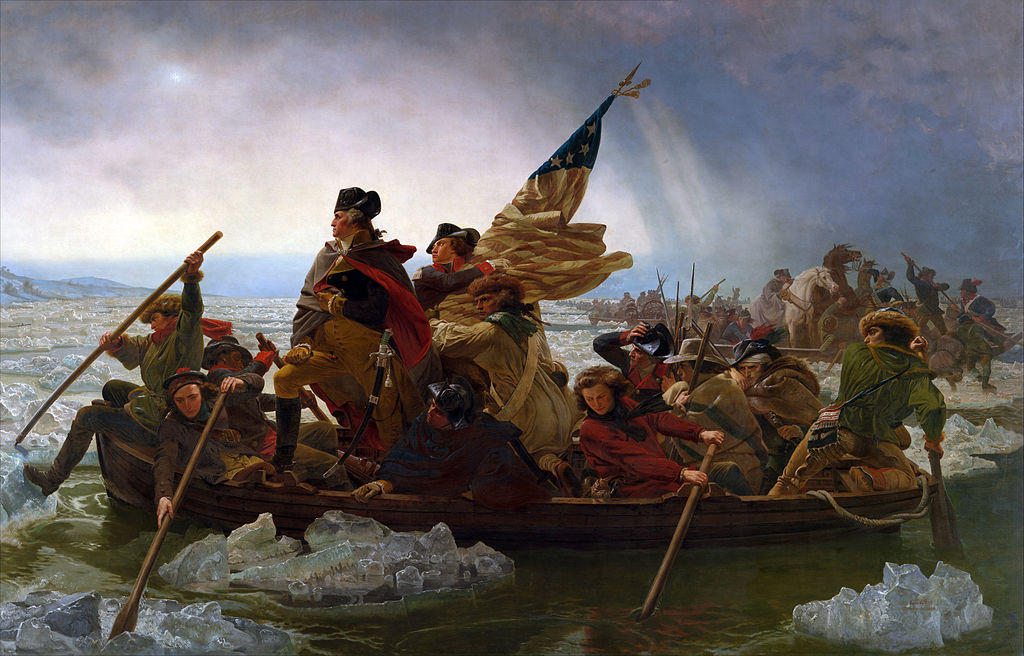
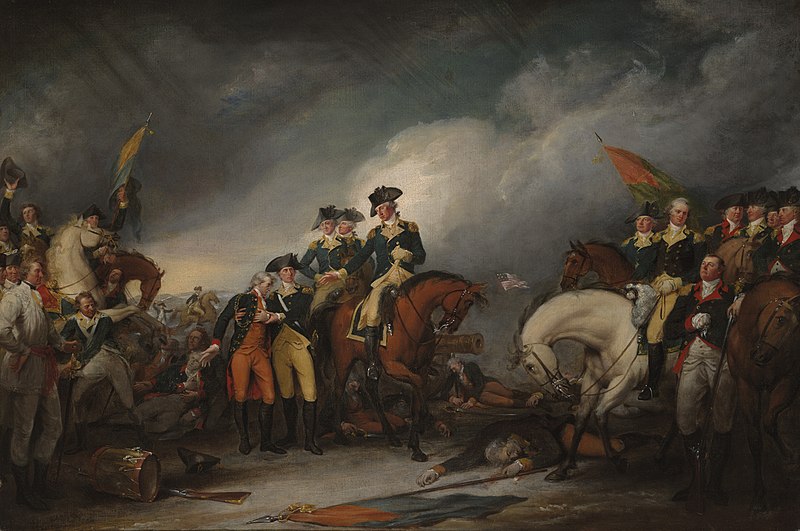
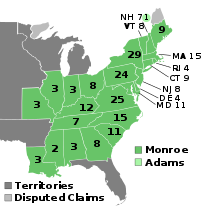
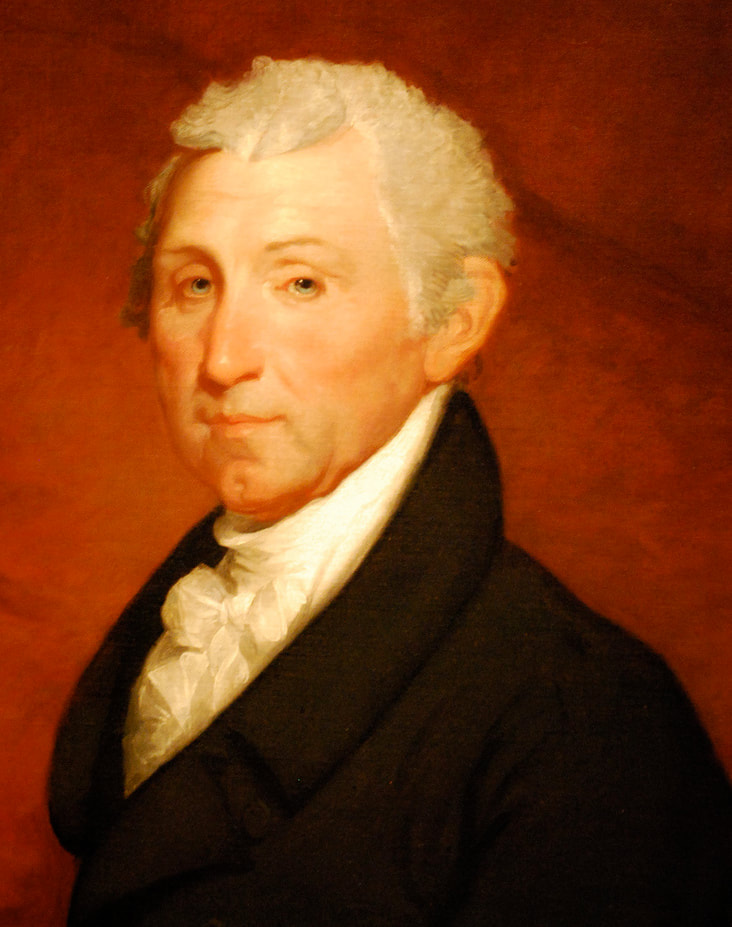
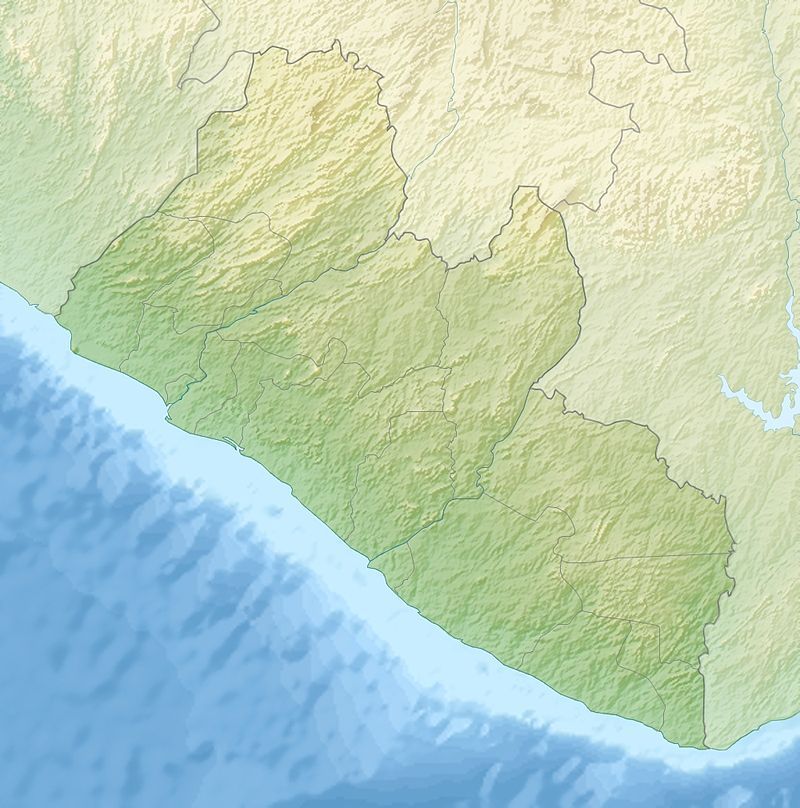
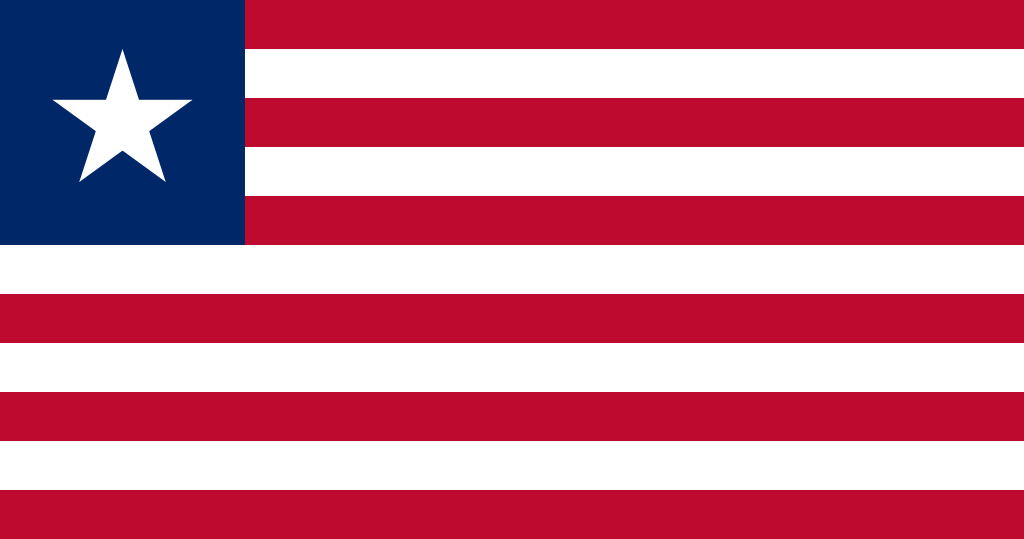
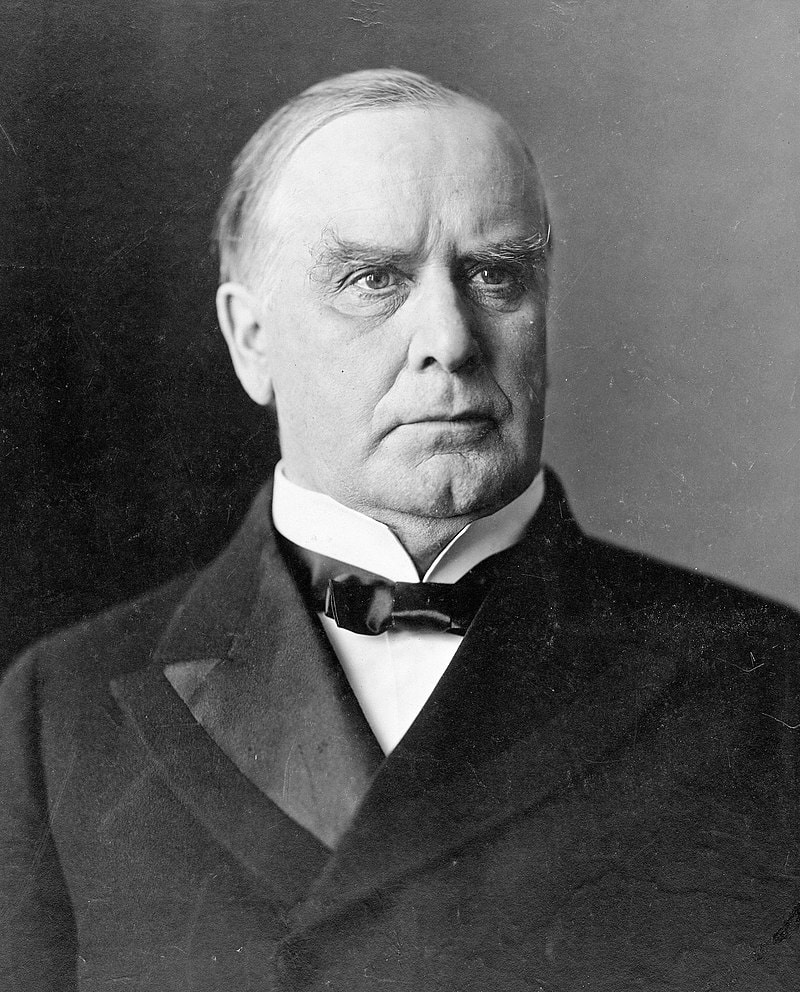
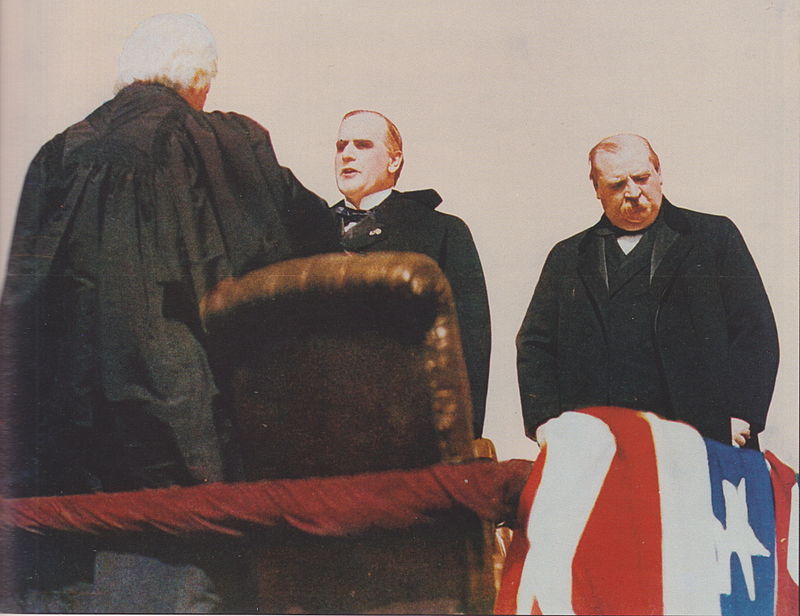
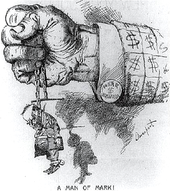
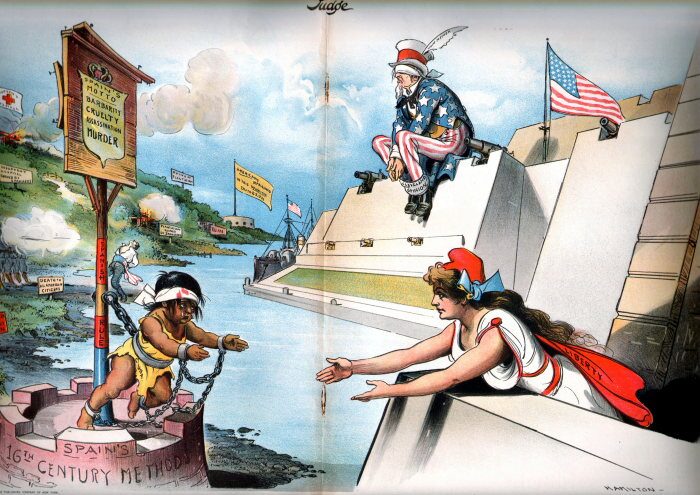
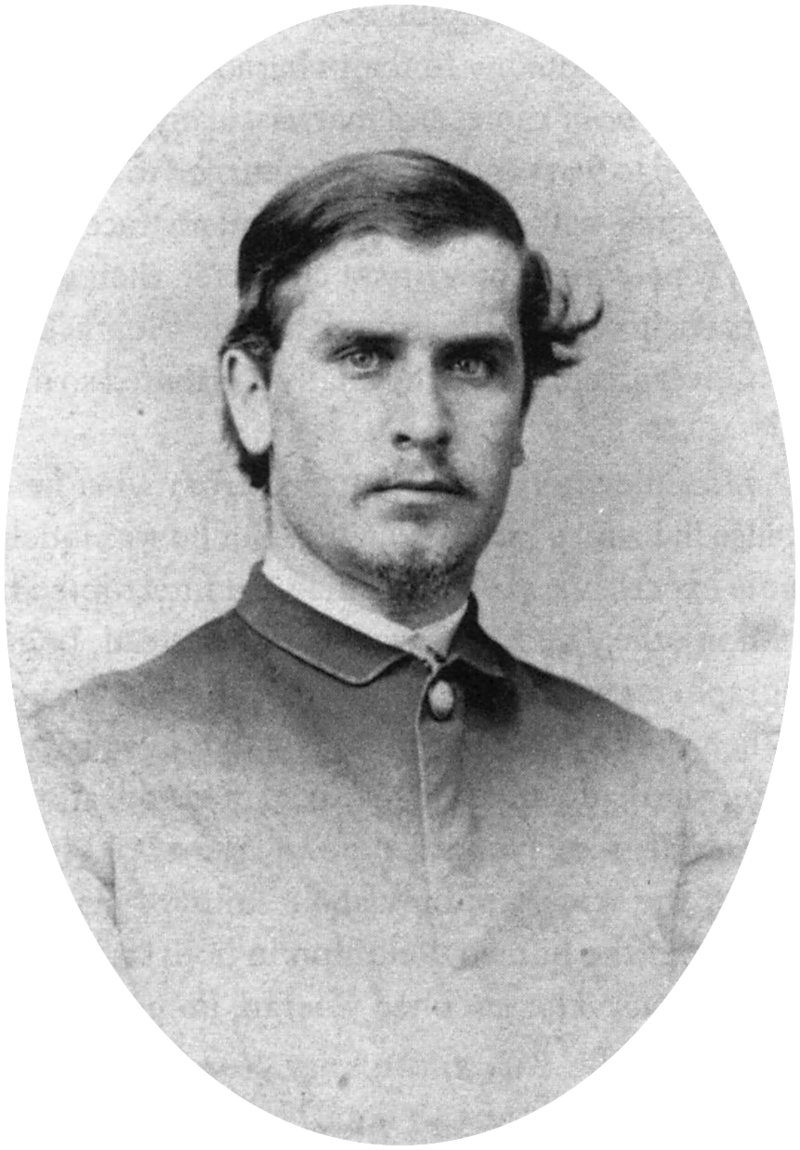
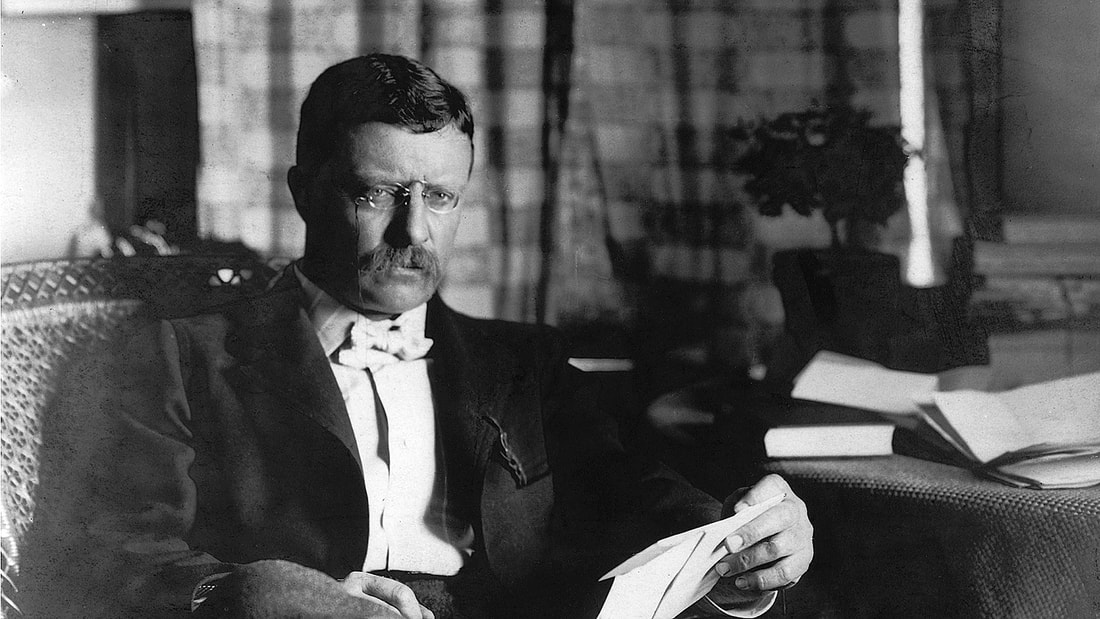
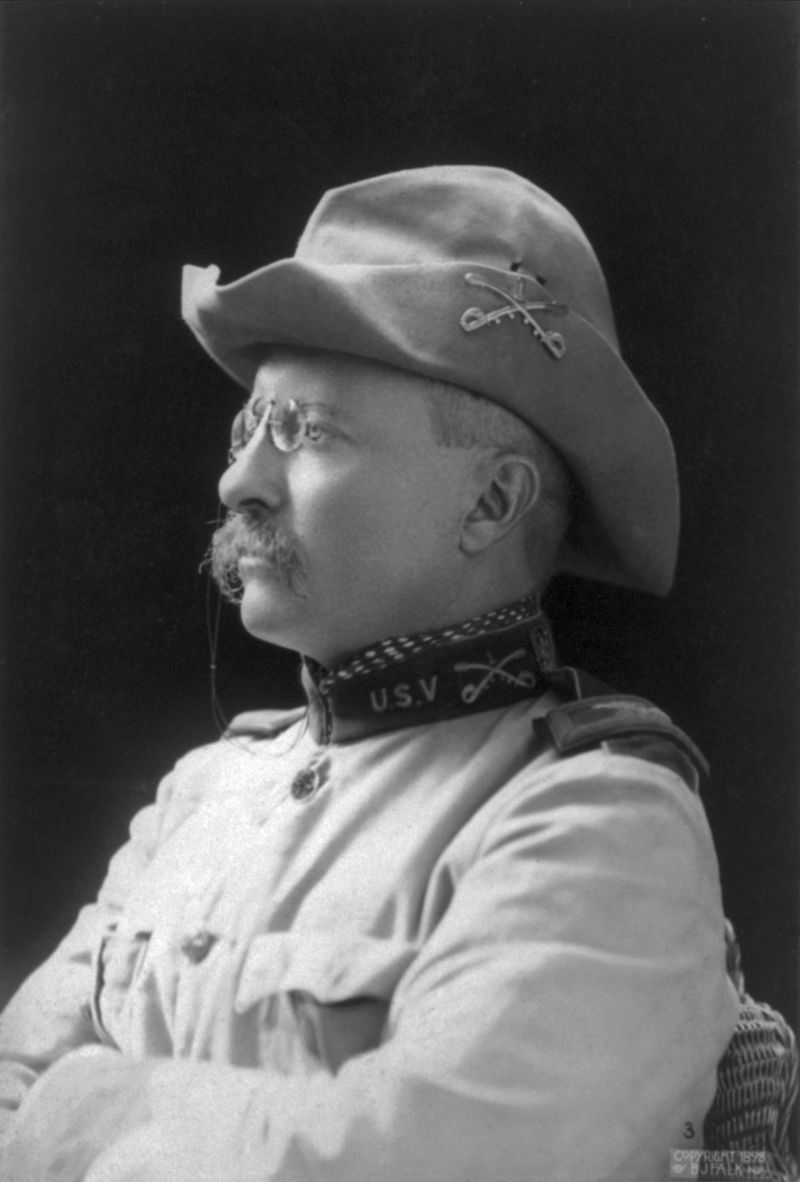
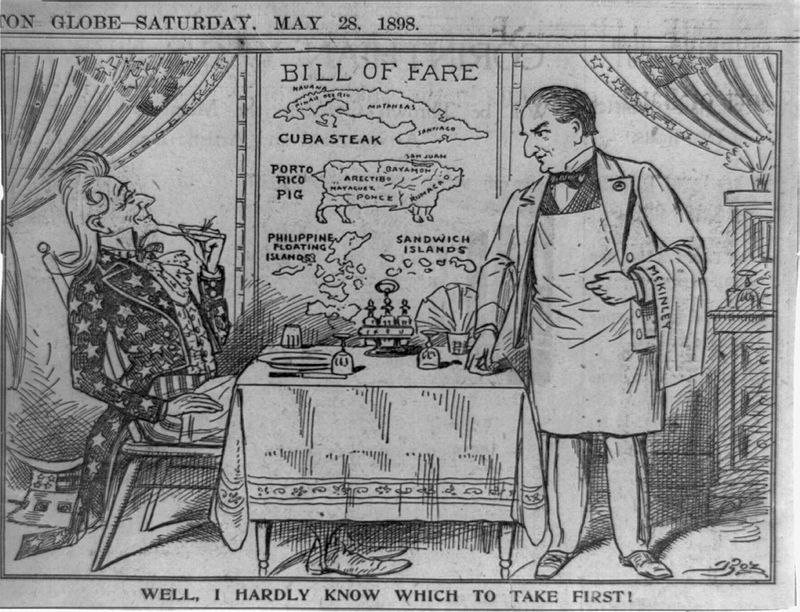
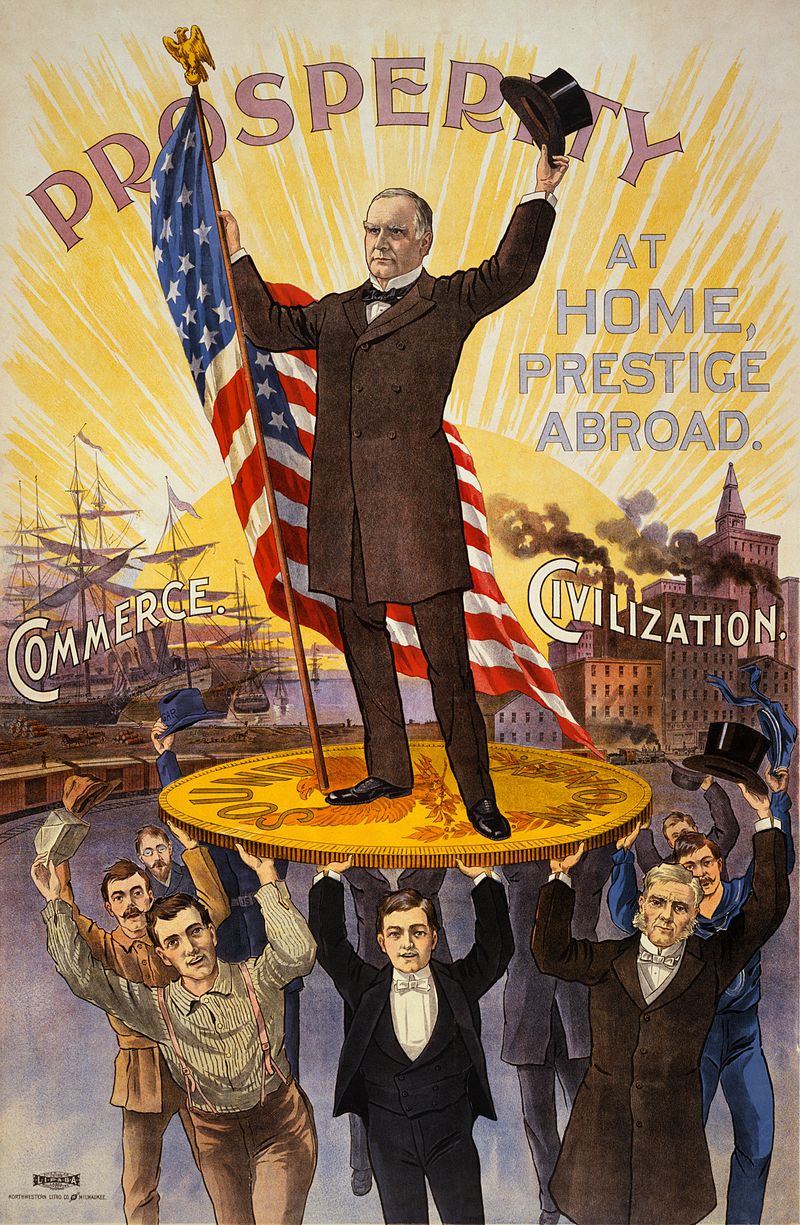
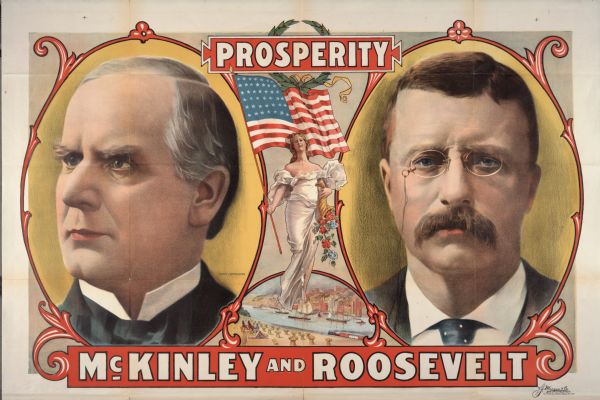
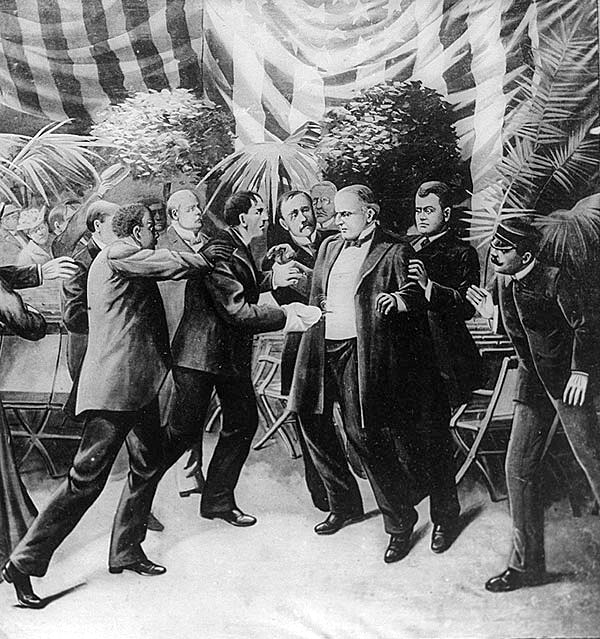
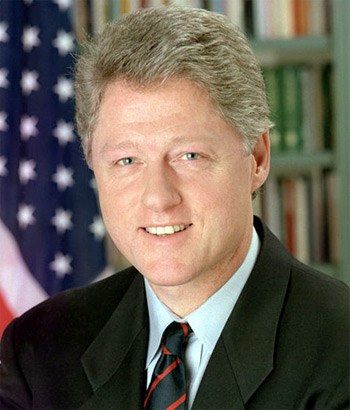
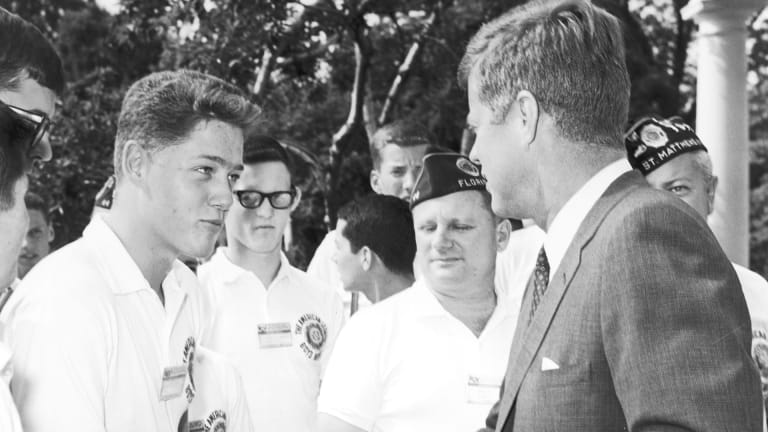
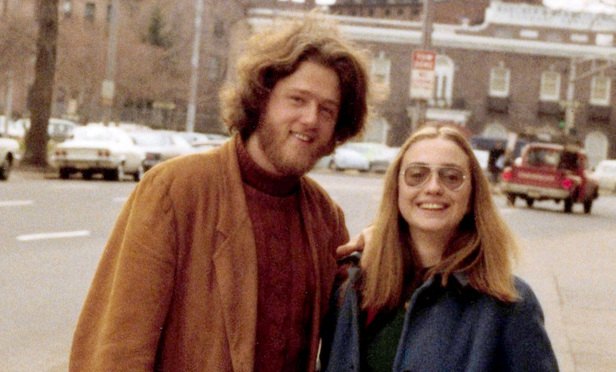
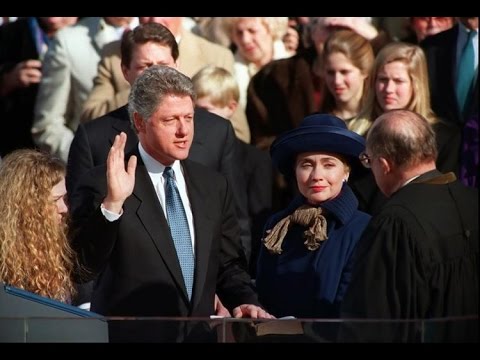
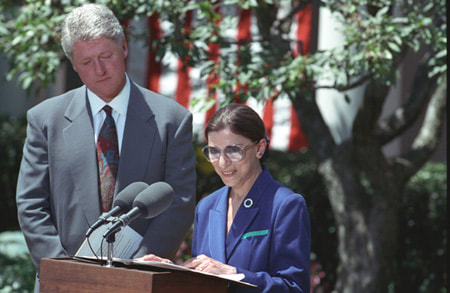
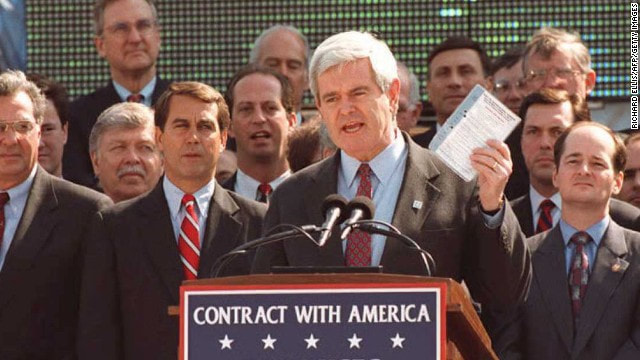
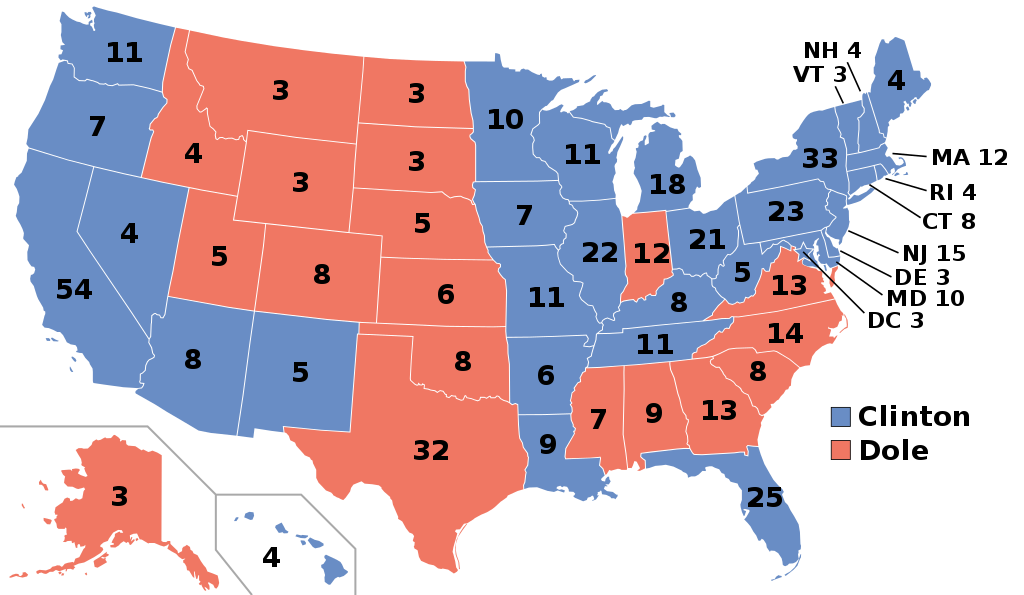
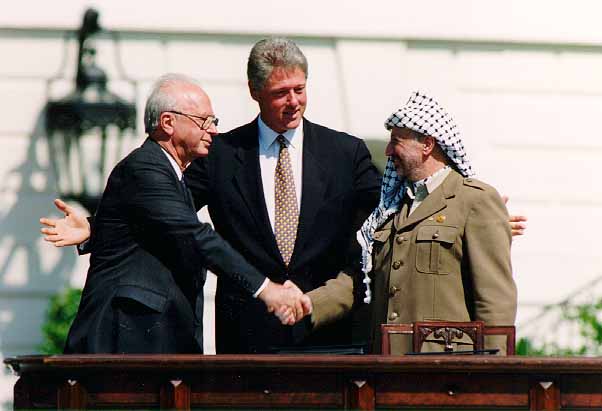
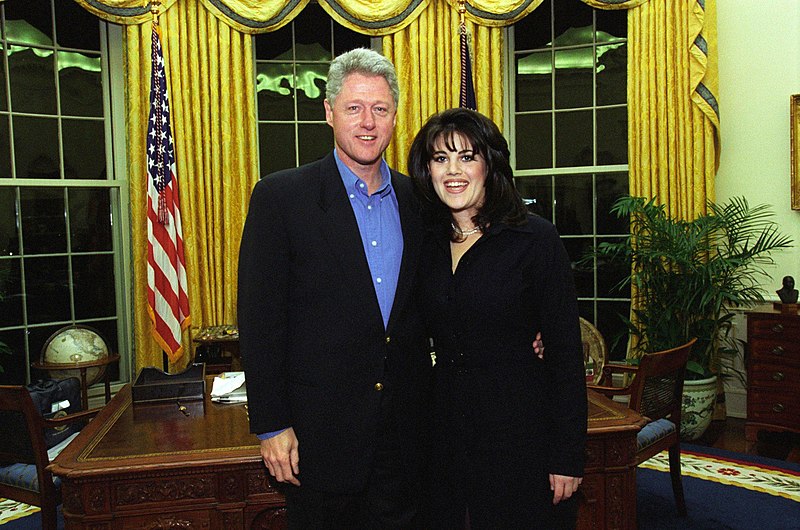
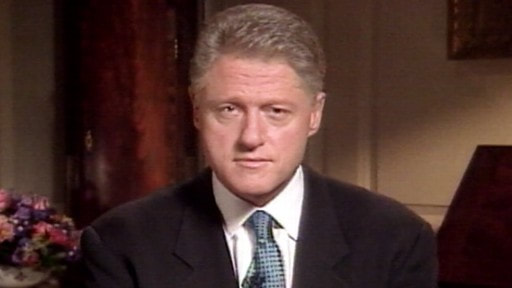
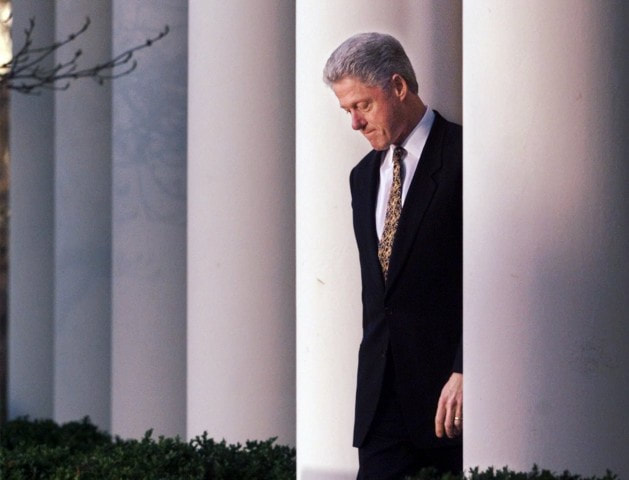
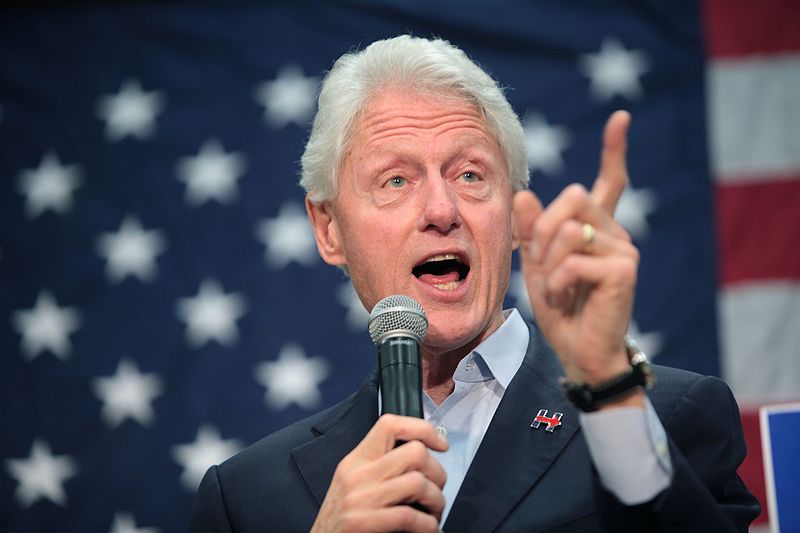
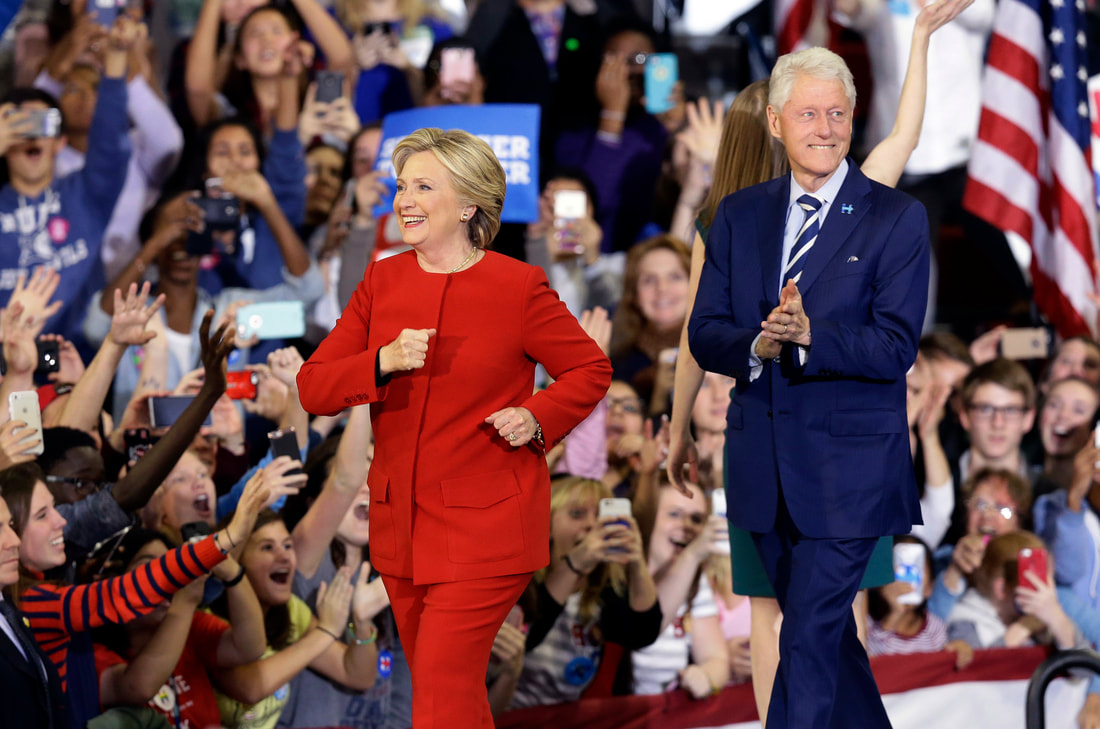
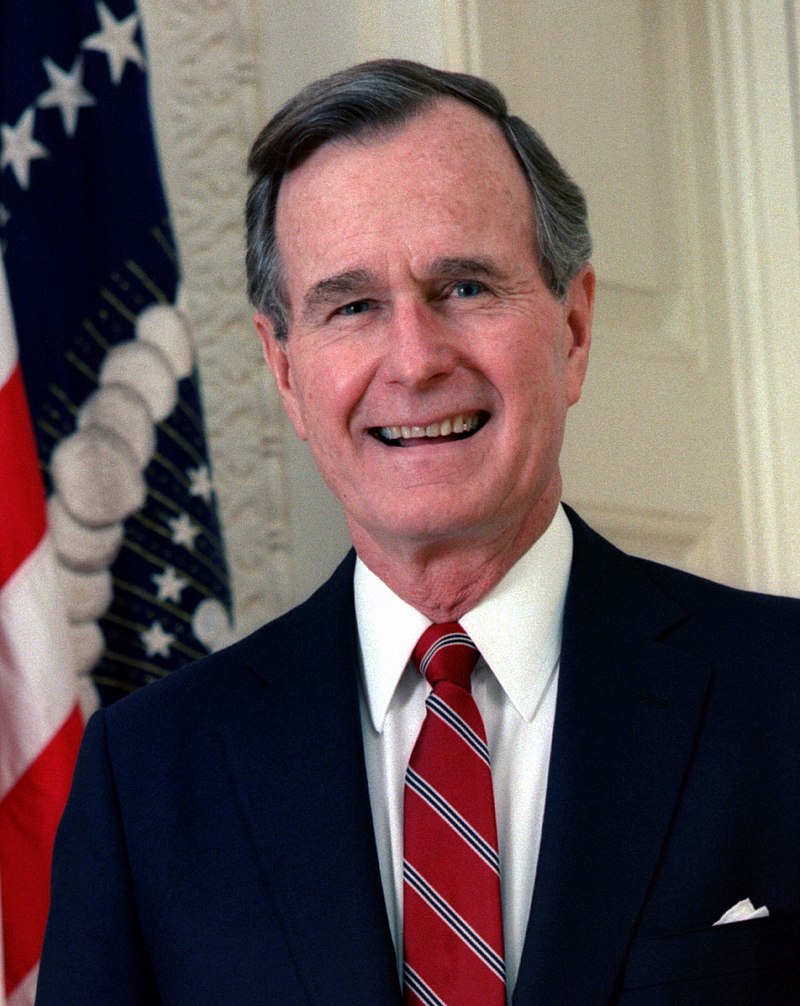

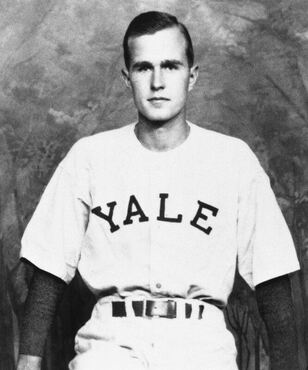
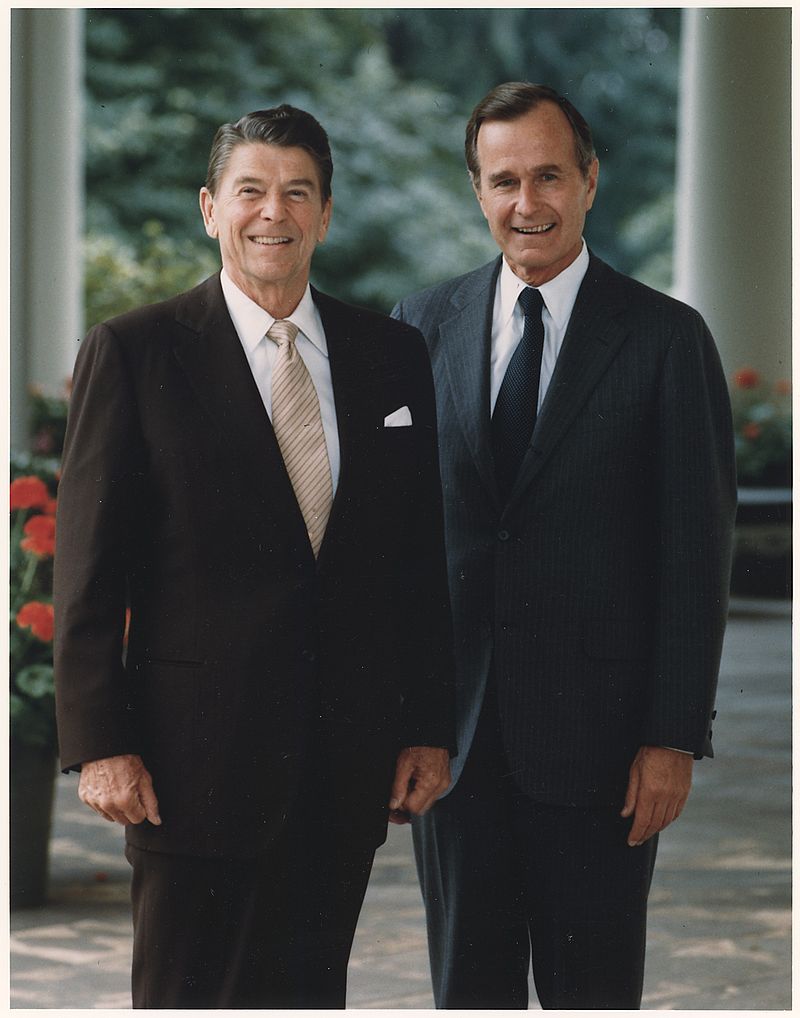
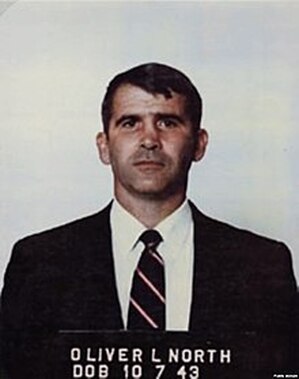
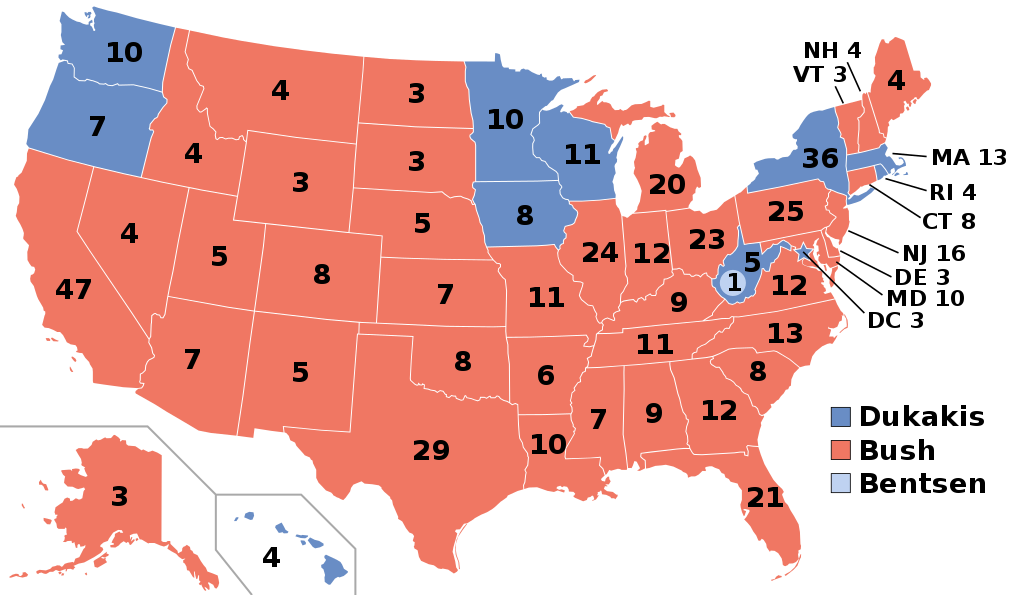
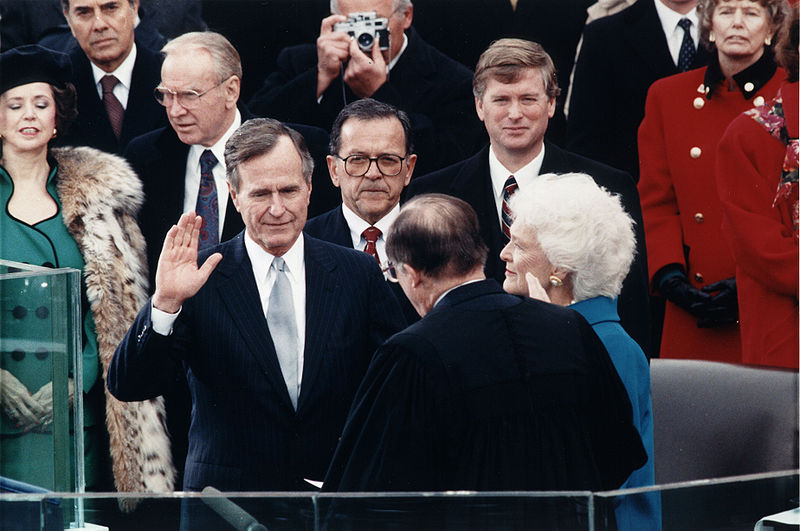
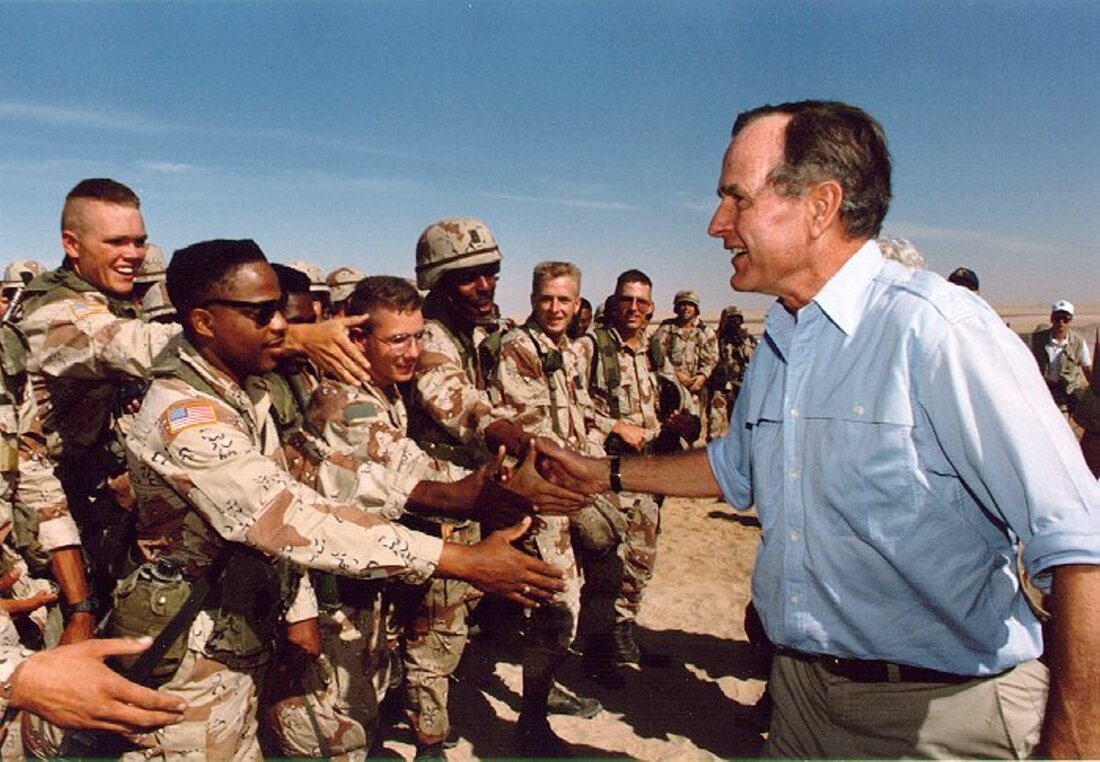
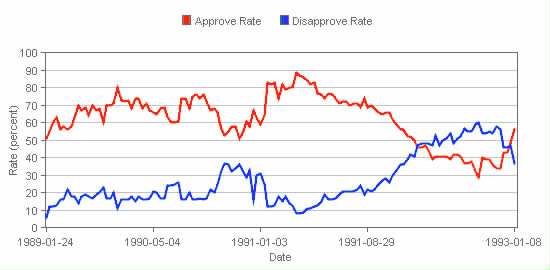
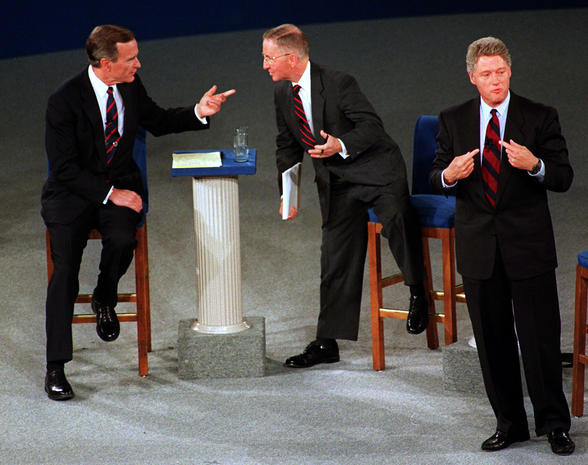
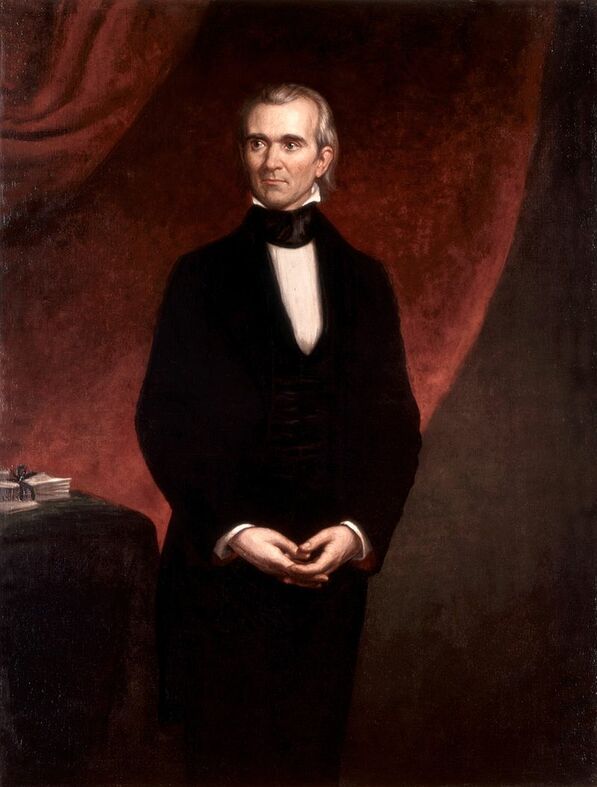
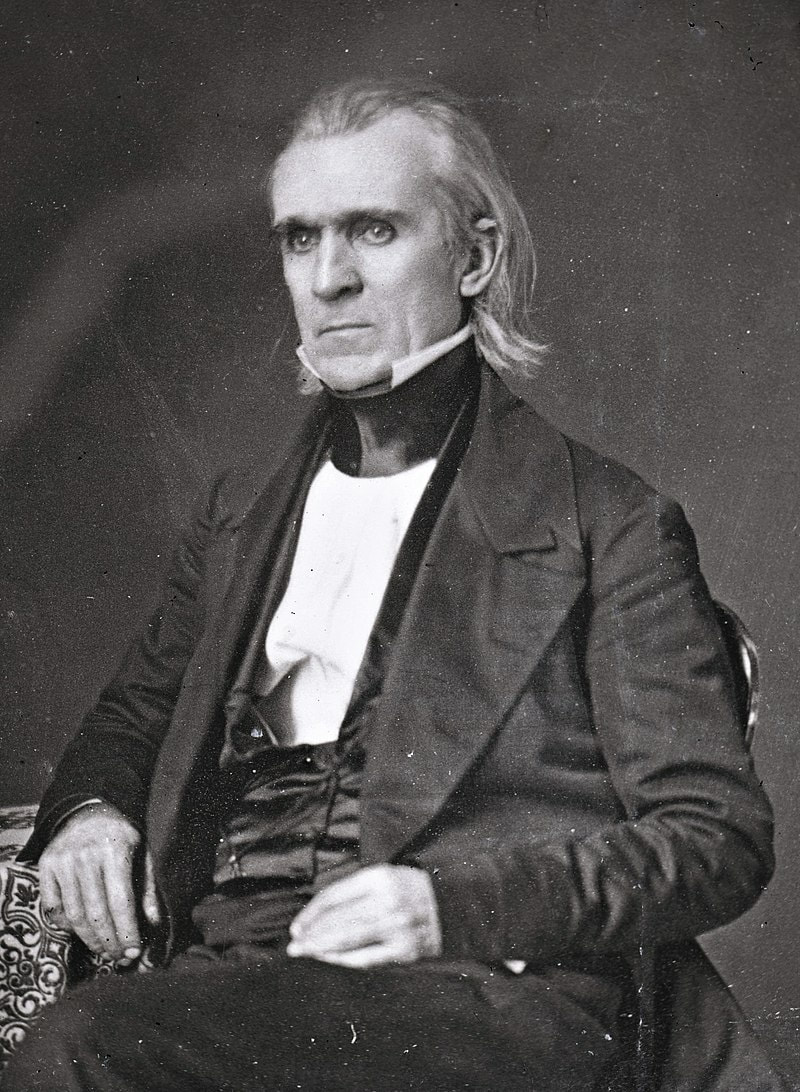
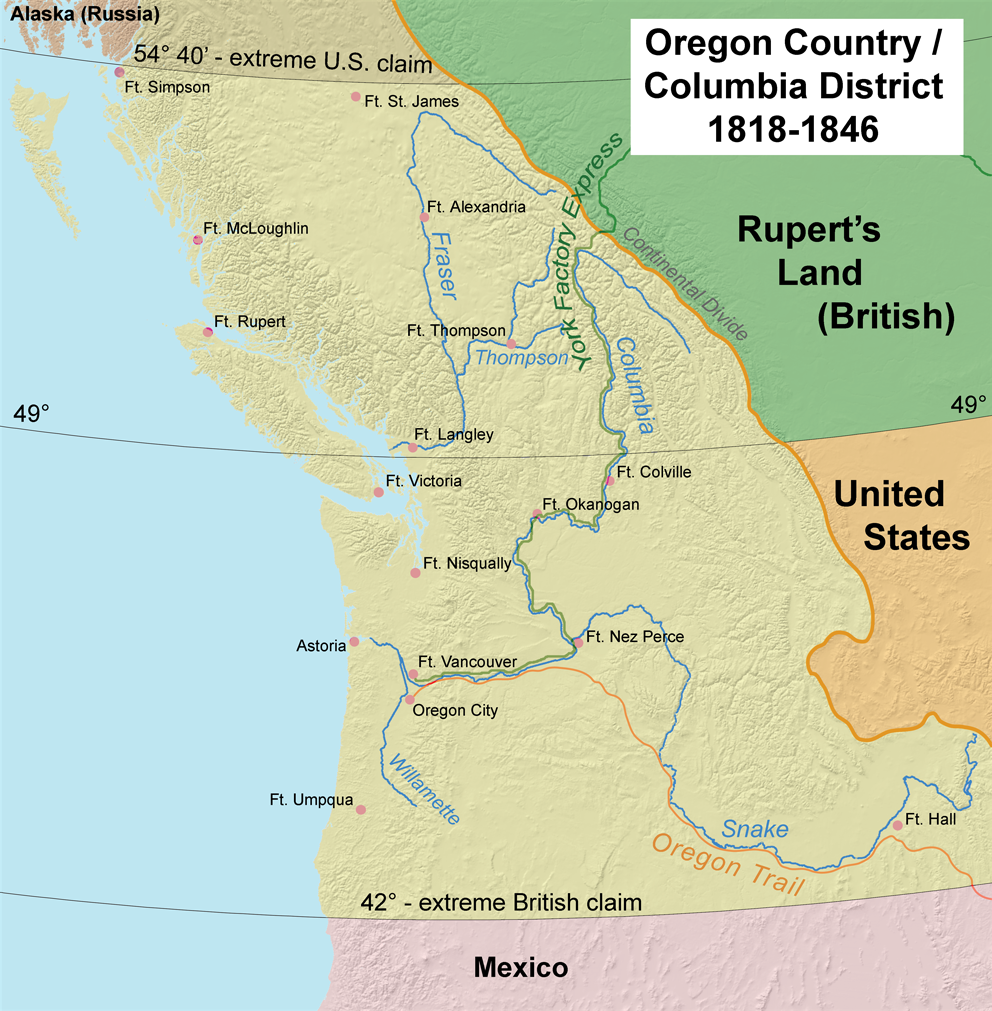
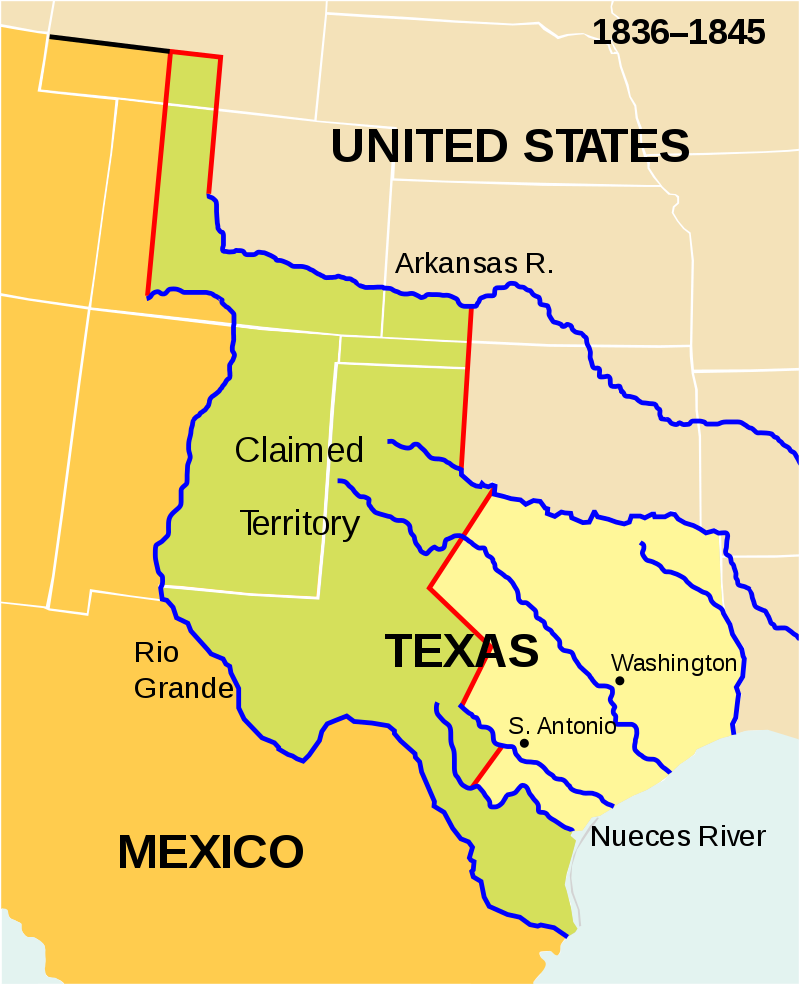
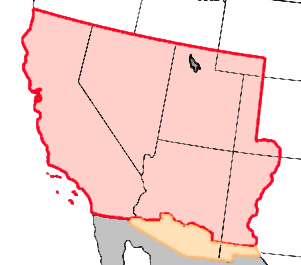
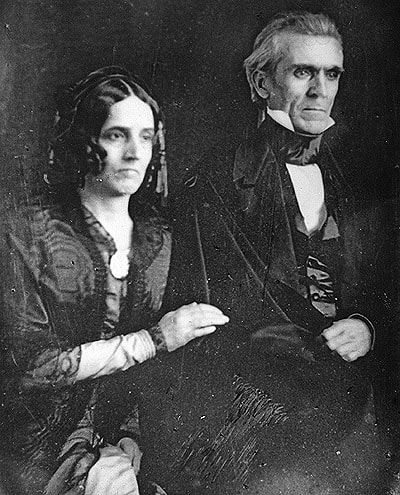
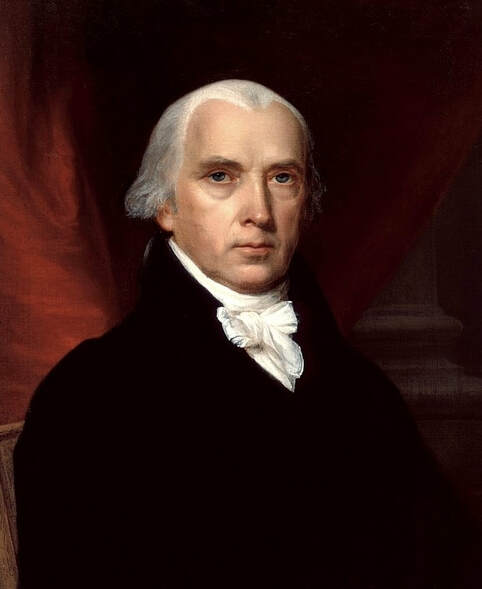
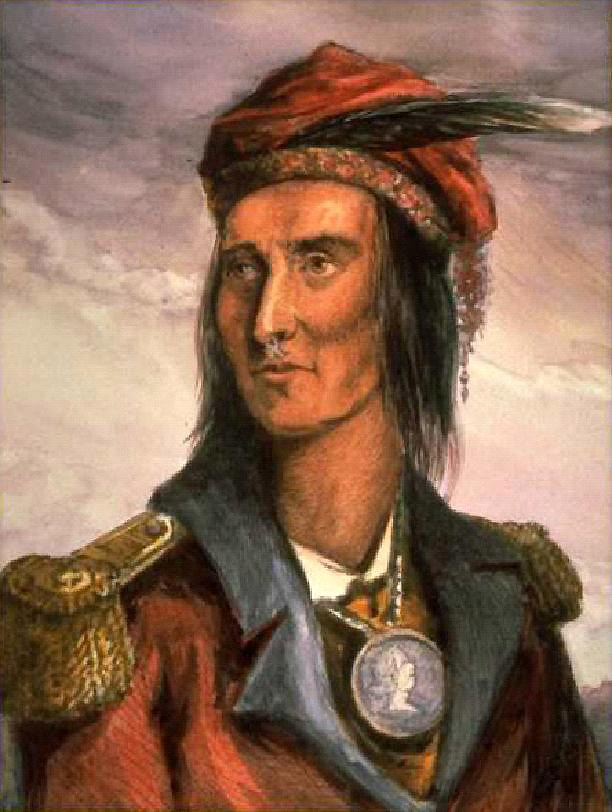
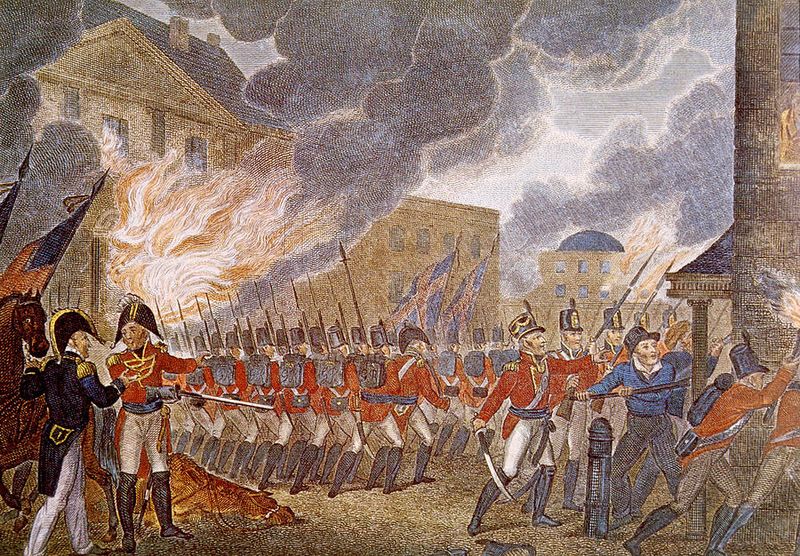
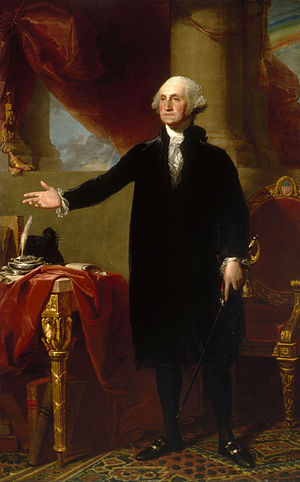
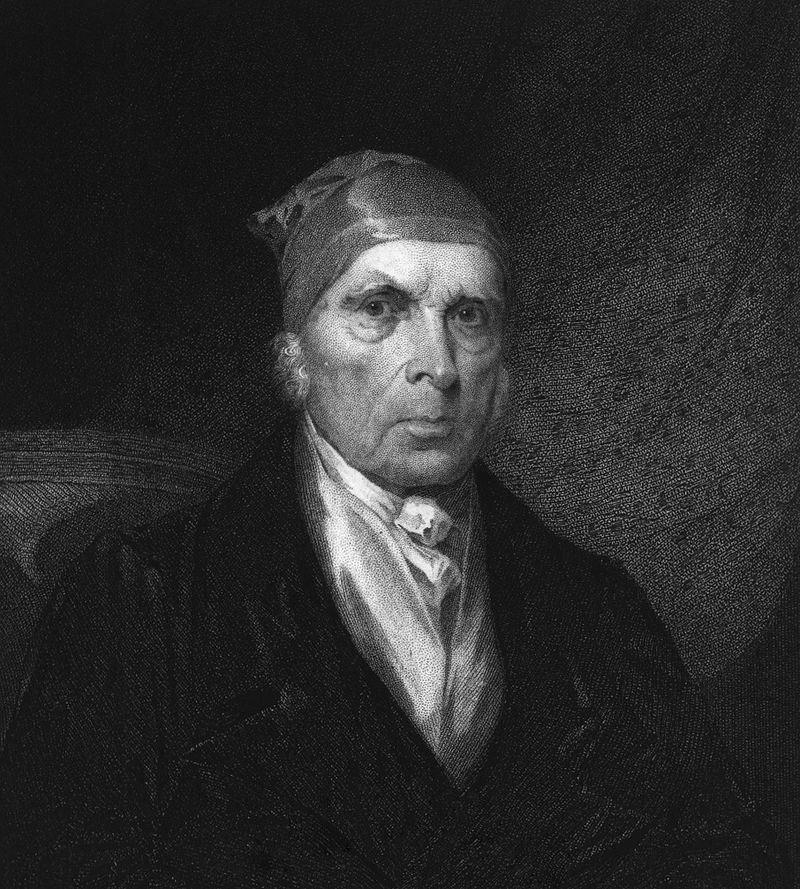
 RSS Feed
RSS Feed
